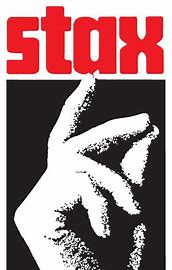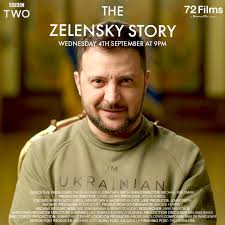Love is in the noticing – thoughts on 2025
Posted by cathannabel in Personal on December 31, 2025

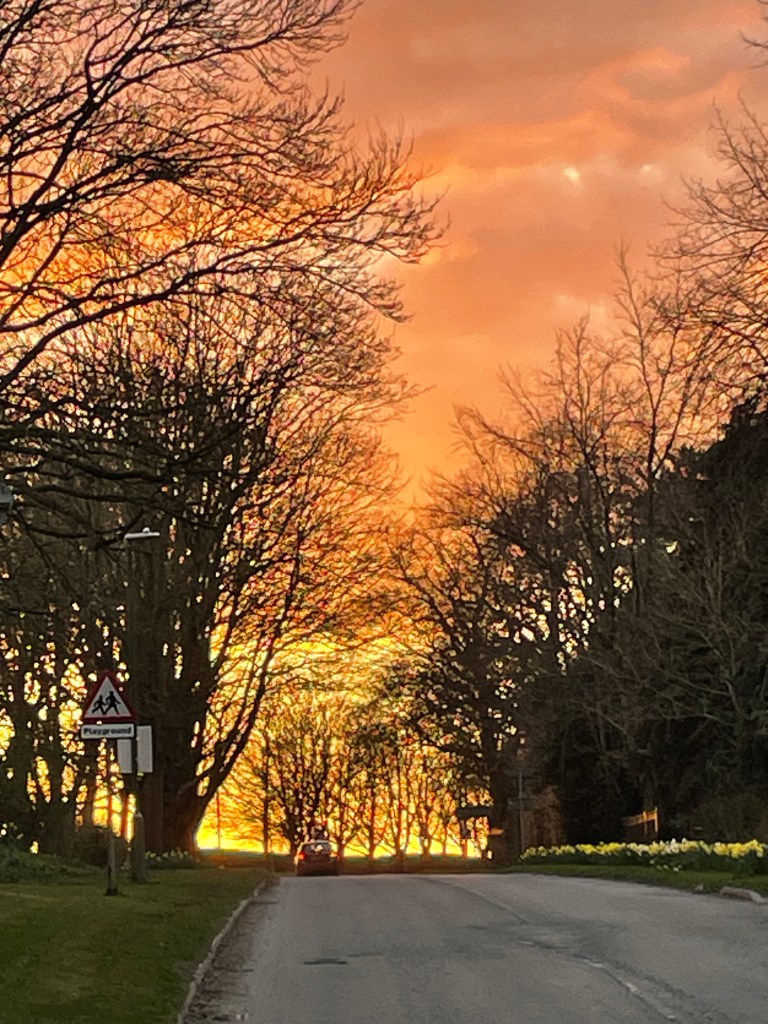

This is a purely personal take on 2025. I cannot bear to bring to mind, let alone attempt to write about, what this year has been in terms of world events and politics at home. This is cowardly, I know, but there are better minds than mine grappling with the state of things, and all I could do would be to repeat uselessly how absolutely bloody awful everything is, and how hard it is to see any glimpses of hope, as the handcart in which we are going to hell appears to gather speed. So, I will talk about my little world instead.
2025 – the year when my father’s hold on life finally slipped, after 97 years and the erosion of his mind and memory by dementia. I reflected on his life here. Writing about him, on this site and on the Guardian’s Other Lives obituary section, was my way of honouring who he was, before.
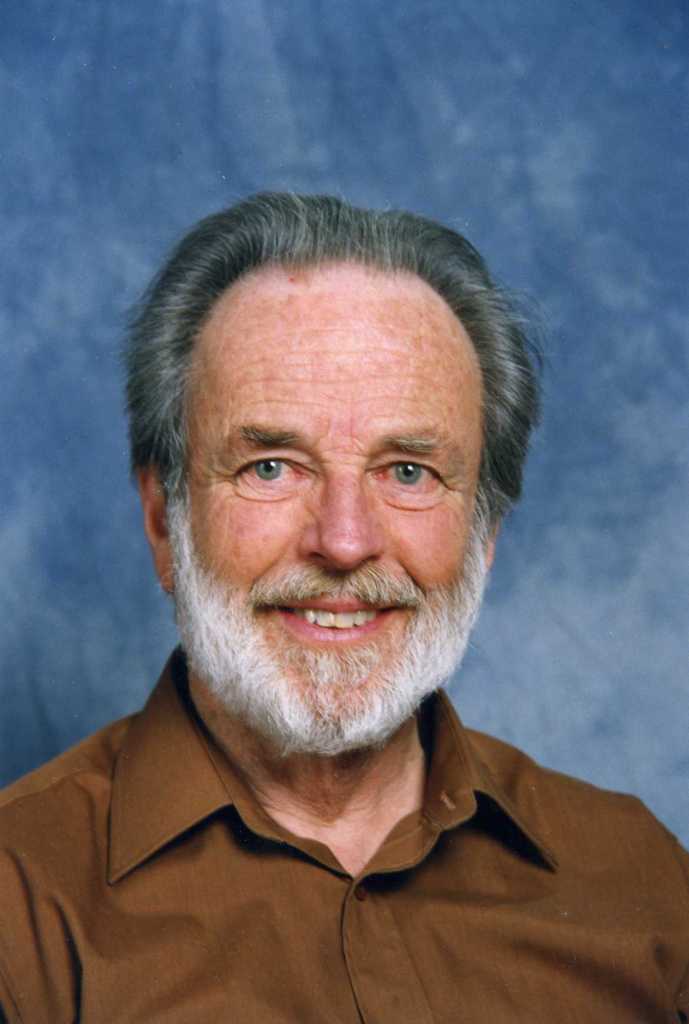
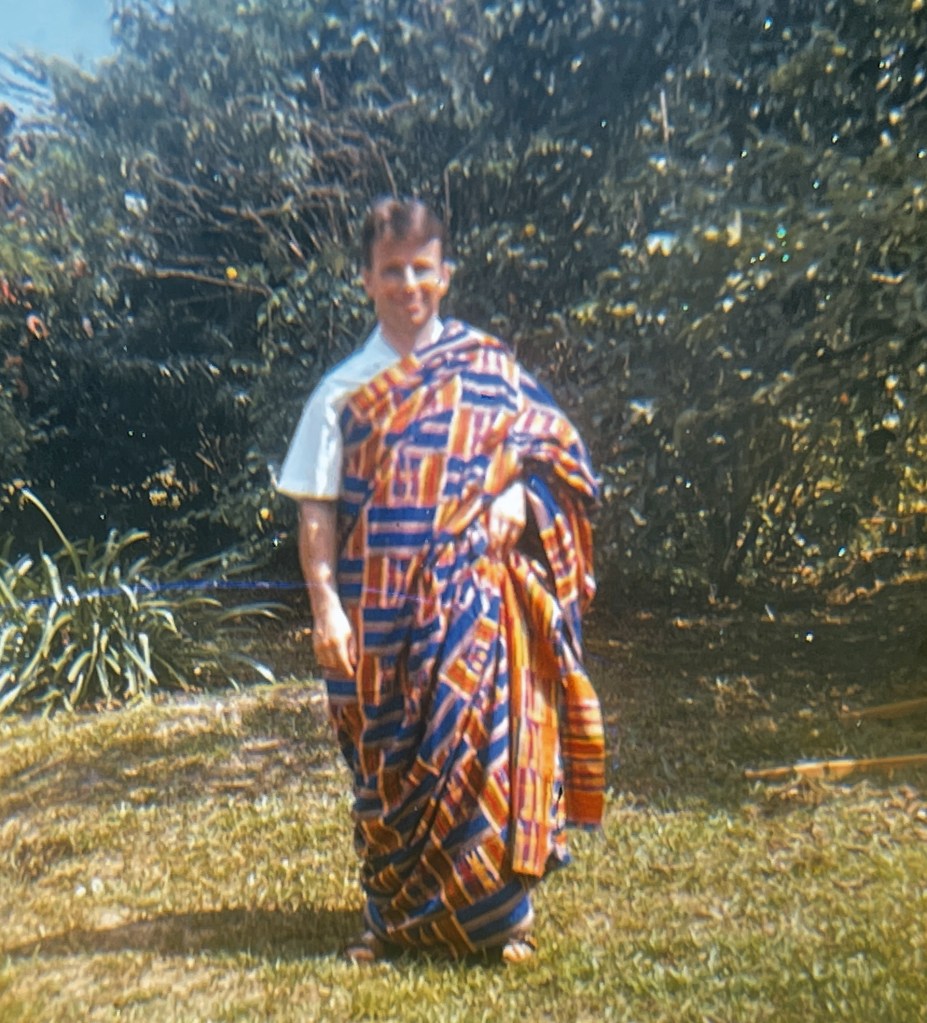



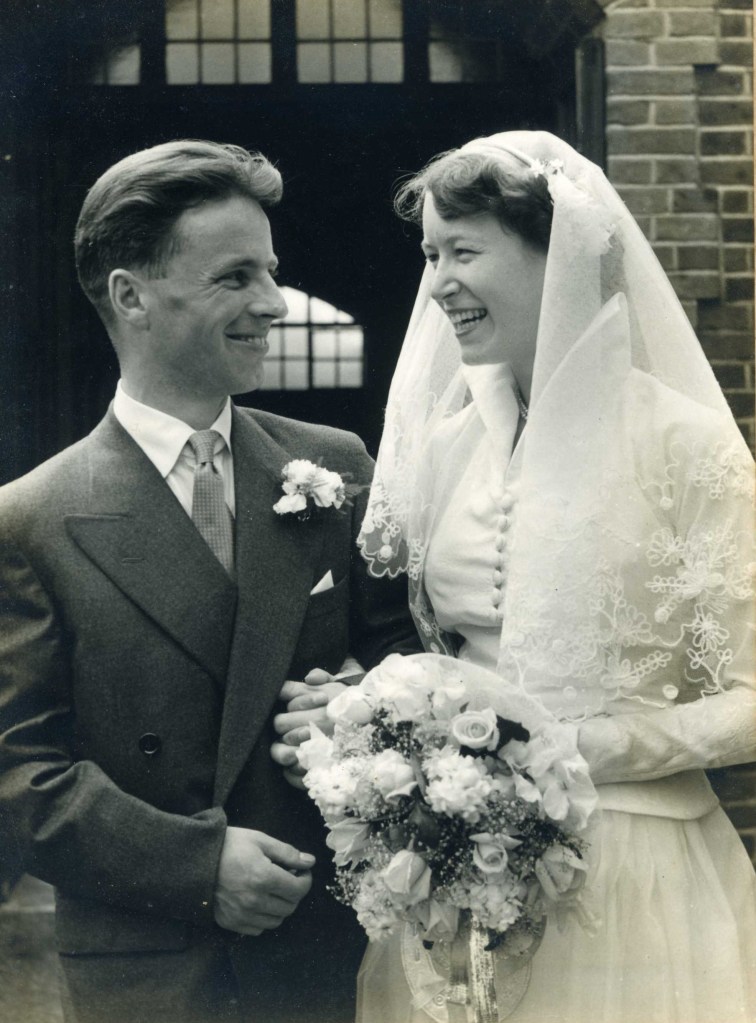
And it was a year when we celebrated love, companionship and family as my daughter married her partner of ten years – a purely joyful day, as the sincerity and seriousness of their commitment was expressed joyfully, as everyone there shared in their joy. Of course we were conscious of the people who should have been there but, as Tracy Thorn puts it in her song ‘Joy’, ‘because of the dark, we see the beauty in the spark’. It was a deeper thing than just happiness or contentment, and that’s because we were aware, we could not be unaware, of mortality and of the fragility of life but at the same time, daring to rejoice in the couple’s commitment to their shared future.

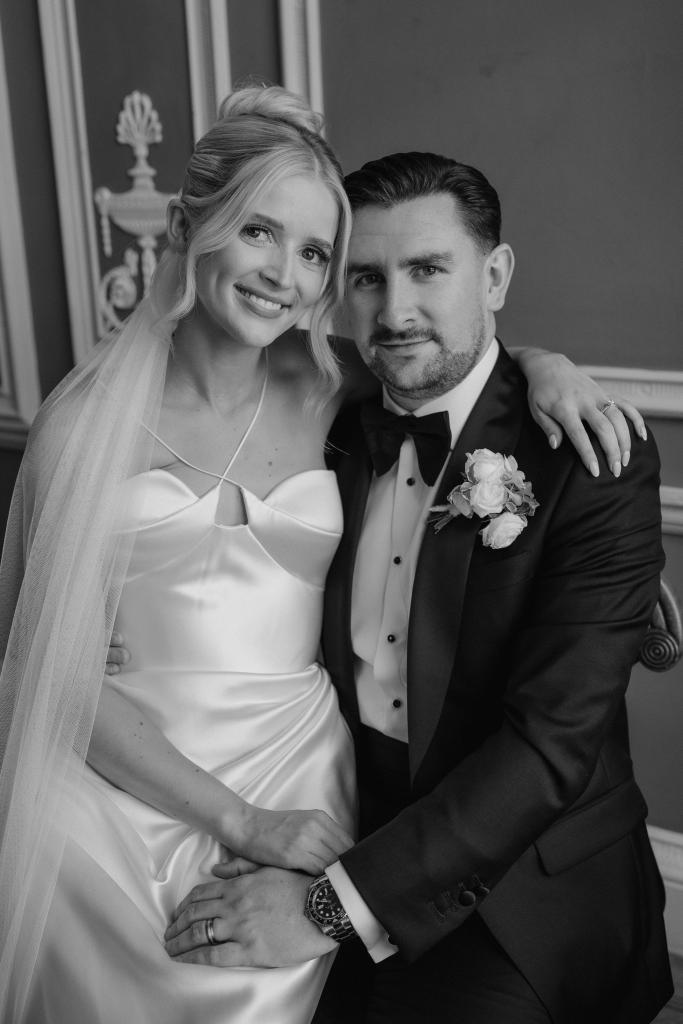
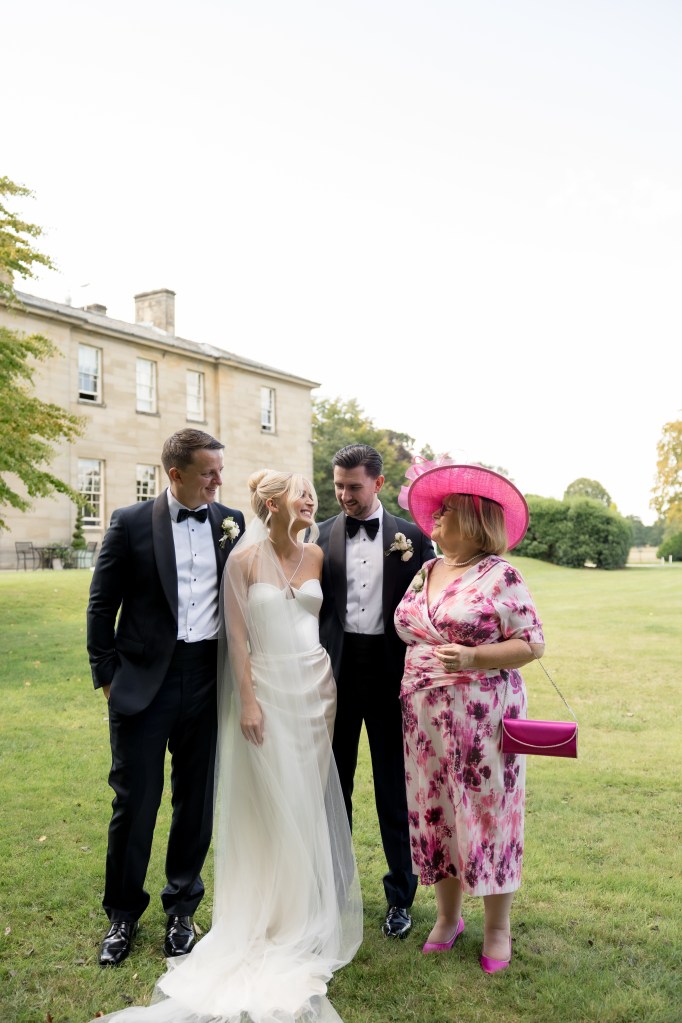
A year when I decided to take my health seriously, something I just couldn’t put my mind to for a while after M died. It had to be sustainable change, anything else is simply demoralising. I changed my diet (I didn’t ‘go on a diet’, I’ve been there, done that, and it is always miserable and always short-lived), and I stopped drinking alone (I’d been kidding myself it was making evenings on my own feel better, but it really wasn’t, and in the early hours of the morning, it felt a lot worse). And having discovered that Pilates is a form of physical exercise that I actually enjoy (who knew there was such a thing?) I added two live on-line classes to my weekly studio class, and found myself really making progress. Now, I didn’t do any of this with the intention of losing weight, which is a good thing, because I have lost not one ounce or one inch. But because I had other goals than that, I can be philosophical about the weight thing, rather than seeing it as a failure. I’m healthier, physically and mentally, and that’s enough. (By the way, if you feel moved after reading this to send me links to miraculous weight-loss techniques, please note that they will be deleted unread and you will be blocked. Cheers!)
Late last year I took on the role of Chair of the Under the Stars Board of Trustees. One of my best decisions ever was to join them as a trustee in 2023, and to be part of the incredible work they do. I feel privileged to be able to support the staff and the CEO in particular, and to see our participants finding joy in performing on the Crucible stage, at the Tramlines festival, and a variety of other venues. Stephen Unwin’s book Beautiful Lives, which traces the history of attitudes to people with learning disabilities and looks at how we can do better, was my non-fiction read of the year (see my books blog). It’s heartbreaking and horrifying – not just the murder of ‘useless mouths’ during the Nazi era but the denial of agency and dignity for so long to so many. But it’s also hopeful, and personal, and it moved me a great deal. This year I was cheering on Ellie Goldstein, who has Down’s Syndrome, as a competitor on Strictly Come Dancing. She gave the lie to any idea that ‘learning disability’ means inability to learn, as she grasped complex sequences of tricky dance moves that I would never be able to hold on to – whenever I was at a disco in my younger years I used to head for the loo or the bar when some kind of Macarena/Timewarpy thing got going (I can just about do the Conga). And this year Nnena Kalu, an artist with learning disabilities, was awarded the Turner Prize. If we stop putting all those with LD in a box together, and start listening to them as individuals, finding out what they can do, what they love doing, what hurts them and what gives them confidence, they will achieve more, and they will have a shot at finding joy. I’ve seen it, and I’ve found joy in it myself.

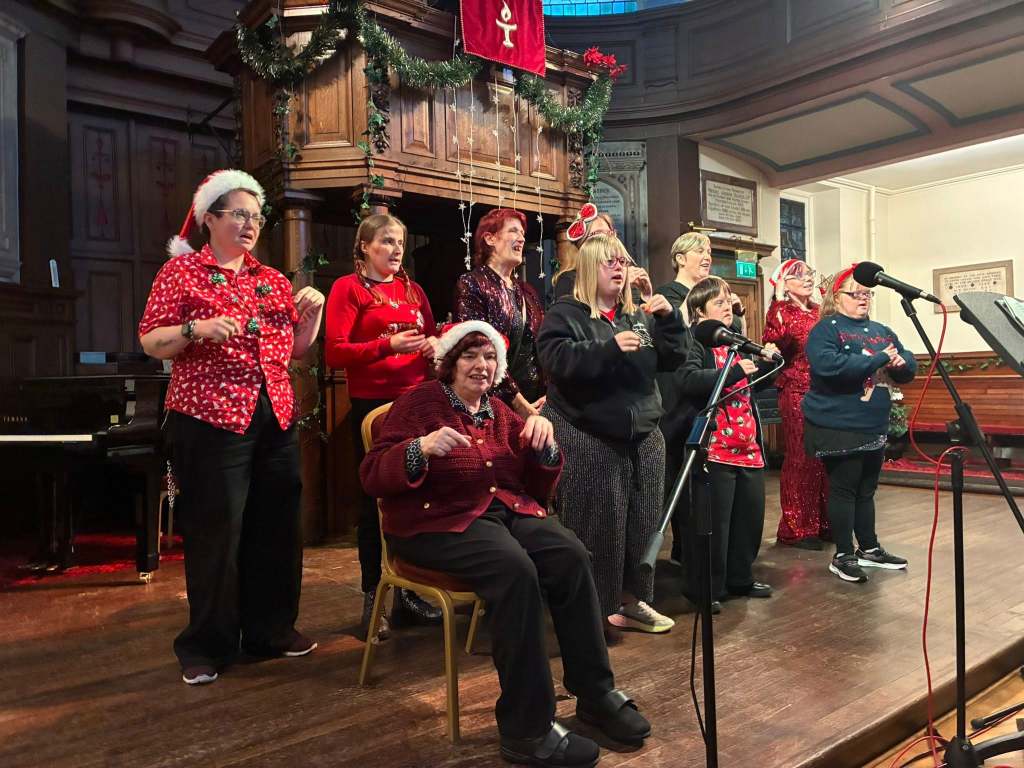
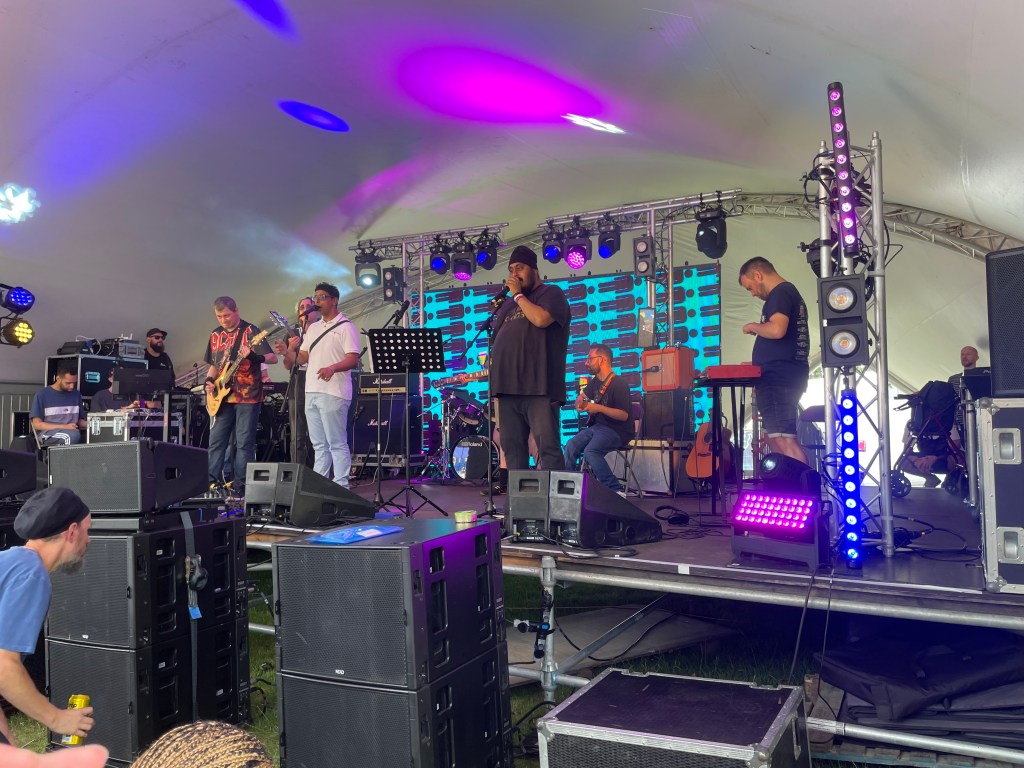
One of my big projects for 2025 has not yet come to fruition – finding a publisher for The Thesis. But I have a better sense of how it needs to be revised and reshaped to make that more likely and, too, a better sense of how much I can realistically do/am willing to do. It’s easier to do that kind of work when you’re within the context of a University, with full access to physical and electronic resources and to people who know stuff. But it’s not just that – I’m older than when I did the PhD, and I’m on my own now, and I don’t have the energy I had ten years ago. So I’m going to update the thesis, taking account of material published since I submitted it, and adapt it to address a wider readership rather than an external examiner. I want it to intrigue and interest readers rather than to prove myself as a scholar. I think that’s feasible, and so I’m not giving up on my dream of seeing the piece of work that absorbed and fascinated me for so long as a published book.
It’s now over four years since M died. The process continues. I’ve adapted lots of my domestic routines of course, and changed a lot of things around the house to make it fit me better. I’ve taken big decisions where I had to (the knee replacement surgery, getting rid of the car), and squillions of smaller decisions as I re-evaluate what I do and how I do it. My big decision for 2026 (so far) is that I will be going on an ‘escorted tour’ taking in Helsinki, Tallinn and Riga, three cities I have never visited and know only a little about. It may turn out that it’s not the sort of holiday that works for me, but if it is, it opens up so many possible ways of travelling and seeing new places. It’s a bit scary – I’m an introvert, and am fairly crap at small talk, and the trip will inevitably involve talking to strangers – but going on an organised tour makes some things a lot easier to contemplate as a solo traveller (see my blog about my previous city break with my son for all the reasons why it might make me rather anxious).
I suppose at some point ‘widow’ will cease to be a defining word for me, but at this stage in the process, it still feels deeply significant. I am still conscious all the time of his absence and it still feels strange – only recently I’ve had the sensation sometimes when I half-wake in the night that I’m not on my own and then the realisation that of course I am. I don’t mean I sense his presence, just that, whilst I’m fully awake I am used to the strangeness of solitude, but in those drowsy moments it puzzles me. I talk about him a lot, to family and friends who knew him, and to people who never knew him, because I can’t talk about my life without talking about him. I switch between ‘I’ and ‘we’ constantly and probably not consistently, because my adult life comprises a ‘before’ and an ‘after’. It’s not that ‘I’ was subsumed in ‘we’, just that our lives were so tangled up together ‘before’.
The title for this post is a quote from the Pixar film Soul, which I used in my speech at my daughter’s wedding last August:
“Life isn’t about one big moment. It’s the little things: walking with someone you love, sharing a laugh, watching the light hit their face just right. Love is in the noticing. The ordinary days that turn out to be everything. And maybe the whole point isn’t to chase the grand purpose, but to love deeply, and really live, right where you are.”
I don’t know whether the writers of Soul were consciously echoing Thornton Wilder’s play Our Town, but it’s not too much of a stretch to think that they were, given how popular the play is in the US. I recently read Ann Patchett’s stunning novel, Tom Lake, in which the play is the thread that runs through the narrative, and was so struck by it that I sought out and watched on YouTube the televised stage version with Paul Newman. And this, in the final act, jumped out at me:
EMILY: ‘Live people don’t understand, do they?’
MRS GIBBS: No dear – not every much.
EMILY: They’re sort of shut up in little boxes, aren’t they? … I didn’t realise. So all that was going on and we never noticed. … Oh, earth, you’re too wonderful for anybody to realise you. Do any human beings ever realise life while they live it? – every, every minute?
STAGE MANAGER: No. [Pause] The saints and poets, maybe – they do some.
Maybe that’s right, we can’t realise or notice every minute, we’re too busy living them, but we can try – to notice and to treasure. There are two strands of thought here for me. One is that the ordinary days ‘turn out to be everything’, a theme that I explored in my eulogy for M, focusing on the day before he died, about which I would remember hardly anything except that it was the last ordinary day, and thus extraordinary. The other is that joy is something we hope for rather than being able to predict or plan for, but that finding it depends on us noticing, noticing the people who we love and who love us, the beauty in music, in words, in the landscape or skyscape. And it depends on us realising that there’s a kind of defiance in joy, that it faces down the dark, the loss and grief, not denying them but just saying ‘there is also this, and this is marvellous and wonderful’, throwing the joy in those marvellous ordinary days in the face of whatever the year might bring.
I look back at 2025 with gratitude to all the people who made it good. Wonderful family and friends, sharing each other’s joys and sorrows. The care home staff who looked after Dad, treated him always with affection and respect, and held his hand as he slipped away. The Under the Stars team and our participants. The musicians who stirred my soul, my mind and my feet. The writers whose words allowed me to cross continents and centuries and to see into other people’s hearts and minds.
So as we move from one year into another, let’s ‘gather up our fears/And face down all the coming years’. Let’s hang on to our hats, hang on to our hope, let’s keep on keeping on. See you on the other side…
Tracy Thorn, ‘Joy’, from Tinsel & Lights, 2012
When someone very dear
Calls you with the words “everything’s all clear “
That’s what you want to hear
But you know it might be different in the New Year
That’s why, that’s why we hang the lights so high
Joy, Joy, Joy, Joy,
You loved it as a kid, and now you need it more than you ever did
It’s because of the dark; we see the beauty in the spark
That’s why, that’s why the carols make you cry
Joy, Joy, Joy, Joy Joy, Joy, Joy, Joy
Tinsel on the tree, yes I see
The holly on the door, like before
The candles in the gloom, light the room
the Sally Army band, yes I understand
So light the winds of fire,
and watch as the flames grow higher
we’ll gather up our fears
And face down all the coming years
All that they destroy
And in their face we throw our
Joy, Joy, Joy, Joy
It’s why, we hang the lights so high
And gaze at the glow of silver birches in the snow
Because of the dark, we see the beauty in the spark
We must be alright, if we could make up Christmas night.
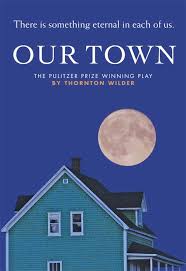

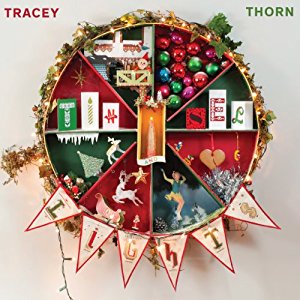
Music Nights 2025
Posted by cathannabel in Music on December 23, 2025
My year in live music – opera, jazz, chamber music, indie, folk, all sorts – and forays into the CD/vinyl collections. Four years of listening to music without M, and I still feel it’s somehow a shared thing. I don’t spookily ‘sense his presence’ but what I listen to and how I listen to it is still – and probably always -connected to the way we listened together. That includes embracing new stuff, resisting the tendency to get stuck in a genre or decade, and listening as an active process, not as an ignorable background to whatever else one is doing. This year’s music has been full of moments when I wanted to turn to him and say ‘hey, listen to this bit!’, or ‘doesn’t that remind you of x?’ or just ‘wow!’.
I had a feeling I’d been to more gigs this year than last, and so it proved when I totted them up – 41, plus Tramlines, as against 25 plus Tramlines the previous year. More different venues as well, 17 this year as against 14 last. I decided to list them chronologically rather than grouping them by genre or such like.
The only problem with going to so many gigs is that it’s hard to come up with something to say about each (I find it harder in any case to write about music, other than to splurge a lot of superlatives onto the page, than about books or film or TV). So I’ve commented where there was something particularly notable about the gig or the context, and have hinted at what some of my top gigs were this year, but both the musical genres and the experience of hearing them are so diverse that it makes any kind of Top 3 or Top 10 a bit arbitrary, so I haven’t done that (I make the rules).
Some of these concerts – probably most of the Music in the Round ones – I went to on my own. Somehow sitting in the Crucible Playhouse or in the pews at the Upper Chapel on one’s own seems much less odd than being solo at Crookes Social Club when it’s got cabaret seating, or even at a standing gig. I was and am determined not to miss out on live music just because I can’t find someone to go with, but there is, I acknowledge, a whole other dimension when one is sharing the experience. I shared the opera with Ruth; the Unthanks in Elmet with Ruth and Aidan; The Midnight Bell with Claire; Sheffield Jazz gigs with Adi, Jennie and Michael; Tramlines with Arthur, Sam, Jane and Richard; Bach solo violin, Schubert & Janacek, and Nigel Kennedy with Arthur and Gabi; various Under the Stars bands with colleagues and participants; Songhoy Blues with Jane, Richard, Jennie & Michael; Gong with Aidan; and Shostakovich and Messiaen with Liz.
January:
Tommy Smith & Gwilym Simcock, Sheffield Jazz (Crucible Playhouse). Smith is a top-notch sax player, and here he was performing with a top-notch pianist, for what the programme described as ‘an acoustic night of intensely musical duets and dazzling improvisation’, bringing together two generations of jazz mastery for ‘an evening of intimate musical brilliance’. Absolutely.
Kurt Weill – Love Life, Opera North (Leeds Grand Theatre) – an opera we didn’t know at all, and which is only rarely performed, for some reason. It opened in 1948, and has been revived a couple of times since, most notably in this production. It’s a product of the study Weill made of American popular song after he arrived in the US as an exile from Nazi Germany, with vaudeville numbers that provide a commentary on the narrative. The story itself is of a married couple who we first meet in 1791, and whose lives we follow through to 1948 – they don’t age but the world changes around them and thus changes them and the nature of their relationship. We loved the concept, the performances, the staging, and above all the songs.
February:
Richard Wagner – The Flying Dutchman, Opera North (Leeds Grand Theatre) – a rare occasion (I think the only one, actually) when we weren’t persuaded by the setting or the concept behind the production. The idea was to link the myth of the Flying Dutchman, constantly moving on, unable to find a home anywhere, with the story of the refugee – certainly an interesting concept, but the narrative of the opera couldn’t really be shoehorned into this without many jarring moments, and some loss of comprehensibility. The music, of course, was magnificent.
Benjamin Nabarro – Bach for Solo Violin: Sonata No. 1 in G minor/Partita No. 1 in B minor, Music in the Round (Upper Chapel). Superb performances from Ben, the lead violinist in Ensemble 360.
Valentine’s Voices – Daisy Daisy, Julian Jones, Sparkle Sistaz, Rye Sisters, PLUC, December Flowers, Banjo Jen, Clubland Detectives (Crookes Social Club – fundraiser for Under the Stars). Sparkle Sistaz and Clubland Detectives are two of the bands formed in the music workshops that Under the Stars run for adults with learning disabilities and/or autism. This event was a brilliant collaboration between our own artists and various local bands and solo performers.
March:
Gareth Lockrane Quintet, Sheffield Jazz (Crookes Social Club). Superb fluting from Lockrane who, according to the publicity material, ‘plays all the flutes’ – he certainly played quite a few over the course of the evening. The other quintet members were Nadim Teimoori on tenor sax, Nick Costley-White on guitar, Oli Hayhurst on bass, and Gene Calderazzo on drums.
Power: Shostakovich (Ensemble 360): Piano Trio No.2 Op.67/Piano Quintet Op.57 (Firth Hall). This was preceded by a fascinating talk about Shostakovich’s precarious position in Stalinist Russia. The music was just stunning.
Hejira, Sheffield Jazz (Crookes Social Club). Hejira perform Joni Mitchell songs – it could just be a top-notch tribute band but it feels like more, they are interpreting the songs rather than trying to replicate Mitchell’s performances. Brilliant.
Classical Sheffield Weekend:
- Ensemble 360 – Beethoven for Flute: Flute Sonata in B flat/Trio for piano, flute and bassoon (Upper Chapel)
- Sounds of Heaven – Sheffield Chamber Choir, Steel City Choristers, Sterndale Singers and Sheffield Chorale, each getting their own spots to perform, with music by Will Todd, Sarah MacDonald, Eriks Esenvalds, Palestrina, Grieg, Parry, Part, Purcell, Rheinberger, Macdonald, arrangements by Vaughan Williams, Donald Cashmore, and Shena Fraser, and then all coming together for a spine-tingling Tavener’s ‘God is with us’. (St Marie’s Cathedral)
- Sheffield Philharmonic Chorus – Fauré – Requiem, Finzi – Lo, the Full, Final Sacrifice, Stephen Johnson – The Miracle Tree/To Wed again/This Going Hence, Thomas Stearn – for music like the sea (Curlew at Redmires) (St Marie’s Cathedral)
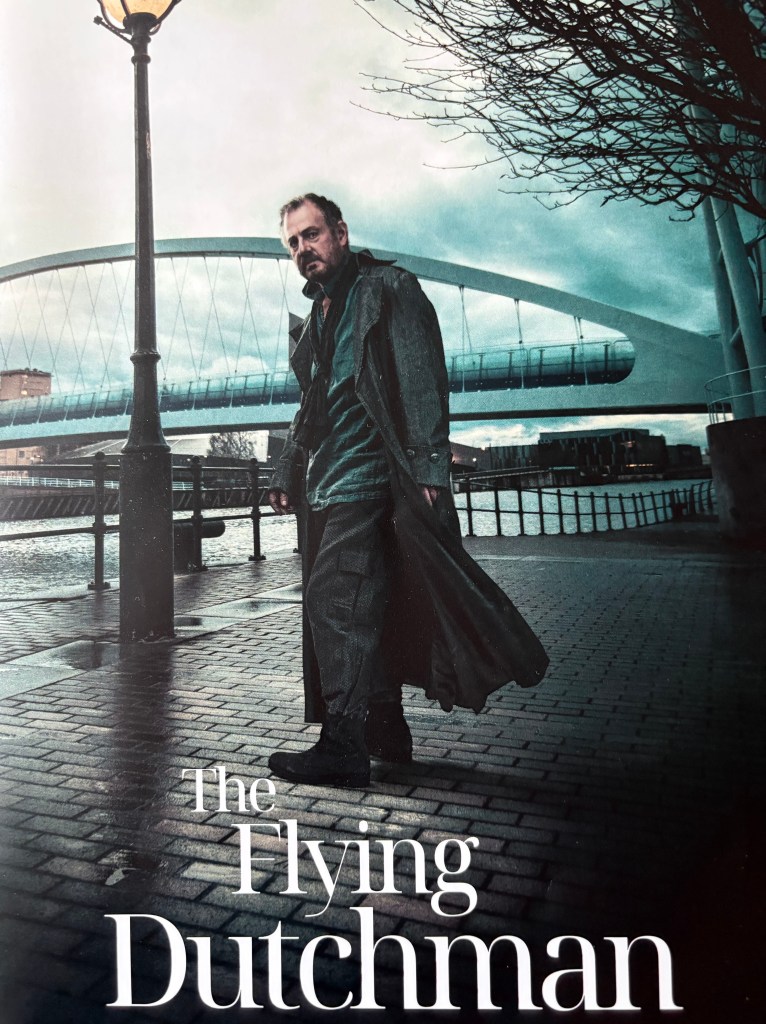


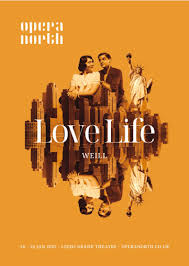

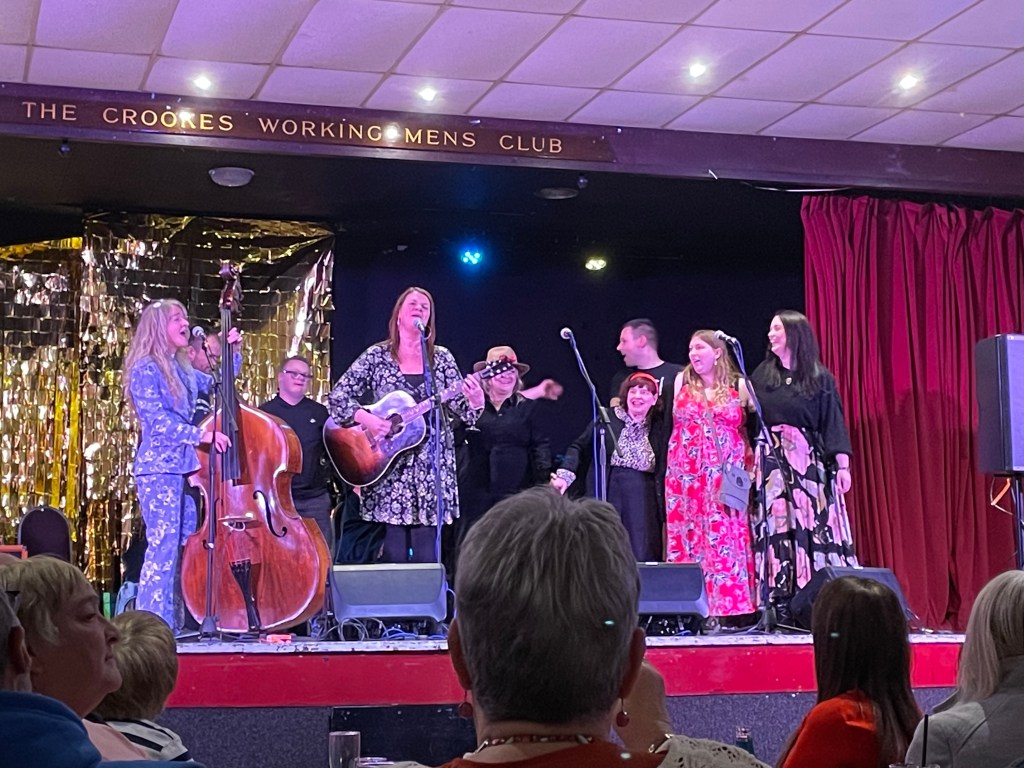
April:
Giuseppe Verdi – Simon Boccanegra, Opera North (St George’s Hall, Bradford). Brilliantly stripped-down staging, and the music was wonderful.
May:
Misha Mullov-Abbado, Sheffield Jazz (Crookes Social Club). Lovely stuff – the music was from their new album Effra, very varied and beautifully played by Misha Mullov-Abbado on bass with James Davison: trumpet & flugelhorn, Tom Smith: alto sax, Sam Rapley: tenor sax, Liam Dunachie: piano and Scott Chapman: drums.
Chamber Music Festival, Music in the Round. This year’s festival was curated by Ensemble 360 to celebrate their 20th birthday, and I wish I could have gone to more than the five gigs I managed. (all in Crucible Playhouse unless stated otherwise):
- Festival Launch: Huw Watkins – Broken Consort, Aileen Sweeney – Equinox, Schubert – Octet. A great start to the Festival – Aileen Sweeney’s premiere of Equinox was lovely and I want to hear more of her work, and the Schubert Octet is a piece I’ve heard a couple of times from Ensemble 360 and is an absolute joy every time.
- Intimate Letters: Schubert – Quintet in C Major, Janacek – String Quartet no. 2. The Janacek featured an actor reading extracts from the composer’s ‘intimate letters’ to a woman with whom he was obsessed for many years – it gave a whole new dimension to the music, and sometimes a troubling one.
- The Nostalgic Utopian Future Distance: Kaija Saariaho – Petals, Boulez – Dialogue de l’ombre double, Luigi Nono – La lontanaza nostalgica utopica futura (Firth Hall). Ensemble 360 musicians duetting with electronic sounds. Never easy but always fascinating and compelling.
- Sinfonietta: Knussen – Cantata, Ravel – Piano Trio in A Minor, VW – Piano Quintet in C Minor, Britten – Sinfonietta
- Finale: Mozart – Flute Qtet in D, Beethoven – Quintet for Piano & Wind, Elgar – Piano Quintet
Peggy Seeger – First Farewell Tour (Cubley Hall). She’s 90 so took a while to get on and off the stage (assisted by her sons), and the voice is more fragile than it once was, but she’s still got it. She sang ‘The First Time…’ (of course) and told the story of how Ewan MacColl had written it for her (‘at least’, she added wryly, ‘that’s what he told me’).
All the People Festival of Debate. Sparkle Sistaz/Clubland Detectives – (Leadmill). Two Under the Stars groups performed at this event which was all about inclusion and hearing the voices that are so often ignored.
June:
Songhoy Blues (Sidney & Matilda). I’ve loved these guys ever since we saw them at Tramlines ten years or so ago. This was a very electric – and totally exhilarating – rendition of their latest album, Héritage, which uses a lot more traditional instrumentation. Support was from the very engaging Nfamady Kouyate on balafon.
Dungworth Singers (Old Bandroom, Dungworth). Really interesting repertoire, everything from ‘Wayfaring Stranger’ to ‘A Nightingale Sang in Berkeley Square’ (my two favourites I think) and in between, lots of songs that I’d never heard or heard of, many from Yorkshire, but also from the the Sacred Harp tradition of choral sacred music in the US.

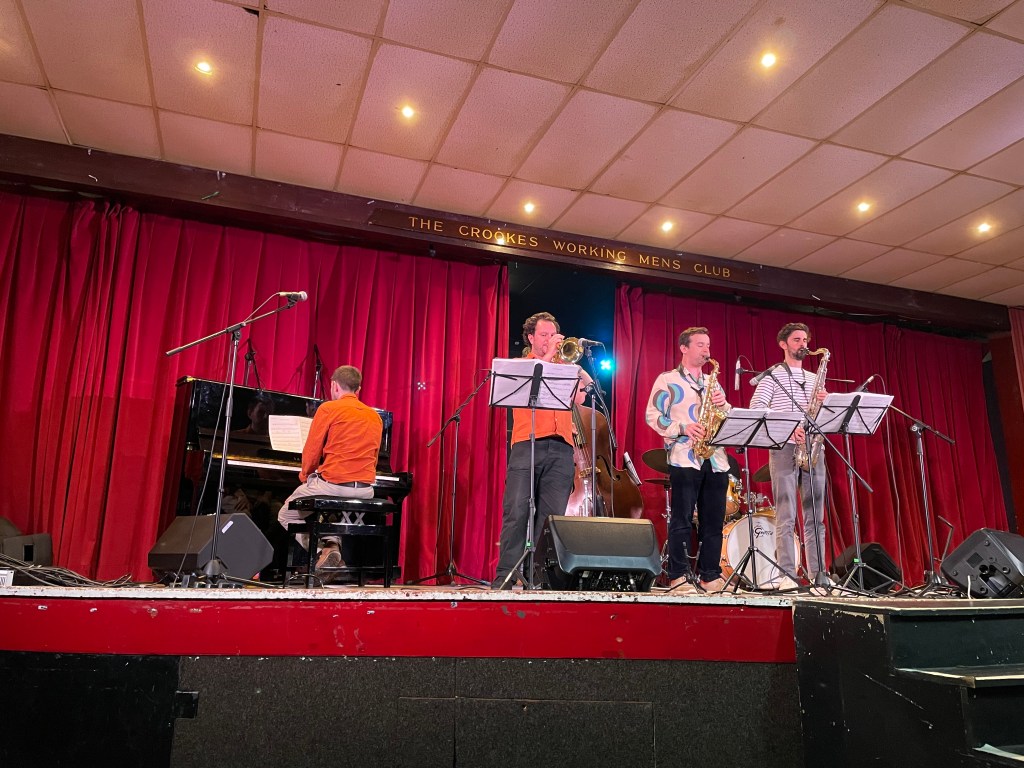
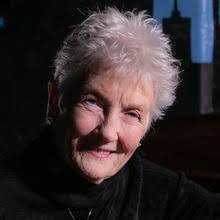
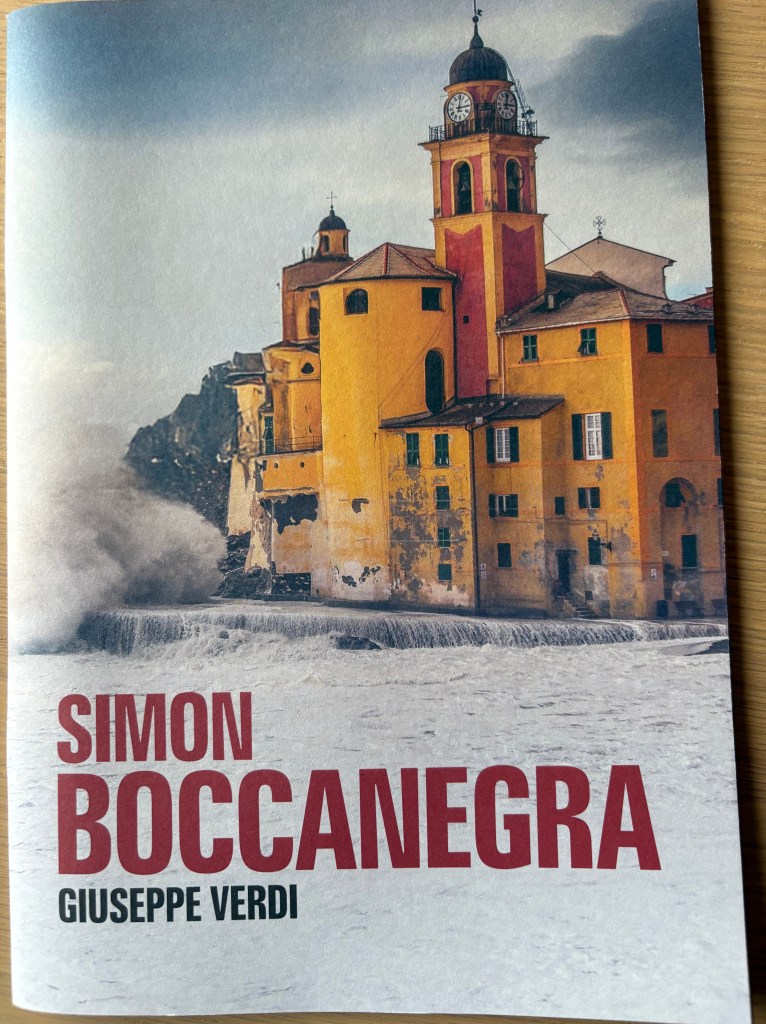


July:
Crosspool Festival: Dungworth Singers (Tapton Hill Congregational Church), Sheffield Folk Chorale (Benty Lane Methodist Church)
Sparkle Sistaz – Sistarz (Crucible Playhouse). A brief, tantalising preview of a musical they’re working on at present, which we hope to see in full next year.
Tramlines (Hillsborough Park): We saw/heard: Natasha Bedingfield, Cliffords, Cloud Canyons, Franz Ferdinand, John Grant, I Monster, Mackenzie, Oracle Sisters, Pulp, Pia Rose, The Second World War, Sherlocks, Heather Small, Spiritualised, Stars Band. Truth be told, being of short stature I did not literally see all of the bands listed above – where they performed on the Main Stage I did at least see the screens either side of the stage – but I heard them, and occasionally managed to manoeuvre myself into a gap that allowed me to glimpse the band for a while. Pulp were the highlight, no question, playing all the tracks you’d expect, and a lot of their fab new album. But I also rated John Grant, I Monster, and Cliffords very highly, and Heather Small’s set was just (as someone behind me in the audience said), made of sunshine. I increasingly have to pace myself very carefully to ensure that I haven’t exhausted my capacity for standing before the bands I most passionately want to see. So I’d been looking forward to Spiritualised, but missed some of their set in order to have a sit down before Pulp. Each year I go I ask myself, is this the last time, but it’s still worth it, even if I don’t clock up quite as many different bands as I used to. I’ve already bought the tickets for next time in any case…

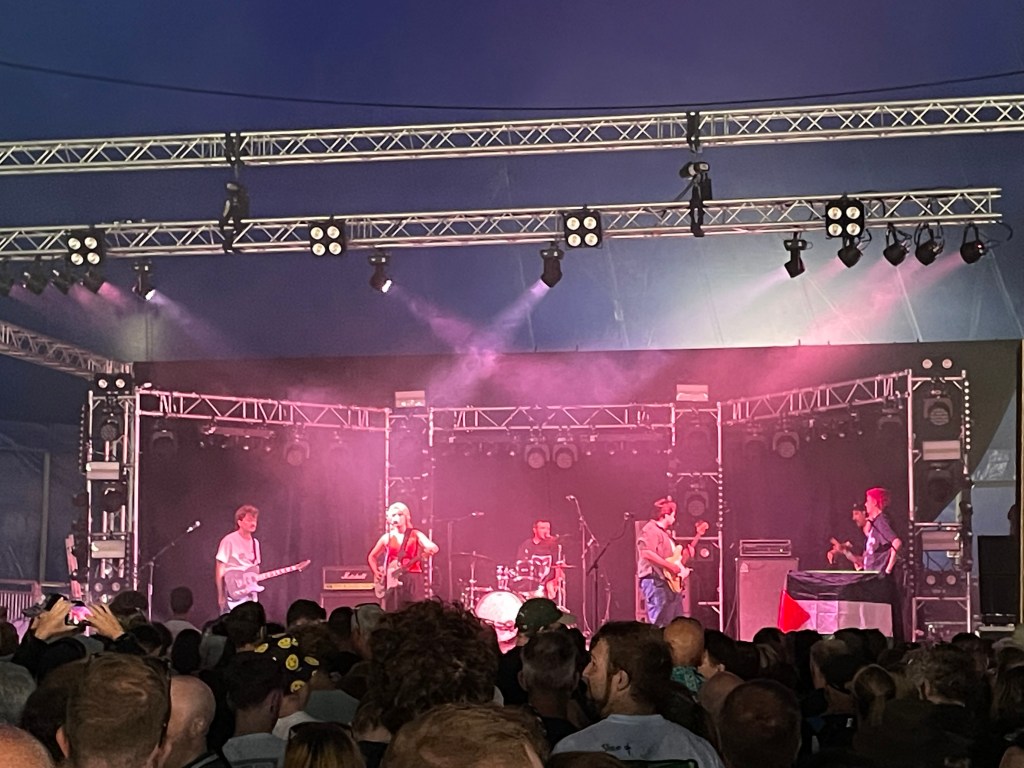

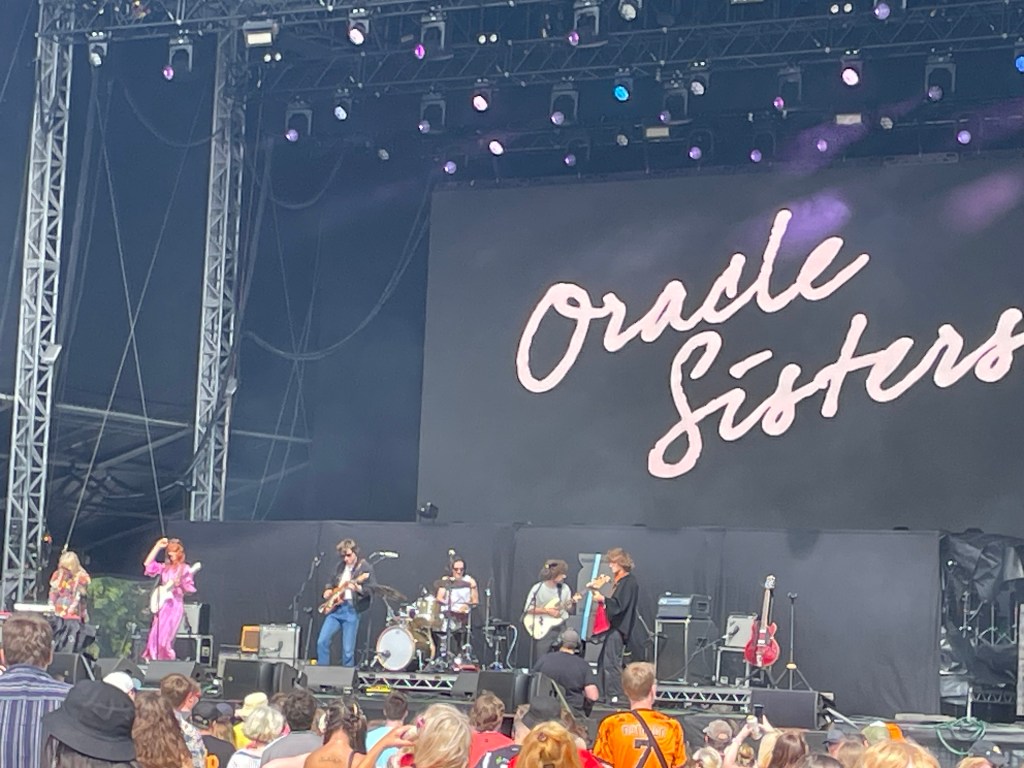

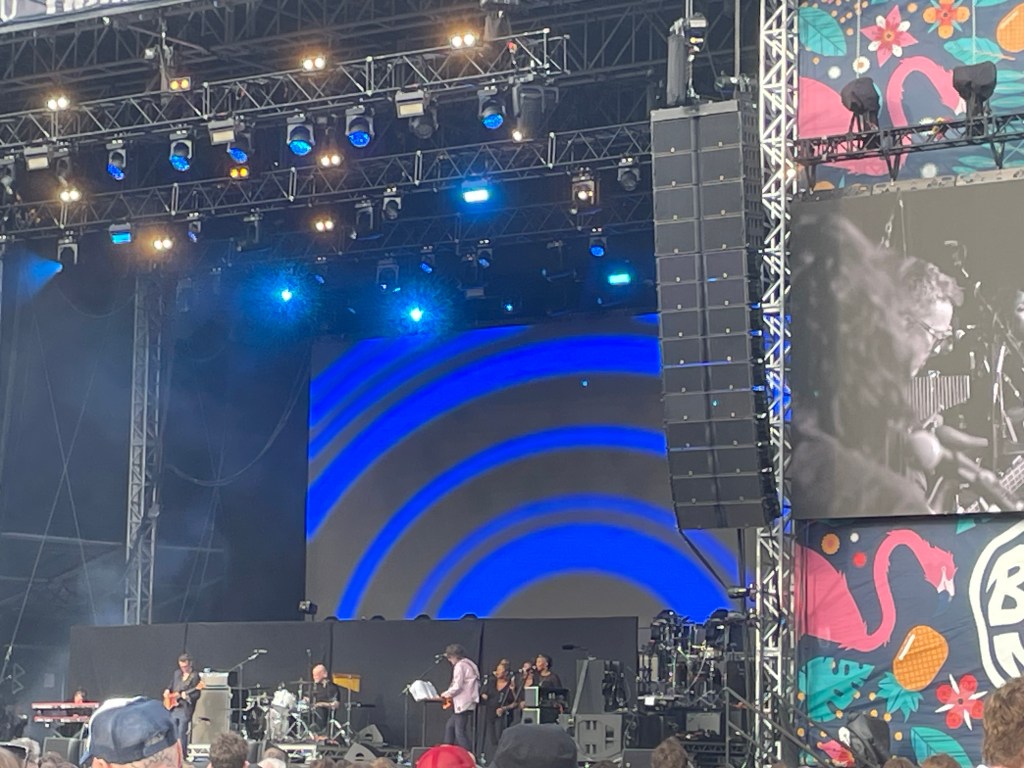
September:
Matthew Bourne – The Midnight Bell (Lyceum Theatre). My first time with Matthew Bourne’s modern ballet, and it will not be my last. The music here is not taken from the ballet repertoire – the soundtrack, by Terry Davies, is modern, quite minimalist, interspersed with songs from the ‘30s (the setting for the piece) to which the performers mime (very Pennies from Heaven). Davies’ music is in contrast to the archive songs, conveying the inner life of the characters, as against the romantic lyrics of the songs.
October:
George Frideric Handel – Susanna, Opera North (Leeds Grand Theatre). Only my second Handel opera (I saw Giulio Cesare with M back before the pandemic). The production is excellent, very powerful, and the singers weave around and are woven around by dancers from the Phoenix Dance Theatre, whose modern dance moves provide telling contrast to the mellifluously formal Handel score.
James Allsopp Quartet, Sheffield Jazz (Crookes Social Club) – tribute to Stan Getz, ranging across his oeuvre, a lovely, warm sound and some gorgeous tunes.
The Pocket Ellington, Sheffield Jazz (Crucible Theatre). The first half was Alex Webb’s arrangement of Ellington big band compositions for four horns and a rhythm section (Alan Barnes baritone & alto sax, clarinet; Robert Fowler tenor sax, Simon Finch trumpet, David Lalljee trombone, Alex Webb piano/MD, Dave Green bass, and Alfonso Vitale drums.) Absolutely fab. See here for Richard Williams’ review of the project and of a performance, with a slightly different line-up, at Soho’s Pizza Express.
Nigel Kennedy: Heart & Soul, with Beata Urbanek-Kalinowksa (cello) – Kennedy, Komeda, Yellow Magic Orchestra Sakamoto, Bach (Crucible Theatre). Nigel is as always irrepressible and impossible to tie down, even to a set list. He borrowed a programme from someone on the front row and said ‘Oh no, it’ll be nothing like that’. In fact it was quite a bit like that, but some of the tracks on the programme never materialised, and others took their place, and there was another violinist on a couple of tracks whose name I never quite caught, a young woman who is clearly massively talented and who I’m sure we will hear of again.
Josephine Davies’ Satori, Sheffield Jazz (Crookes Social Club). Davies on sax, and Alcyona Mick on piano. The material in the first half was from her latest album, Weatherwards, inspired by the landscapes of the Shetlands where she was born, and the sound is quite different from her earlier material which was, I suppose, more immediately accessible. But the new material is definitely worth another listen.
Giacomo Puccini – La Bohème, Opera North (Leeds Grand Theatre). This is the same production that I’d seen twice before but with different casts each time. I felt Rodolfo had been a tad under-powered the second time I’d seen it, but no such problems here, and I found myself more moved by the ending than I’ve ever been before. Of course, that may be because since I last saw it, I’ve lost my brother, my husband, my dad…
The Unthanks, Elmet (Bradford, The Loading Bay). The wonderful Unthanks were performing live as part of this drama premiere for Bradford 2025, a dark and brooding play by Bradford writer/director Javaad Alipoor, about ‘family, revenge and the ultimate price of freedom’.
Bach & the American Minimalists – Shani Diluka: J S Bach, C P E Bach, Philip Glass, Keith Jarrett, John Cage, Bill Evans, Moondog, Meredith Monk (Crucible Playhouse). This was a brilliant concept, beautifully performed and presented by Diluka on piano. The programme interspersed pieces by Bach(s) with pieces by various minimalist composers, following on from one another so that we heard and felt the resonances between them.
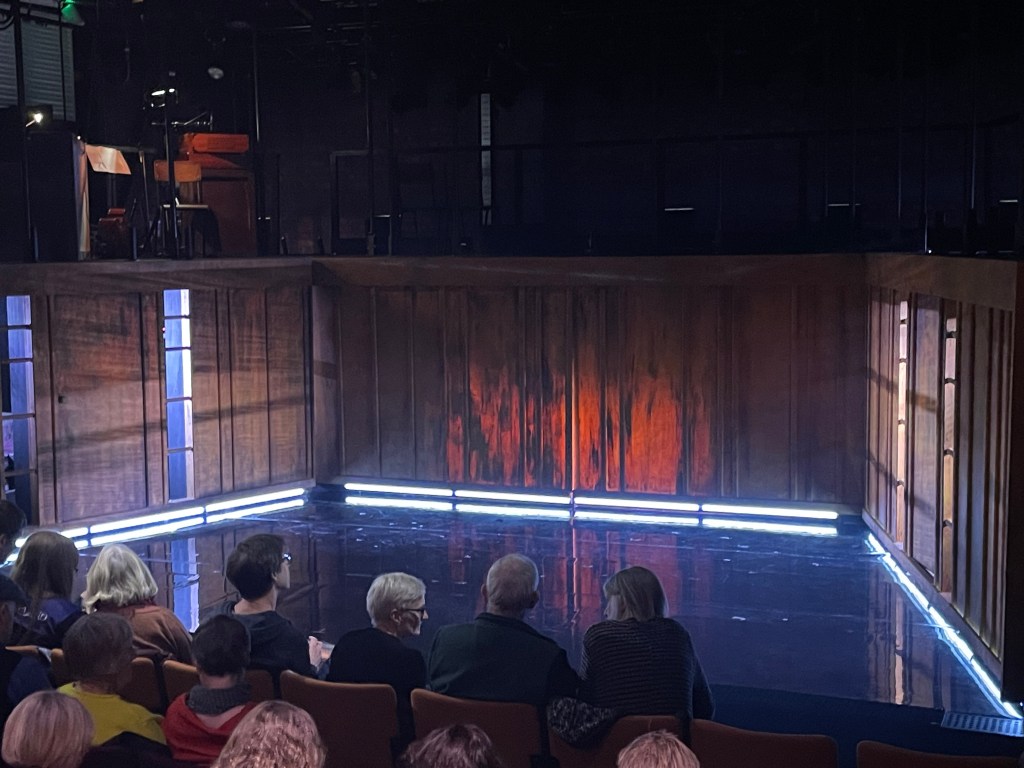
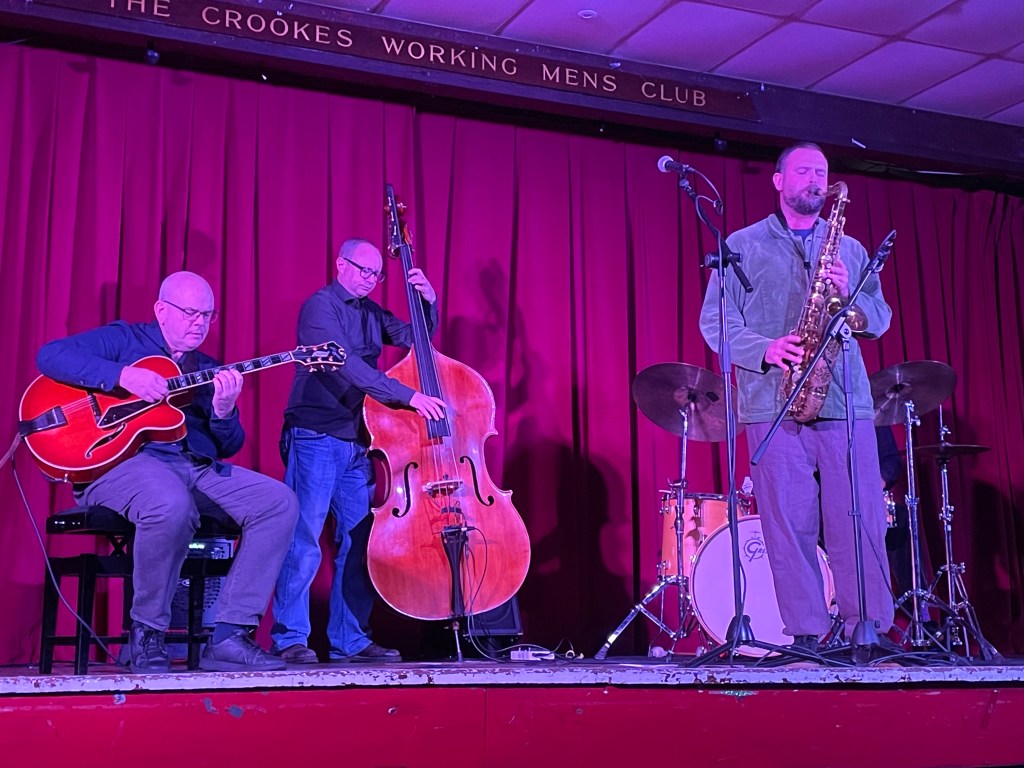
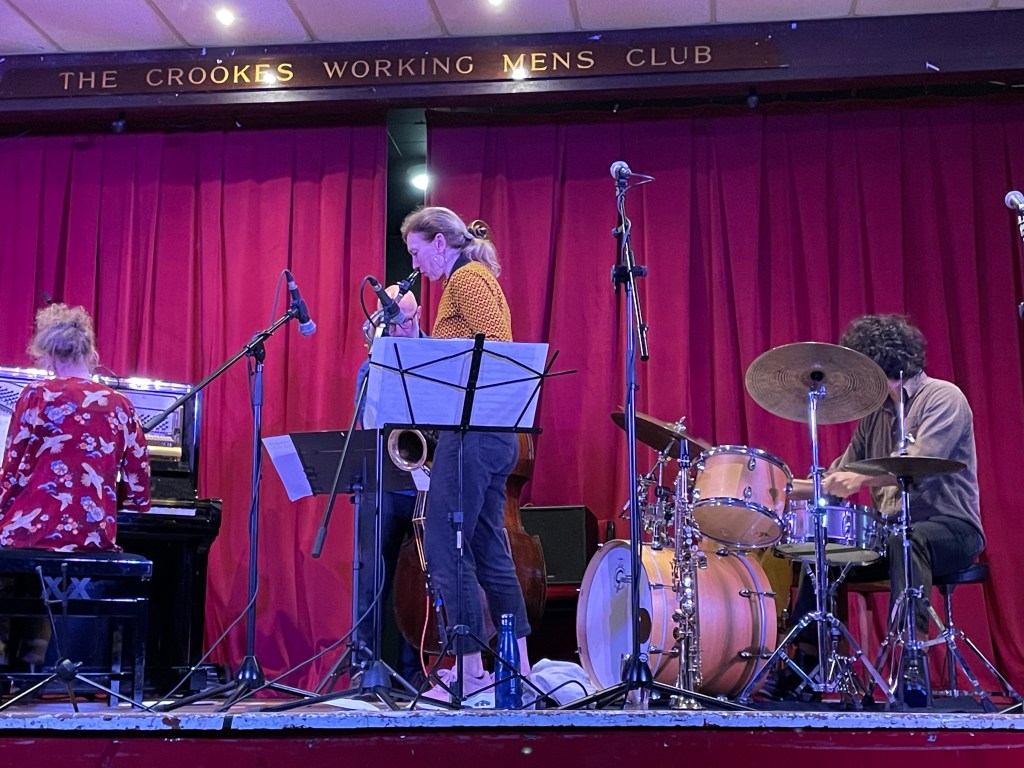
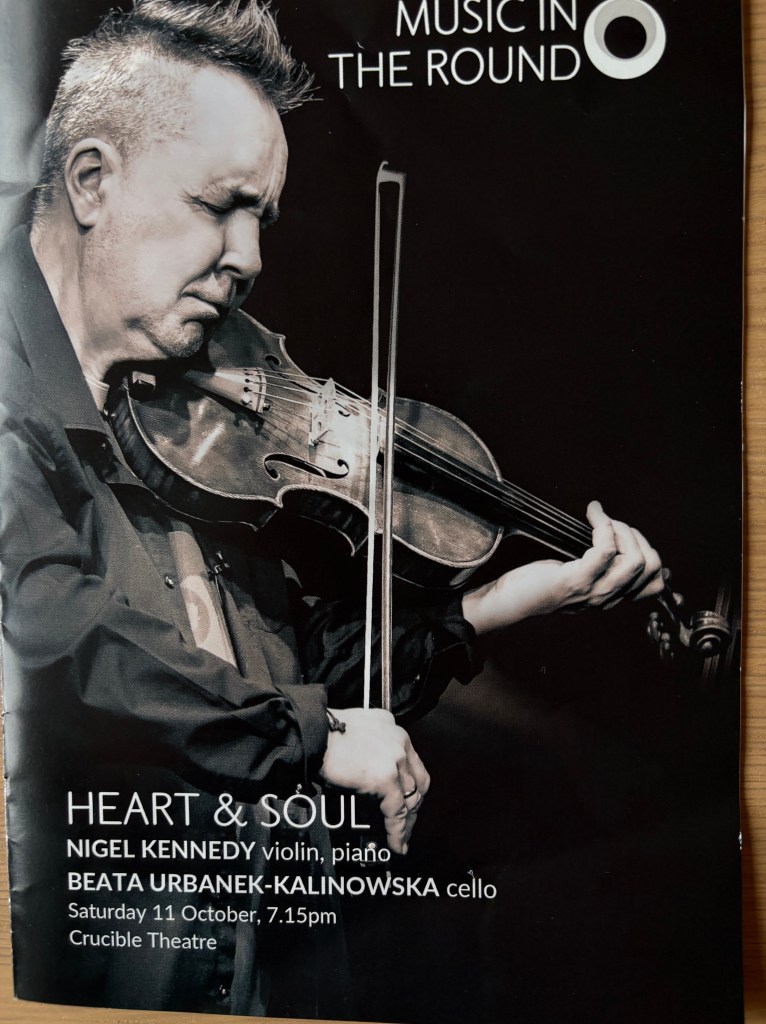
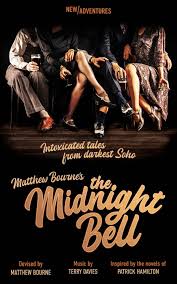
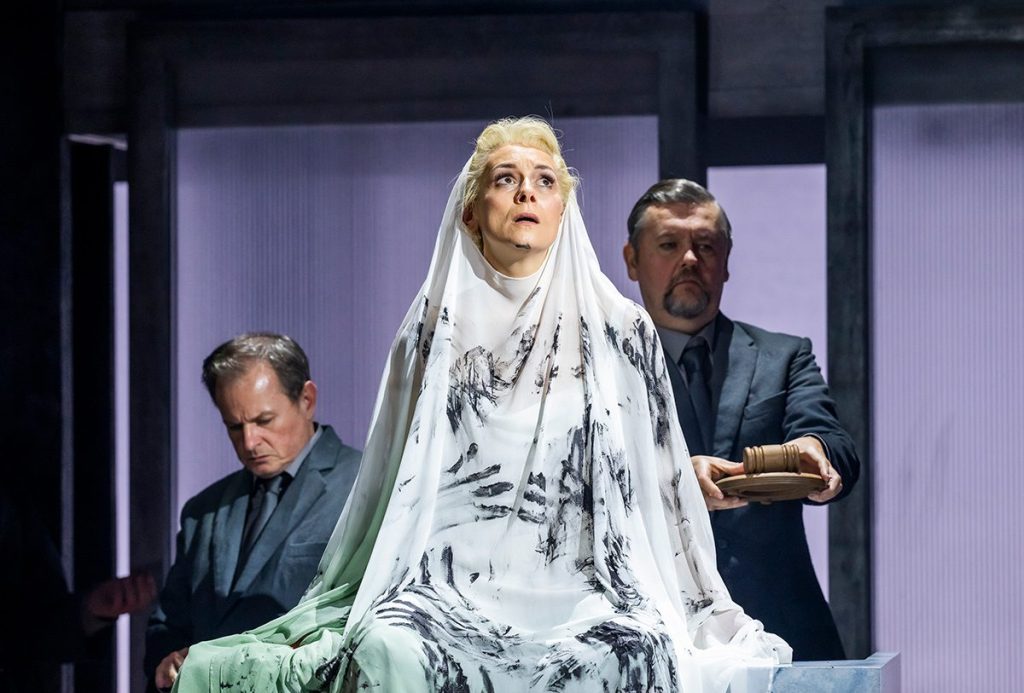
November:
Quartet for the End of Time – Ensemble 360: Gideon Klein – String Trio, Leo Smit – Trio for Clarinet, Viola & Piano, Messiaen – Quartet for the End of Time (Crucible Playhouse). I can’t hear the Messiaen too often – it never feels familiar, and never fails to compel absolute attention. The story of the first performance is unforgettable too – a freezing January night in a POW camp in 1941, with the score scribbled on scrap paper scrounged from a friendly guard, and with instruments that were poor to begin with and hadn’t been looked after. And yet, and yet, the extraordinary music was extraordinary even in those circumstances. The Klein and Smit pieces are both small victories over Nazi brutality – their composers were murdered, and so we were deprived of all the music they would have written (Klein, especially, who was only 25 when they killed him), but we have these pieces, which weren’t meant to survive. But here they are.
Julian Jones (Cerrones). A nice deal: lunch at Cerrones (Italian restaurant), followed by a gig from Julian, playing guitar and keyboards, performing almost exclusively his own compositions apart from two covers (James Taylor and Neil Young).
Ravel & Glass: Cinematic Quartets – Piatti Quartet: Bernard Hermann – Suite from Psycho, Jonny Greenwood – The Prospector’s Quartet, Philip Glass – String Quartet no. 3 ‘Mishima’, Maurice Ravel, Quartet in F Major (Crucible Playhouse). A fascinating selection of pieces. Hermann’s Psycho Suite is stunning, absolutely riveting, and I was convinced when I heard the Ravel that he might have been influenced by it – can’t prove it, obviously, but I relistened to both at home a few days later, and felt the same, so that’s my theory that is mine.
Laura Jurd Quintet, Sheffield Jazz (Crookes Social Club). The gig of the year from Sheffield Jazz, and one of the top few overall. An intriguing line-up – Laura on trumpet, obviously, and Corrie Dick on percussion, plus Ultan O’Brien on viola, Martin Green on accordion and Ruth Goller on electric bass. O’Brien and Green gave the music a folky feel, with a strong klezmer element at times, and I felt very strong Third Ear Band vibes. The Quintet were performing material from the latest album, Rites & Revelations, which I bought on vinyl after the gig, as I was so blown away by the music.
Gong (Crookes Social Club) – Gong are still here, undiminished in spirit if not in terms of the personnel who made those early albums. A lot of this is down to Kavus Torabi, who Daevid Allen specifically proposed as his successor to lead the band, and who makes a charming and charismatic front man, and a fine musician. (I already knew of Torabi through the delightful book he co-wrote with Steve Davies (yes, the snooker player), Medical Grade Music.) Long live Gong.
Death & the Maiden – Dudok Quartet: Saariaho – Terra Memoria, Gesualdo – Moro, lasso al mio diolo, Mussorgsky – Songs & Dances of Death, Liszt – Via Crucis, Schubert – Death & the Maiden (Upper Chapel). The Gesualdo, Mussorgsky and Liszt pieces were arranged for string quartet by the Dudoks. An uplifting evening of music about mortality. One of the musicians said at the start, that when we write or talk about death, we’re always really talking about life, and that makes sense to me. Certainly these pieces were poignant, moving, but never just heavy or dark – there was light, always light.
December:
Viennese Masterworks – Tim Horton: Haydn – Piano Sonata in E flat, Brahms – Four Ballades, Schoenberg – Suite Op. 25, Beethoven – Piano Sonata in D (Crucible Playhouse). This concert is part of a series that explores the connections between the First Viennese School (e.g. Haydn & Beethoven) and the Second (most notably Schoenberg, but also Berg & Webern). Here Brahms forms a kind of bridge between the two Schools. Schoenberg’s Suite is a Baroque suite, with a Brahmsian Intermezzo – clearly, as Tim pointed out in his pre-gig talk, the creation of twelve tone/serialism was not some scorched earth iconoclasm, but a development of this great musical history.
Together in Winter Harmony – Carfield Community Choir, One World Choir, Sparkle Sistaz (Upper Chapel)
Lovely festive choral concert. One World Choir brought us songs in various languages, Arabic, Ukrainian and a number of African languages, some explicitly Christmassy, others more tangential but uplifting. I was there primarily for the Sparkle Sistaz, who were magnificent, doing two of their own songs (I noted they didn’t do ‘the one about people who piss us off’ or ‘Bad Boyfriend’ which was probably for the best, as they’re feisty rather than festive) and some standards – notably a rambunctious version of Rudolf the Red Nosed Reindeer (a song all about difference, bullying and inclusion, is it not?), and performed with their usual sass and panache, and got a rapturous response.
Pass the Spoon – Opera North (Howard Assembly Room)
Absolutely bonkers comic sort-of-opera set on a TV cookery show, created by artist David Shrigley with music by David Fennessy (using lots of percussion, a nod to Bernard Herrmann’s Psycho score, and a quick burst of Für Elise, amongst other musical references). I wasn’t sure at first how much I was going to enjoy it, but it got darker and funnier and more and more bonkers as it went on – surreal, scatological and unhinged. Excellent fun.
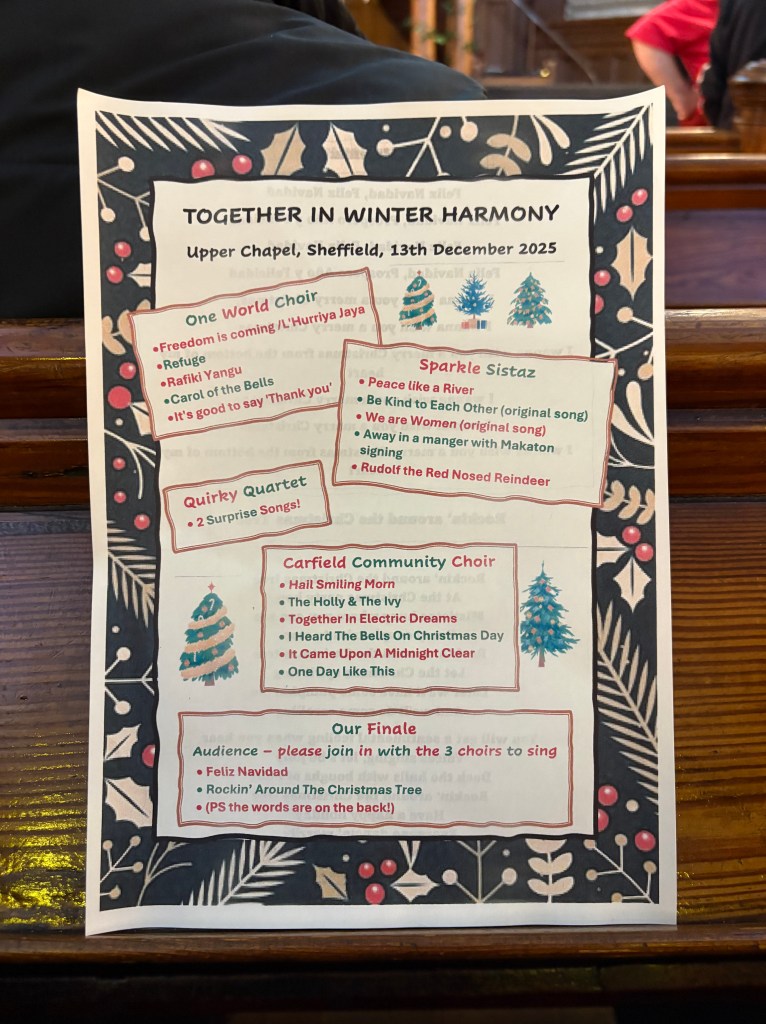
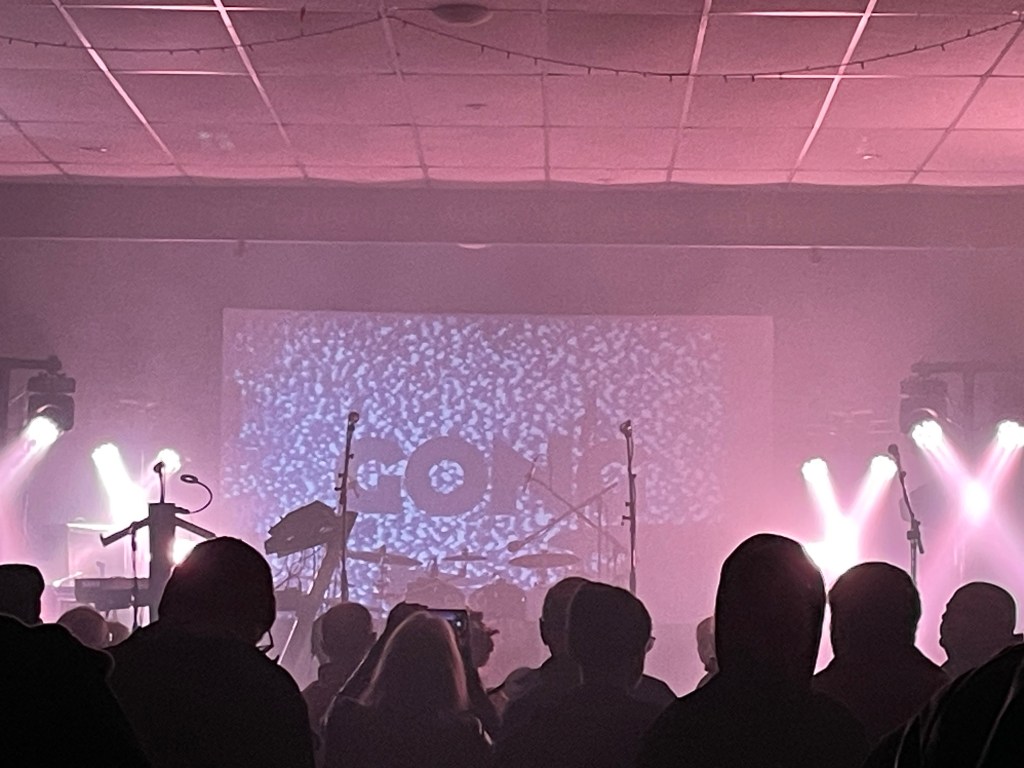
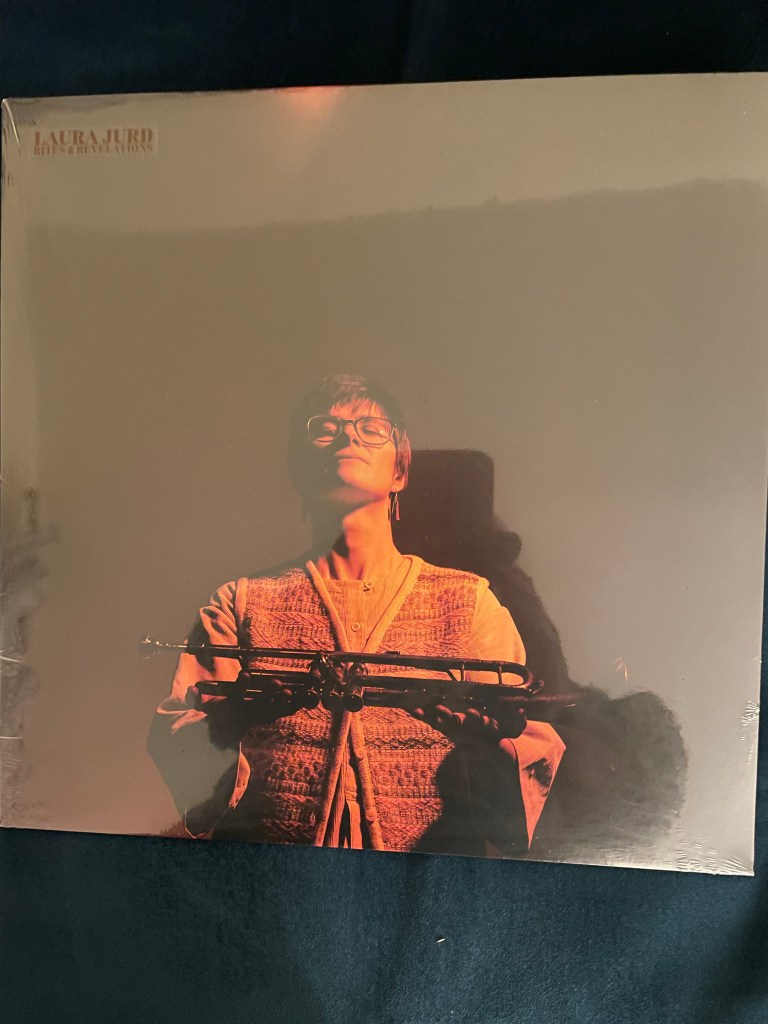
Radio
I’m a Radio 3 sort of a chap. I know other radio stations are available, and always mean to put on Radio 6, but somehow haven’t got round to it. I know it’s an old person thing to grumble about schedule changes but I do still miss Saturday afternoons on R3, with Sound of Cinema, Music Planet, and Jess Gillam’s This Classical Life taking us nicely into the evening. Only the first of those is still on in the mid-afternoon slot and so despite best intentions (see above) I find I don’t catch up on Sounds with the other programmes very often. Similarly, the demise of J to Z has lessened my listening to jazz on R3, since its replacement is ‘Round Midnight which is on, as one might expect, around midnight, and thus way past my bedtime. I do have Jazz Record Requests on a Sunday afternoon and remain a loyal listener – there are always some tracks by artists I know and love, and some by artists I don’t know yet and would like to. And, each year since 2021, Alyn Shipton has played a request in memory of M (so far, Miles, Mingus, Holiday, Cobham, Peterson & Young for me, and John Marshall for M’s brother).
An innovation this year is my discovery of Radio 3 Unwind which, played through a pillow speaker, has been remarkably helpful in allowing me to get off to sleep and, particularly, to get back to sleep more easily if I wake during the night. M was always a bit scathing about the use of music to relax (he used to rant about Classic FM’s emphasis on this role for music), and he could not use music as background (thus on long drives he preferred R4, because he could more easily filter words out than music, whilst I’m the other way around). For me, the mix of ambient sounds, the shipping forecast and tranquil music allows me to filter out the endless whittling and catastrophising that my brain insists on, especially at 3 a.m. It works, anyway, and I’m most grateful for it.
Music Nights
As usual, what I choose to grab from the collection is either random, or prompted by something I hear or read. This year, I also had a batch of vinyl rescued from obscurity and mould in the cellar, amongst which were many things that we’d never replaced with CD and which I was hearing for the first time in more than 40 years.
Those departed artists who were honoured through inclusion in my music nights include Brian Wilson, Gilson Lavis (Squeeze), Jack DeJohnette, Terry Reid, Ozzie Osbourne, Rick Buckler (Jam), Cleo Laine, Danny Thompson, Garth Hudson (The Band), Mani (Stone Roses), Steve Cropper (Booker T & the MGs) and Dave Ball (Soft Cell). And I marked the 25th anniversary of the death of the marvellous Kirsty MacColl with an evening of her music.
I post about what I’m listening to on BlueSky these days (I still have a look on X but I don’t feel I want to engage there, other than with Radio 3 and particularly Jazz Record Requests, who are still using the Musk place) and sometimes on Instagram/Facebook too. This makes me feel less like I’m listening alone. It is rare that someone doesn’t like and/or comment on my music posts – thank you to all who do so. I’m sharing the music I’ve chosen and it’s lovely to find that someone somewhere is nodding or smiling at my choices, or suggesting other things I might like, or reminiscing about what that track or album means to them. The other reason I share it is that M taught me to listen mindfully (though he wouldn’t have used that word) – not just to passively let the music play but to be aware of it, focus on it, think about what it’s doing and how. I found it hard at first to do that without him, but I’m getting the hang of things now.
I’ve also got some pretty hefty Spotify playlists, most notably the 13+ hour selection we put together for M’s wake, which features at least a smattering of the music we listened to together over 47 years. I play that one on our wedding anniversary, on the anniversary of his death, on his birthday, or whenever, really, because the music is absolutely bloody marvellous. It’s not ‘wallowing in misery’ when, even if one track makes me cry, the next makes me smile or forces me to have a bit of an awkward dance around the living room. It’s honouring him and our life together, triggering so many memories, and reminding me of other music I want to hear again, including new music that I’ve discovered or acquired since he died. There’s another playlist for Christmas (as free as possible of the usual suspects), and one for New Year featuring a selection of tracks that have some connection to events in the year, the one I made for my Dad’s funeral that never got played at the reception because I was having a massive dizzy spell just when I should have been loading up Spotify, and the one I made for a reunion with people who were at college with M that didn’t work on the night…
All of the artists below found their way on to my CD player or turntable, or I watched them live on TV, or listened on Spotify (but inclusion means that it was more than one or two random tracks).
Yazz Ahmed, Jan Akkerman, Allegri, Amadou & Maryam, Amaarae, Multatu Astatke, J S Bach, Badfinger, Chet Baker, the Band, Bartok, Beababadoobee, Beach Boys, Beatles, Beethoven, Black Sabbath, Black Uhuru, Booker T & the MGs, Bowie, Brahms, Bruch, Kate Bush, David Byrne, Camel, Brandi Carlisle, Chakra, Chitinous Ensemble, Chopin, Gary Clark Jr, Coltrane & Duke, Corelli, Cymande, Delius, Corrie Dick, Elgar, Ellington, Empirical, En Vogue, Ezra Collective, Donald Fagen, de Falla, George Fenton, Ibrahim Ferrer, Ella Fitzgerald, Fripp Keeling & Singleton, Gateway, The Gentlemen, Stan Getz, Egberto Gismonti, Philip Glass, Global Village Trucking Company, Gong, Grande Familia, John Grant, Stephane Grappelli, Grieg, Haim, Handel, Hatfield & the North, Haydn, Hendrix, Henry Cow, Bernard Herrmann, Highlife, Steve Hillage, Zakir Hussain, Indigo Girls, John Ireland, The Jam, Etta James, Keith Jarrett & Jack DeJohnette, Keith Jarrett Trio, Laura Jurd, Villem Kapp, Seckou Keita & Catrin Finch, Graham Kendrick, Nigel Kennedy & the Kroke Band, King Crimson, Tony Kofi & Alina Bzhezhinska, Cleo Laine, Led Zeppelin, Michel Legrand, Jon Leifs, Libertines, Charles Lloyd, The Long Blondes, Baaba Maal, Kirsty MacColl, Madness, Manhattan Brothers, Bob Marley, Winton Marsalis, Mendelssohn, E T Mensah, Mingus, Joni Mitchell, Monochrome Set, Moondog, Christy Moore, Alanis Morissette, Mozart, Jalen N’dongo, Youssou N’dour, New Jazz Orchestra, New York Dolls, Newstead Abbey Singers, Paganini, Palestrina, Part, Pentangle, Esther Phillips, Plastic Ono Band, Pulp, Guto Puw, Ravel, Raye, Terry Reid, Django Reinhardt, Max Roach, Rodgers & Hammerstein, St Vincent, Satie, Schoenberg, Schubert, Schumann, Scissor Sisters, Self Esteem, Shaboozey, Caroline Shaw, Shostakovich, Sly & the Family Stone, Soft Cell, Songhoy Blues, Fela Sowande, Springsteen, Sprints, Squeeze, Steel Pulse, Stone Roses, Sugababes, Summers & Fripp, Swingle Singers, Tchaikovsky, Troubadours du roi Baudouin, Eduard Tubin, Vaughan Williams, Vivaldi, Walton, Marcin Wasilewski Trio, Debbie Wiseman, Working Week, Robert Wyatt, Neil Young
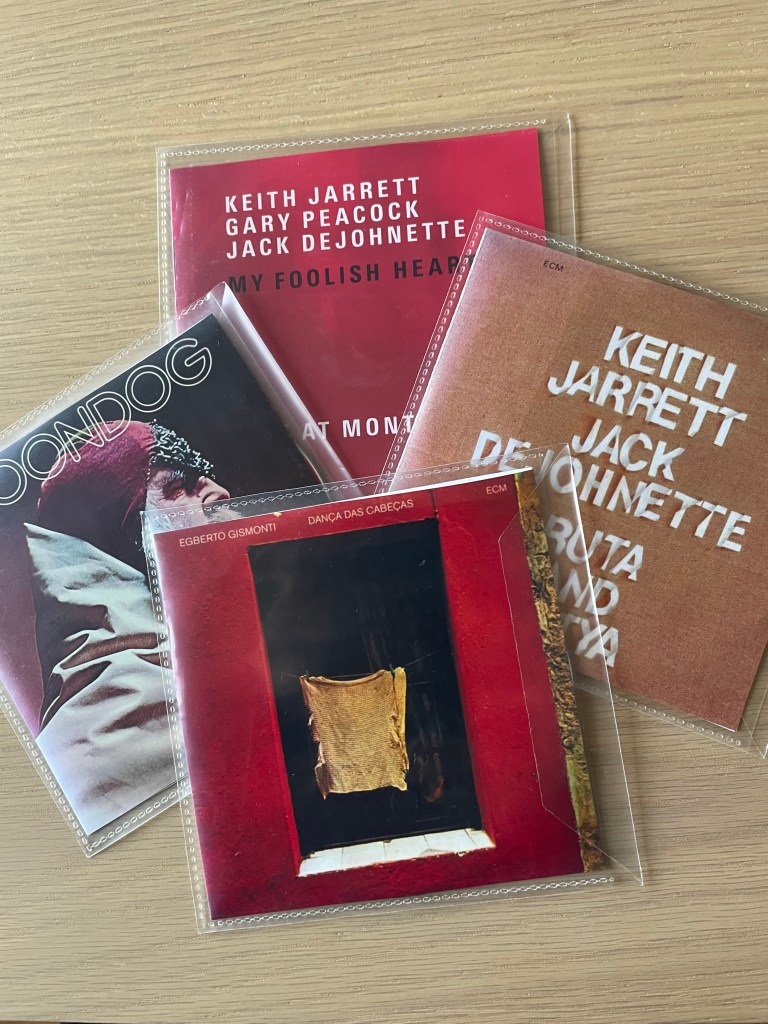
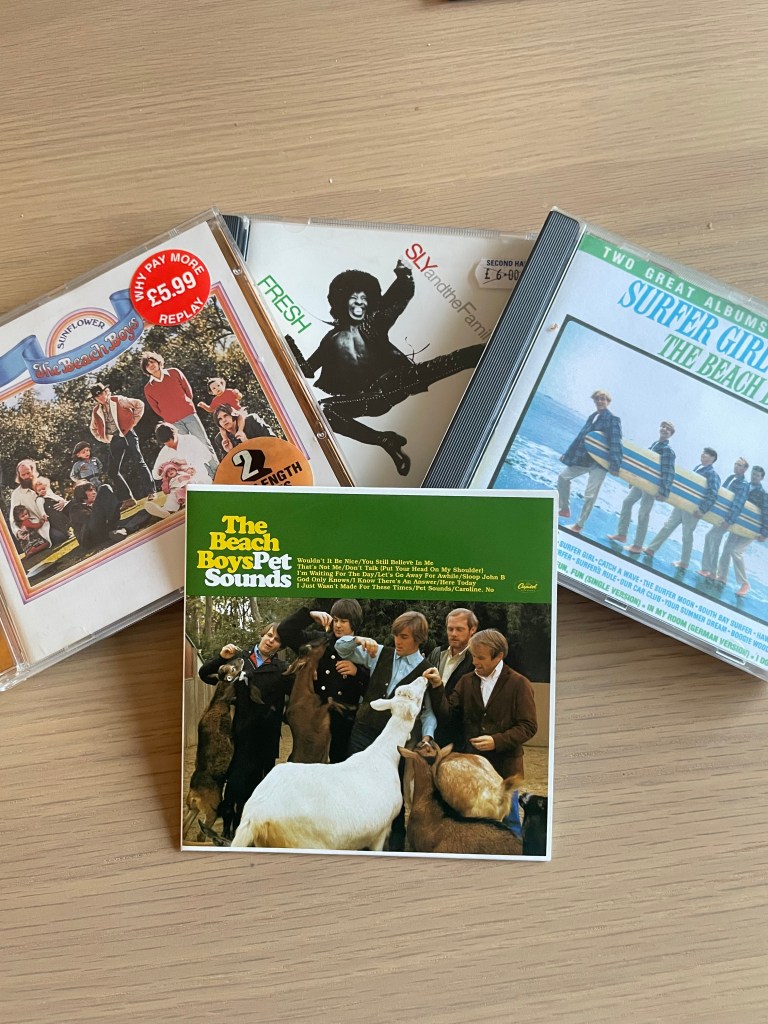
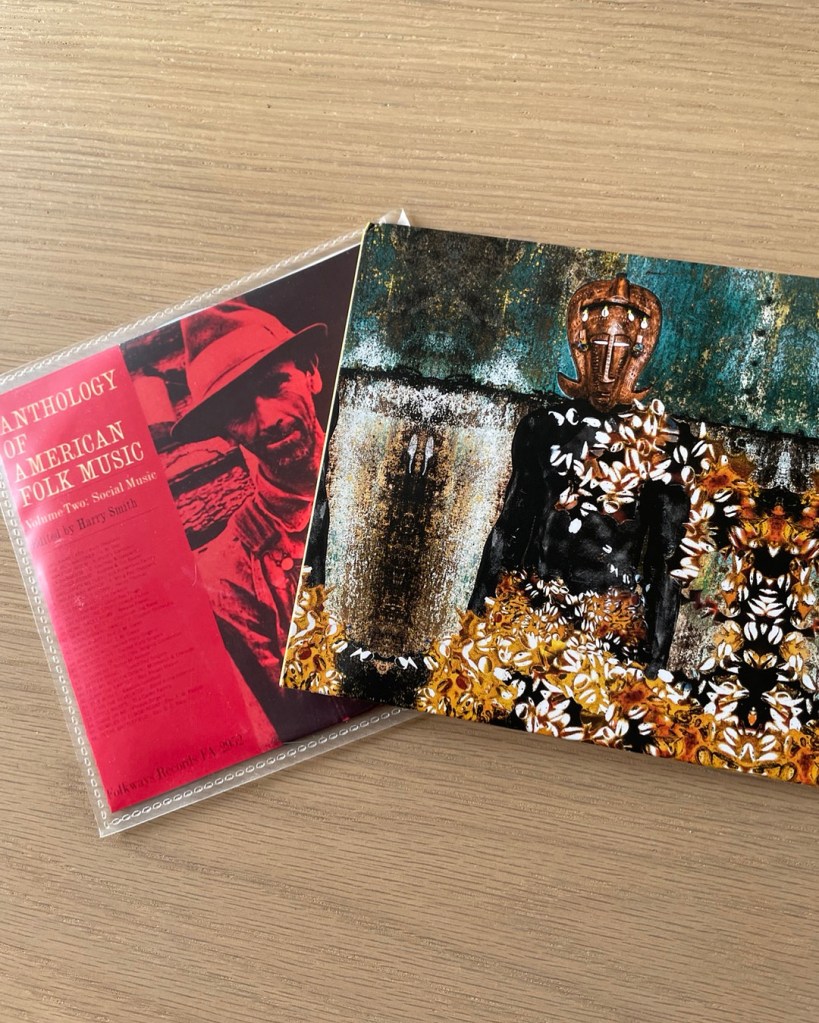
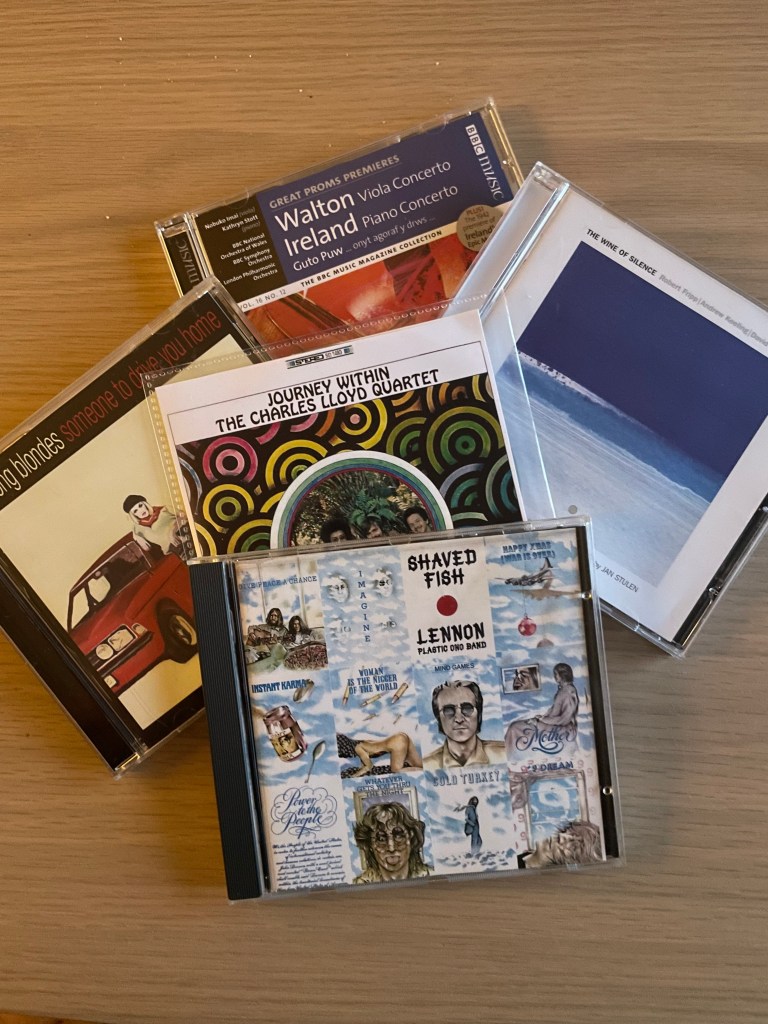
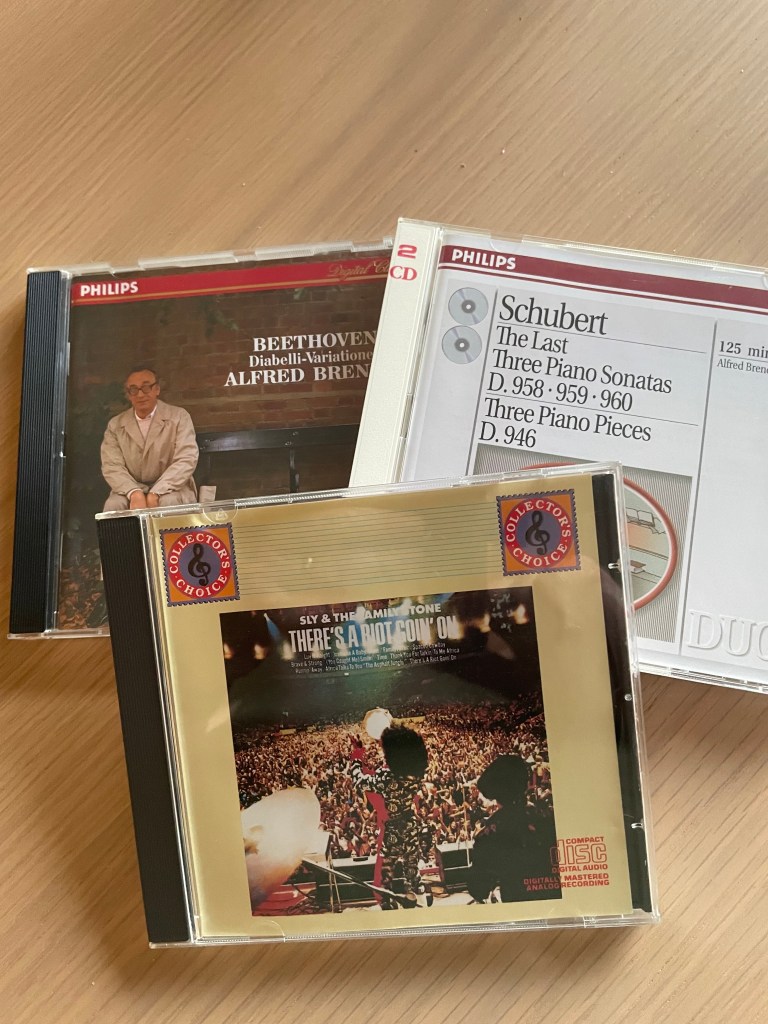
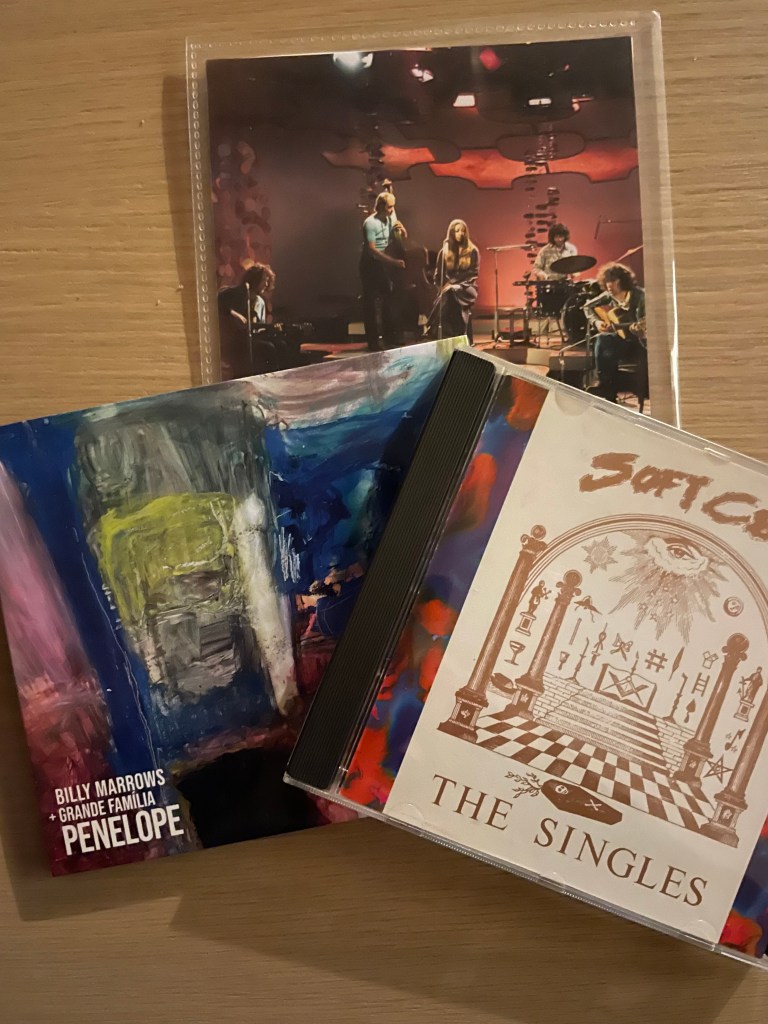
2025 On Screen – the Second Half
Posted by cathannabel in Film, Television on December 14, 2025
Film
None of the films below were seen at the cinema. This is not normal, and I need to do something about it. Apart from anything else, I should be getting more value from my Showroom membership than I have for the last six months! I like the whole experience of going to the cinema – it’s so easy to put on a film on Netflix or whatever and half-watch it whilst scrolling on the phone, pausing to go and make a coffee or take a phone call, etc. The ritual of cinema – putting one’s phone on silent and away in a bag for the duration, stocking up on snacks and drinks beforehand to last for the duration, and all of that – makes one focus on the film, in a way that helps when trying to gather one’s thoughts about it after the credits roll.
Nonetheless, there were some fine films on TV, including some that I’d intended to see at the cinema but missed. I only realised whilst preparing this blog how few of the films below were produced/directed by women. Only Autumn de Wilde, with her debut, Emma., Wendy Finerman, producer of The Devil Wears Prada, Mia Hanson Løve with One Fine Morning, and Celine Sciamma, collaborating writer on Paris 13th District. Because these are films I’ve watched because they were there, rather than films I’ve chosen to go out of the house and into town to see, I can’t draw too many conclusions about this batch, other than to say that I clearly have watched quite a lot of thrillers, and not a lot of comedy, which seems pretty typical. I think there were one or two films that I started and gave up on – I haven’t included these because I suspect there may have been a ‘me’ problem – mood, level of tiredness, that sort of thing – rather than it necessarily reflecting badly on the film.
5 September
Compelling and extremely tense account of the terrorist attack on the Israeli team at the Munich Olympics in 1972, through the eyes of the ABC news team on the spot, who were providing live coverage of the sport, and found themselves confronting instead the practical and ethical challenges of live coverage of an unfolding tragedy. It’s understated in a way that actually enhances the tension rather than dissipating it.
American Gangster
Denzil Washington is superb here. I’m not a Russell Crowe fan but he’s pretty good in this too – he has to be, to make us root for him rather than the bad guy who happens to be Denzil Washington.
Another Country
Beautiful – and I’m not just talking about the male beauty on display from Rupert Everett, Colin Firth and Cary Elwes. Ultimately though I wasn’t convinced by the bookend pieces with Everett as an older Bennett (in rather poor ageing prosthetics) being interviewed in Moscow about why he betrayed his country. We were supposed, I think, to see how the double life he realised he would have to lead as a gay man prepared him for the double life of espionage, but I don’t think this was developed enough to really work. I also find myself a little weary of posh boys – gay or straight – at posh schools.
The Ballad of Songbirds and Snakes
I was slightly underwhelmed by the book but rather enjoyed this. It’s a tad too long, and – this is a me problem – there are WAY too many snakes. I know the title announces it, and I remember the snakes from the book, but I much prefer not to actually see them… Rachel Zegler is great as Lucy Gray – there’s always a steeliness in her that belies her doe-eyed charm.
The Devil Wears Prada
Very enjoyable, even if it does its best to have its cake and eat it (not that eating cake is an appropriate metaphor given the food-phobic culture it portrays). It’s funny, and Meryl is awesome, suggesting depths and complexities without spelling everything out. As far as plausibility goes, I’m not qualified to comment, though the notion that Ann Hathaway’s Andy, a woman who prioritises comfort and wears sensible shoes, can learn not just to walk but to run in vertiginously high heels on that time frame seems to me improbable.
Echo Valley
A great cast make this highly enjoyable and genuinely tense but can’t quite paper over the plot holes. I found myself trying to work out the timings for what actually happened once we’d had the reveal, and I couldn’t quite make sense of it. It’s such a common failing in thrillers, to leave the revelations and resolutions to be dealt with in a mad rush at the end, perhaps hoping we will be swept along and not notice… Old fashioned whodunnits, the sort where the detective gathers everyone in the library to announce the guilty party, used to have a sort of coda where someone says, ‘but what I still don’t understand is’ (speaking for all of us, probably) and then the detective helpfully explains. I am happy for things to be left unexplained, for plot threads to be left dangling, for motivations not to be clear even as the credits roll, but I don’t like plots that seem to suggest that everything is resolved, without making absolutely sure that the resolution makes sense. NB this will be a recurring theme…

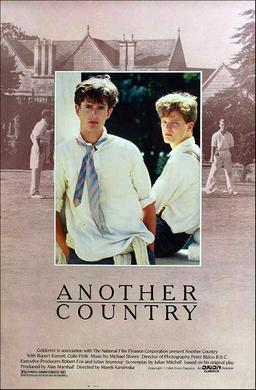
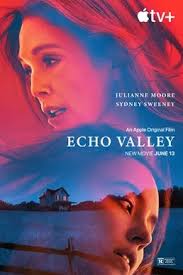

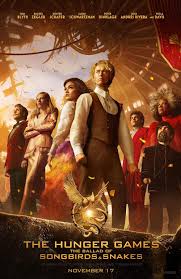

Emma.
Having recently seen the Paltrow version, I think I prefer this. It’s funnier, for one thing, Anya Taylor Joy is quirky and Johnny Flynn’s Knightley is rougher around the edges than some portrayals. As enjoyable as it is, I remain unconvinced, however, that we need any more Austen adaptations, unless someone is prepared to tackle the less popular ones (Mansfield Park or Northanger Abbey).
Enchanted April
Delightful – Josie Lawrence and Miranda Richardson lead as two not so happily married middle-class women who, entirely out of character, seize the chance to escape to a castle in Italy, where the place works a kind of magic on them, and the people who share it with them. That sounds a bit soppy and I suppose it is, but it’s also very funny, and very touching. By chance, I was watching Miranda Richardson in TV drama The Last Anniversary (see below) on the same day, and feel compelled to say that she is even more stunningly beautiful now than she was back in 1992. And the film has a place in my heart as it’s set and filmed in Portofino, where my daughter got engaged the summer before last. Maybe it is a magical place.
Frankenstein
Of course there have been many, probably too many, adaptations of Shelley’s novel, some of which bear only a passing and superficial resemblance to her narrative, let alone her philosophical concerns. I was never going to skip this one, given that it’s produced/directed/written etc by Guillermo del Toro, who was responsible for two of my favourite films, Pan’s Labyrinth and The Shape of Water. It’s so long since I read the book that I can’t swear to the film’s fidelity to the plot but it felt broadly faithful (though was the monster impervious to bullets in the original?). It’s visually fantastic, of course, gothic and melodramatic and (as the Guardian reviewer put it) ‘monstrously beautiful’. As is Jacob Elordi as the monster, to whom del Toro hands over the narrative part way through. Frankenstein’s contempt for his own creation – because it fails to live up to his impossible ideal – is the monstrous heart of the film, echoing Victor’s own rejection by his father, and driving the tragic outworking of the plot.
The Gangs of New York
This has many brilliant moments but I found it wearyingly long. DDL, in this as in There Will be Blood, seems to be hamming it up to the max. Having watched the documentary series Mr Scorsese, I do get (I think) something of what he was going for, the past that was still tangible on the streets where he grew up.
The Good Liar
Mirren and McKellen in a drama whose twists and turns aren’t impossible to guess (and if one consults the cast list in IMDb as I did, one of the major twists is substantially given away). But never mind all that, they are both splendid, as one would expect – it’s a kind of duel where we are supposed to think at first that they are very mismatched, but (as I hoped, being a fan of dramas where older women are shown to be canny and capable) all is not as it at first seems. It’s often very funny, but with an undercurrent of sadness.
King Richard
Will Smith’s excellent performance as Richard Williams, father to Serena and Venus, gives us room to wonder if he is an entirely reliable narrator, without leaning too much into that idea. He is both utterly unreasonable, and right in his assessment of how far his daughters could go, and of the obstacles that might be in their way.

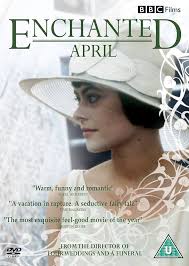
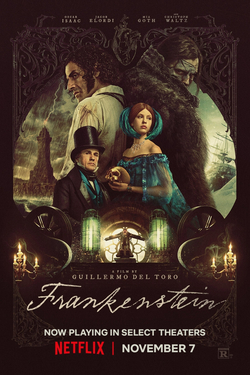



The Lost Bus
A gripping account of a true story from the 2018 Camp Fire disaster in California, when a driver doing the school run found himself trying to get 22 children and their teachers (the film only portrays one teacher as the other did not want to be included) to safety as the fires destroyed everything in their path. It’s directed by Paul Greengrass, notable for United 93, 22 July (about the 2011 Norway attacks) and Captain Phillips. The suspense here is perhaps lessened by the fact that we may well know that the bus got through, but nonetheless it is incredibly tense, and Matthew McConaughey and America Ferrera are great as the two adults trying to calm and reassure the kids in the face of their own terror, for themselves and for their loved ones.
A Man Called Otto
This could have been merely soppy – massively grumpy old curmudgeon has his miserable heart warmed by a lively young family who move in across the road – but the script and the performances give it much more than that, the heartbreak of loneliness, dark humour, and some genuinely moving moments. A lot of that is down to Hanks of course, this is the sort of thing he’s so very good at.
Maria
This can be seen as one of Pablo Lorrain’s trilogy of portraits of women on the edge: Jackie (Kennedy), Spencer (Diana) and now Maria Callas. We start near the end of her life, her voice has lost its control and power, and her ‘medication’ leads to hallucinations and confusion. We get flashbacks to her earlier life, both pre-fame and during her heyday as the diva of divas. Angelina Jolie is superb. I’m not qualified to speak of its accuracy – and I’m sure there was much more to Maria herself than the film could convey – but it’s a powerful and moving portrait.
Mr Burton
An old-fashioned sort of film, really. Performances are great – Toby Jones’s Mr B is melancholy but positive, easily wounded, and Richard to-be-Burton is bumptious and arrogant but also wounded. It doesn’t directly ask the question of whether Mr B had homosexual inclinations, but it shows how other people were ready to insinuate that to explain his motivation for taking Richard under his wing. For me, whether he was a closeted gay man or not, it seems clear (from the film and other sources) that if he was attracted, he was also scrupulous about not exploiting his influence or his proximity. Harry Lawtey gives us a flavour of Burton the star, and it’s fascinating to see that emerge, along with that extraordinarily rich voice.
Night Always Comes
One of those narratives where the protagonist is trapped due to bad decisions, which leave him/her with only bad choices (it reminded me of Martin Freeman’s TV drama, The Responder, for example). Vanessa Kirby is compelling, even whilst one wants to shout at her when she’s making the aforesaid bad decisions and getting herself deeper and deeper into the mire.
One Fine Morning
A rather fine study of a woman dealing with her father’s dementia (I wonder why that resonated with me…) and of what reviewer Monica Castillo called ‘a quiet sense of devastation’. Mia Hanson-Løve is skilled at this (I’ve seen a couple of her other films, Father of My Children, and Things to Come, both of which were excellent). Léa Seydoux is brilliant at conveying the pressure Sandra is under, as a widow with a young child and an increasingly dependent father, who knows she isn’t doing enough but can’t do more.
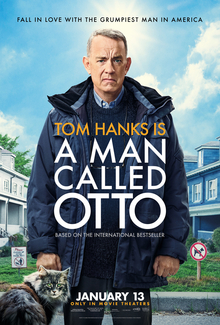



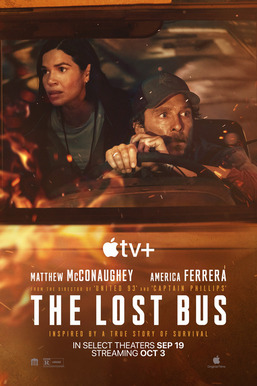
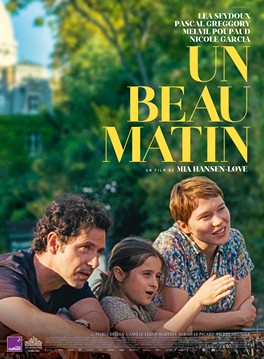
Our Town
I tracked this down on YouTube after reading Ann Patchett’s marvellous Tom Lake, which centres on performances of this play (see my Books blog). The version I saw was a TV film of a stage production, with Paul Newman as the Stage Manager. I thought at first it was going to be a bit too folksy American for my taste but then it got darker and deeper and by the end I was all in and weeping. It resonated with my thoughts about mortality since my husband died, and about how we go through our lives focusing on the big important days but don’t ever ‘realize life while [we] live it, every minute’. I won’t go on but the play now has a place in my heart.
Paris – 13th District
Jacques Audiard working with Céline Sciamma! Audiard directed one of my favourite contemporary French films, The Beat That My Heart Skipped, as well as A Prophet, and Sciamma is responsible for Girlhood, Petite Maman, and Portrait of a Lady on Fire (and Paris – 13th stars Noémie Herbert, who’s in that last film). It’s a funny, touching film, a lot less harrowing than the aforementioned Audiards or Sciammas, about young people connecting (sometimes through misunderstandings) and disconnecting.
Persuasion
My favourite Austen (see my books blog for comments on Mansfield Park, which I recently re-read). I loved Persuasion even as a teenager, when one might expect to be more drawn to some of her feistier heroines, but Anne Elliott moved me a great deal then, and even more so now. A lot depended, as in any film adaptation of a loved book, on the casting, and both Amanda Root and Ciaran Hinds were perfect. They are the still centre of the film, around whom people are gossiping, chattering, generally making themselves heard and seen, but who themselves say little (at least out loud). Once they have, quietly and unobtrusively, sorted out their future together, they walk out into Bath, where a circus is in town and people are cartwheeling and prancing around them, as they are oblivious to it all. It’s beautiful.
Rwanda
I really don’t know what to make of this, or why it was made. We have white Italian actors on stage playing the roles of people caught up in the Rwandan genocide and then segueing into scenes with Rwandan actors playing the same roles. The blurb in IMDb reads: ‘Close your eyes and try to imagine. A man, a woman and their families. The fastest and most systematic genocide in history. He is Hutu, she is Tutsi. He must kill. She must die. A fate similar to many others in that bloody spring. But this time there is a slight difference. When you open your eyes, you will be in their shoes and now the choice is yours. And yours alone’. None of which really gives us a convincing rationale for the way the story is framed: it creates confusion, and all that the use of white actors does, in my view, is to wrench us away from the real, tragic, horrifying events every time they appear.
Small Things Like These
Based on the Claire Keegan novel, like The Quiet Girl (from the book Foster), this is an understated, quiet film that gets under your skin and straight to your heart. Cillian Murphy is excellent, and the film does a remarkable job of conveying a sense of threat from what might seem an unlikely source. Directed by Tim Mielants, who also directed…
Steve
Cillian again, and again he is wonderful. This is a brilliant, downbeat, subtle film that very effectively conveys both the barely contained chaos and mayhem of the troubled boys and the commitment and love mingled with despair and boiling frustration of their teachers. The establishment itself is under threat as a waste of resources, and as much as the boys are full of swagger and aggression we see and feel how lost they will be if they lose this haven. I was unequivocally rooting for Steve and his colleagues, and for their charges, which made the film both extremely tense – towards the end especially, when I was full of dread – and very moving.
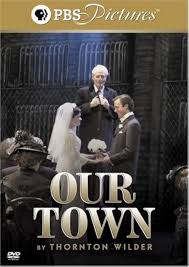



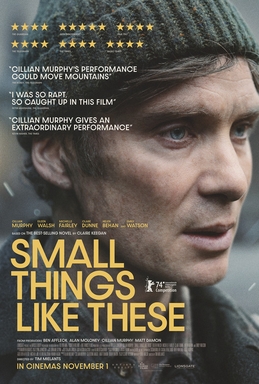
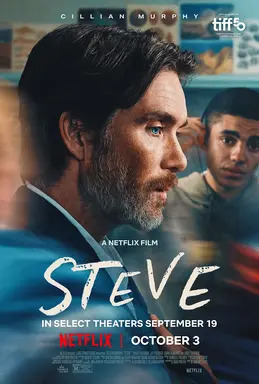
The Straight Story
This reminded me rather of Perfect Days. A synopsis of the plot would make it sound rather dull, but it is completely engrossing and very moving; subtly so, it doesn’t present itself as ‘heartwarming’ although my heart did feel definitely warmed, nor as tearjerking, though I did have a bit of a weep. Richard Farnsworth is wonderful in the lead role. I have to confess I’m not familiar with much of David Lynch’s oeuvre – I liked The Elephant Man and Wild at Heart, was not a fan of his Dune, and switched off Blue Velvet quite early on – but this one is near perfect.
Surge
Ben Whishaw is outstanding here as a man with mental health problems whose life spirals out of control as he tries to free himself of the constraints of job and family. It’s a very uncomfortable watch precisely because Whishaw makes us care about this man, so one spends a lot of time thinking, ‘Oh no, please don’t do that, please…’ and then watching as he does whatever it is that is bound to make matters infinitely worse. It’s deeply compassionate and rather moving.
Tar
This is brilliant. A film that treats its audience as adults who can manage to hold more than one idea in their head at the same time, and can engage with theoretical, intellectual discussions about music and its performance, with a compelling performance from Cate Blanchett in the title role.
The Thursday Murder Club
I haven’t read the book(s) so can only judge the film as it stands. It was mildly enjoyable, mildly diverting. Some of the scenarios were too ludicrous to be really funny, and some of the characters were a bit hard to take as representations of people only a little older than me (Celia Imrie’s wardrobe seemed to have been purloined from my Gran – born 1901 – rather than what a well-heeled woman in her mid-seventies in 2025 would be likely to wear). Daniel Mays seemed here to be reprising his character as the bumbling copper from The Magpie/Moonflower Murders. It didn’t make me want to read the books, but it passed a couple of hours quite well.
Unstoppable
Classic set up – a driverless train is hurtling across the countryside, and must be stopped before it reaches a residential area – delivered with conviction and panache by Denzil Washington and Chris Pine as the maverick pair who have to stop the unstoppable train. It’s actually a true story, remarkably.
Vera Drake
Imelda Staunton is outstanding in this. She cares for and about people, in practical ways, and providing illegal abortions for girls ‘in trouble’ is simply an extension of that. She never uses the A word, any more than she speaks of what got these girls and women into ‘the family way’. Just tells them to pop their knickers off and that ‘it will all come away’ when they go to the loo. Of course this is a gross over-simplification, as she finds out when one of her girls is critically ill after the procedure. She feels shame at her exposure but holds on to her belief that she is just helping out. It’s a corrective to the image of the back-street abortionist as exploiting these girls for financial gain and with no concern for the consequences to them, even if we wince at Vera’s haphazard approach to clinical hygiene.
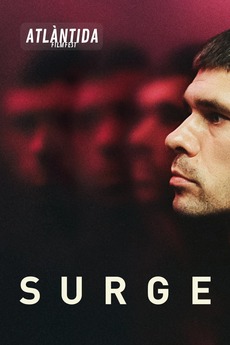





TV
As usual there were a lot of murders. More than are listed here, since I haven’t reviewed the latest outings for Shetland, Trigger Point, Beck, The Gone, Karen Pirie or the Sommerdahl Murders, though all were watched and enjoyed, as were the latest series of Slow Horses and The Diplomat. There were a fair few thrillers that I gave up on or even watched through to the end but couldn’t think of anything worth saying about them other than to reiterate the kind of complaints I make about several better offerings below.
Because of the general murderiness, I find it’s essential to have a few things that are safe, that you know aren’t going to let anything too horrific happen, and that in general allow redemption for even the least likeable characters. This half-year that role was played by the latest season of All Creatures Great & Small, Leonard & Hungry Paul, and A Man on the Inside (I haven’t reviewed that last, because it’s season 2 and essentially the same sitch, just transplanted to a college rather than a retirement home, but I enjoyed it).
Blue Lights is my top cop drama, and Paradise the top thriller. Other standouts this half-year were The Line (Un Village Francais) and Stranger Things‘ final season.
I’ve tried not to do spoilers but you proceed at your own risk.
Drama
All Creatures Great and Small
I didn’t originally intend to review this, because it’s an ongoing series (and a remake), but I find myself referencing it as the epitome of nice telly and, particularly after the finale of this latest season, it is both that and more. The central three characters are much as they were in the 1970s series, although Siegfried is given more of a back story to explain his eccentricities, and Tristan is given more depth, particularly in the latest episodes where he finally opens up about some of what happened to him on active service. The female characters now actually have characters, which is a good thing. Mrs Hall in particular has gone from being a stock character – stout, sensible housekeeper – to someone much more interesting, much deeper. And as I mention above, whilst – as far as I recall – in the 1970s version WW2 was a kind of hiatus, here it deeply affects everyone, whether they are mothers/wives waiting for news which, in some cases, when it comes is desperately sad, or the men who volunteer and come back different. It’s nice telly in that we can trust that nothing too horrific is going to happen to the people of Darrowby, no serial killer is going to stalk those lanes and moors, the body count is going to remain low, with most of those who die doing so at the appointed time in their beds. But it’s more than nice in that these people have depth and complexity and so we invest in them, and what happens to them moves us more. It’s beautifully acted, of course, most particularly Anna Madeley’s Mrs Hall who is responsible for a large proportion of the moments that make me weepy, Sam West’s Siegfried, and Patricia Hodge’s Mrs Pumphrey (she had a hard act to follow in Diana Rigg but she’s given the character – who could be a bit of a joke – greater depth).
The Assassin
There are a number of actors whose presence in a series always inclines me to watch (and a few whose presence has the opposite effect, but we won’t dwell). Keeley Hawes is one in the former category, ever since Life on Mars and Line on Duty proved her versatility, and I thoroughly enjoyed this, despite its startlingly high body and gore count. The humour is, obviously, very dark, but it’s well done, and Hawes makes her ‘retired contract killer being forced to brush up her murdering skills’ human, and makes us root for her (and even her rather annoying son).
Blue Lights
This started off extremely well, and now with the third season is even better. What marks it out initially from the mass of police dramas is the Belfast setting, where organised crime and dissident paramilitaries have merged into an ever-present threat to the peelers. But what makes it outstanding is the quality of the writing and the performances – there are a number of incredibly high-tension scenes in this season, where the tension comes not only from the situation but from the fact that we’re so invested in the characters. Excellent, excellent stuff.
Bookish
So-called cosy crime series, set in 1946. I can’t be doing with too much cosiness – if we’re talking about murder, there has to be some sense of threat, of evil, of tragedy. Bookish does provide those things, along with humour and heart, and this first season ended with a promise of more.
Borderline
On the face of it, just yet another mismatched cop duo, but which has added interest due to the fact that these cops work either side of the border between the Republic of Ireland and Northern Ireland, and have to work together when Irish bodies turn up in the North, or vice versa. The Garda cop is rather tiresomely obnoxious, though her back story does provide some explanation for this. The Northern Irish cop has his own quirks – recovering alcoholic, so common in these narratives that it hardly counts as a quirk, but also a religious faith that is shown as being profound and central to his life, which is much more unusual.
Classified
Dizzying twists and turns in this French-Canadian thriller about a mole in the Canadian secret services, and the tensions between them and their US counterparts. I’m not sure that I quite grasped it all but that’s down to me occasionally losing concentration and missing info in the subtitles, I suspect, rather than to the plot/script.
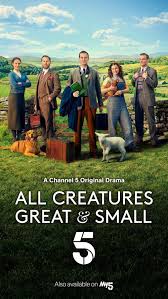
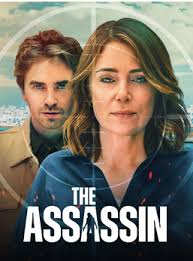




Coldwater
Way, way over the top, but sort of fun. Seeing Andrew Lincoln, who never flinched in the face of zombie hordes, being a bit of a wuss, is amusing. Eve Myles does a good job of being a bit dodgy here, as she does in The Guest (see below) but Ewan Bremner’s Tommy is so obviously bonkers that it’s a bit hard to credit no one has sussed him out. The ending leaves a number of threads loose, but I kind of hope they don’t feel the need for another series.
Cooper & Fry
Adapted from Stephen Booth’s Peak District set series, many of which I’ve read. I enjoyed the books, but I don’t remember quite such a heavy reliance on the folklore/superstitions of the area. In the first two episodes alone we had a Screaming Skull, a Hand of Glory, a Plague Stone and a Black Dog, and a predictable tension between the city cop and the locals about how seriously to take these things. Otherwise I quite enjoyed the series, though it doesn’t really stand out from the crowd.
Down Cemetery Road
An adaptation of the first in Mick Herron’s other series (Slow Horses continues to be brilliant both in book and telly form), with Zoe Boehm (played – wonderfully – by Emma Thompson) as his lead detective and playing alongside the always excellent Ruth Wilson this is definitely a winner. The dialogue crackles with wit and the tension and stakes are nailbitingly high.
Fatal Crossing
Danish cold crime – a cut above the average. It leaves questions still hanging in the air, about the why, if not the who.
The Forsytes/The Forsyte Saga
I have history with the Forsytes. I watched the 1967 series – it must have been the Sunday night repeat which launched in September ’68, when I was 11. I was completely spellbound. I have no doubt if I rewatched it I would have issues, but it was truly powerful television, with some scenes that I can still bring to mind today. I watched the new Channel 5 adaptation with some trepidation, and rising annoyance at completely unnecessary plot changes, which radically alter the dynamics between characters, and at some of the casting. Soames, Young Jolyon and Bosinney could be members of a boy band – all are blandly handsome but characterless. We are treated to scenes of Young Jolyon shirtless in the gym, abs glistening, floppy hair artfully tousled. Even Soames has abs and biceps for heaven’s sake, as we saw in the scene of his wedding night with Irene.
I found the 2002 series on Netflix and rewatched that, which was much more satisfying. Damien Lewis is outstanding as Soames and Gina McKee conveys Irene’s self-contained, cool distance very well (unlike Millie Gibson’s giggly girl – not blaming Gibson, it’s the script & direction that’s the problem). It stays pretty close to the books in terms of plot (with some inevitable streamlining and trimming of peripheral characters).
There’s really no comparison between the adaptations, but I daresay I will continue to hate-watch the C5 version just to see how they deal with some of the plot developments, even if it irritates me enormously. If this was called, I don’t know, The Bridgertons or The Downtons, it would be soapy fun, but they are laying claim to John Galsworthy’s characters and if I were JG I’d be figuring out how to haunt everyone who dreamt up this mess.
Frauds
Suranne Jones and Jodie Whitaker are superb as two ex-con artists who team up for ‘one last job’. It’s funny and touching, and I would watch these two in anything.
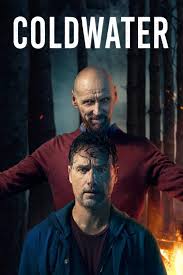



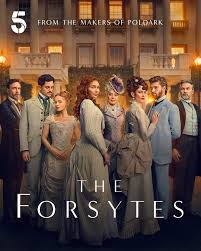

The Gold
I’d skipped this when Series 1 aired a while back, but having been told very firmly by friends whose judgement I trust that it deserved to be watched, I then binged it and had not a moment’s regret. Splendid performances, very well written, an admirable avoidance of clichés and stereotypes. I very much liked Hugh Bonneville’s Boyce, who managed to convey both a downbeat stoicism and an absolute driving commitment to solve the case, but Tom Cullen’s portrayal of John Palmer is outstanding.
The Guest
This goes from 0 to 90 in the space of one episode – improbabilities pile up and really, the only way to approach this is just to suspend disbelief and go with it. I don’t mind this over the top approach as long as it’s well done, even if it is silly.
The Hack
Fascinating, if perhaps a little longer than it needed to be. There are two strands, which come together in the later episodes – David Tennant as the journalist who investigated and uncovered the phone hacking scandal at the News of the World, and Robert Carlyle as the detective investigating the murder of Daniel Webster. It generates much righteous indignation, but inevitably the outcome is frustrating – the News of the World might be history but there is no shortage of disgraceful journalism these days, and the Daniel Webster case remains unsolved.
Hostage
Here my fave Suranne Jones is PM, wrestling with various domestic and international crises, one of which results in the kidnapping of her husband in French Guiana. Julie Delpy is great as her French opposite number. Entertainingly balances suspense and political intrigue.
I Fought the Law
The true story of Ann Ming, who ‘fought the law’ to get justice for her murdered daughter Julie, with Sheridan Smith (in a classic Sheridan Smith performance) as Ann. Obviously the heart of the drama is the personal tragedy and trauma of the murder and its aftermath (Ann Ming was the one to discover her daughter’s body, after the police had failed to do so despite allegedly intensive searches of the house), but there’s also a fascinating legal thread about the concept of double jeopardy, which Ming was instrumental in overturning.
Insomnia
This was quite eerie and disturbing, but it got less plausible as it went on and the final episode packed way too much in at the expense of any deeper examination of character or motive. We were left, ultimately, with the only explanation being the least plausible one, and with the impact of the events particularly in that final episode being seemingly glossed over. And the final, final shot, actually made a nonsense of that implausible explanation (I’m trying very hard not to spoilerise here). The performances were good though, from Vicky McClure, Tom Cullen (see above re The Gold), Leanne Best and Lyndsey Marshal.




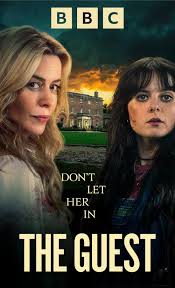
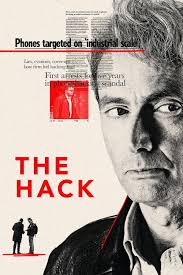
The Invisibles
I saw this described as a French Slow Horses, which it isn’t. It’s about a unit that investigates unidentified corpses, and it’s enjoyable, if a bit formulaic.
The Last Anniversary
There were good things about this, but many of them were squandered in a rushed ending where the mystery was supposedly solved but in a way that strained credulity beyond breaking point (see Insomnia, above), and then strained credulity again with a cheesy resolution where everyone was somehow absolutely fine all of a sudden and everything was nice. It was fun along the way, and it was lovely to see Miranda Richardson, and also the brilliant Danielle MacDonald (loved her in The Tourist).
Leonard & Hungry Paul
I was recommended to watch this as an example of gentle TV and I’m glad I did. I watch a lot of murdery TV, and a lot of heavy documentaries, and I need to mix in a bit of TV that might warm rather than chill my heart, that’s funny and touching and, I suppose, nice. All Creatures (the current version) is usually my go-to in this category (see above), but it’s good to have some other sources of niceness. It’s not enough just to be nice, of course, for it to be worth watching the writing has to be good, the characters have to be well-written and well-played, and there has to be some depth in there, some emotional heft. Leonard & Hungry Paul ticked all those boxes.
The Line
This is Un Village Francais, which I’d heard about but not found until v recently, thanks to the change of title. The line referred to is the demarcation line between the Occupied and Unoccupied zones, and the complicated nature of that demarcation (the Vichy government, enthusiastic collaborators with the Nazis, were in charge in the unoccupied zone so it wasn’t a haven of freedom or democracy) is portrayed very effectively. That’s the strength of this series. Because it takes a soap opera format, our core characters over seven seasons encounter all aspects of the Occupation, and how they cope with it – try to survive it – is portrayed in a subtle and nuanced way. Very few collaborate out of conviction, most out of expediency. Almost all have compromised, and so people we have admired and respected over six seasons may be on trial in the seventh. I have to admit that the seventh season was problematic, not because of the treatment of the complexities of the aftermath of the war, but because some storylines were over-extended whilst others were dealt with rather brusquely, and, most of all, the frequent use of sequences where one of the characters not only ‘sees’ someone who is dead, but has a conversation with them. Very tiresome. But a small gripe in the scheme of things. I’m not a historian but I have read a great deal about the Occupation of France and found no inaccuracies – even where an incident seemed initially improbable, on investigation it proved to have been very accurately portrayed.
The Miss Marple Mysteries
BBC4 very kindly reshowed all the Joan Hickson Marples, and I thoroughly enjoyed them all. She is the definitive Miss Marple, those eyes are piercing rather than twinkly and when one character describes her as ‘a cobra in a twin set’ you know exactly what he means. When she has the perp in her sights she deals with them with cold contempt, and anger on behalf of the victims of the crime. I always found Poirot a bit irritating, but Hickson’s Marples are very satisfying classic mysteries.
Mix Tape
An absolute delight. The bits filmed in Sheffield were a lot of fun, and the idea of a romance told through songs recorded on a cassette tape is poignant and charming. Excellent script and performances. I read the book and was very interested to see the changes to the plot – I can’t say any more without spoilers for both TV series and book…





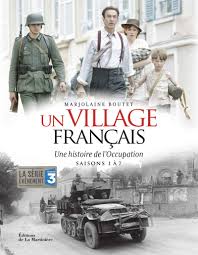
Outrageous
The Mitford sisters are endlessly fascinating. This is based on the collective biography by Mary Lowell, which, to my mind, goes rather gently on the fascism, perhaps wanting to balance it out with Jessica M’s hardline communism. The TV series only gets us to 1936 so I hope there will be another series at least to take us through the war years and beyond, and I will have to see in that case how that moral balancing act is handled once we get to the nub of what Nazism and Stalinism are about.
Paradise
Absolutely superb. Sterling K Brown is totally compelling in the lead, and the plot manages to twist and turn without sacrificing the integrity of narrative or character. I’m saying nothing more – it’s brilliant and I would highly recommend it to anyone who likes a good thriller.
Prisoner 951
This dramatisation of the events following Nazanin Zaghari-Ratcliffe’s abduction as she tried to return to the UK after visiting family in Iran is compelling and maddening. It certainly didn’t leave me with any positive impressions of the FO or the succession of Foreign Secretaries who assured Richard Ratcliffe that they were doing everything they possibly could, whilst being unable to identify anything they actually had done. I had no positive views of Boris Johnson anyway, and his remark that Nazanin was in Iran ‘training journalists’ was a bit of typical Johnson carelessness – he must have known that she was there on holiday to see her parents and that this entirely incorrect statement could be used against her (as it was).
The Ridge
A NZ/British murder mystery which doesn’t go where one expects it to go, so it keeps the viewer on their toes. Lauren Lyle (seen recently as Karen Pirie) is a brilliant protagonist – there’s not a great deal I can say without risking spoiling things for you, but it was a cracker.
Scrublands: Silver
I haven’t seen the first series, but from the allusions made in this, it seems that Mandalay, the rather gloriously named partner of the journalist hero, has an unfortunate knack to find herself in the midst of bloody mayhem. This is well written, and it was a compelling drama, albeit with the occasional well-worn crime fiction trope popping up.
The Serpent Queen
Dialogue totally contemporary – fine by me, those prithees can get a bit tiresome, but it walks a fine line, if the dialogue suggests ideas/attitudes that would not have occurred or been understood in 16th century France/Italy. I think it gets away with it, as it does with the asides to camera, allowing Catherine de Medici to commentate on the action. She’s a fascinating figure, historically and as portrayed here – by Liv Hill as a young woman and then by the always magnificent and compelling Samantha Morton in later life. It’s been compared to The Great (another Catherine, this time the Russian Empress), but I never saw that so can’t judge whether this is, in comparison, not Great but just good, as some reviews suggested. I am enjoying it – I don’t know this period of French history well, but have encountered bits of it in various historical novels that I devoured as a teenager and more recently in Dumas’ La Reine Margot and the brilliant Patrice Chereau film of that book.
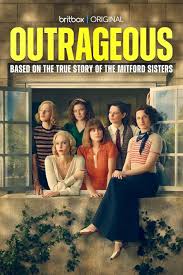
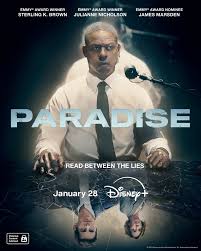


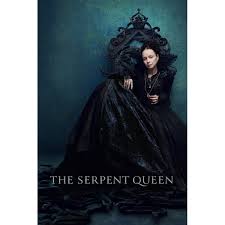

Shooting the Past/Perfect Strangers
BBC4 has been re-showing some of the best TV dramas from the archives, and these two from Stephen Poliakoff were fascinating. I’ve linked them not just because the writer (and some cast members) are in common but because of the theme of photography and memory which is central to both. Beautiful writing, superb performances.
Smoke
Lord, this is dark. I thought I knew what I was in for, but then it took a rather violent swerve and nothing was as I’d expected. Grim and dark and, whilst very well done, requiring a certain robustness of mood to be able to deal with it all.
Stranger Things
The last ever series, and I both don’t want it to end and feel that it’s right that it should. At the time of writing, I will still have the Christmas Day batch of episodes and the final final episode to watch, so I may add a note to next year’s first screen review blog about how they brought the series to a close, but meantime, it is as brilliant as ever, intense, genuinely scary, funny and clever. I cannot understand why M and I didn’t watch it, since our shared love of Buffy and of Stephen King’s opus makes it so very much our kind of thing. But we didn’t, and so I have watched it on my own, constantly wanting to turn to him and comment on some aspect of the plot. I’ve loved every minute of it, anyway.
Trespasses
A love story set during the Troubles between a Protestant barrister and a Catholic school-teacher was never going to be all hearts and flowers – it is gripping and moving, with superb performances from the two leads. Tom Cullen is the barrister – and he makes full use of his slightly rakish charm whilst conveying his deeply held convictions about justice. Lola Pettigrew is the teacher, fresh from portraying Dolours Price in Say Nothing. Excellent supporting performances too from Gillian Anderson and Martin McCann (Blue Lights).
The War Between the Land and the Sea
Given that Doctor Who is in something of a limbo at the moment, with the collapse of the Disney deal, the abrupt departure of Ncuti Gatwa and the currently puzzling re-appearance of Billie Piper, it’s good to have this Whoverse drama, with UNIT and what we used to call Sea Devils, and Russell Tovey as an everyman admin person who finds himself suddenly in a key role in the titular war.


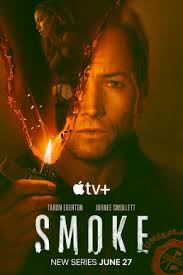

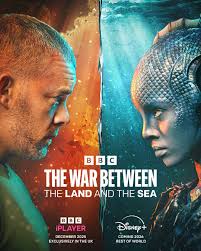
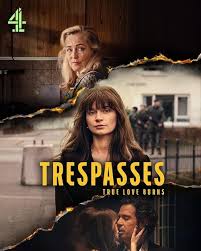
Documentary
The Beatles Anthology
We saw this series when it was first released in the ’90s, but it’s long enough ago that some bits of it don’t seem in the least familiar, even if other clips are very much so. It’s a joy to hear the songs – I don’t play them anywhere near as often as they deserve. The final, extra episode felt very much tacked on though. All it really offers is the insight into the process of recording the two ‘new’ Beatles songs based on John’s home demos. But that doesn’t take away from the series overall the freshness of hearing the story told only through clips, songs and their own words (plus those of George Martin, Derek Taylor and Neil Aspinall), giving context to the songs. And it seemed particularly apt to be seeing and hearing John (the Beatle I always loved best) on and around the 45th anniversary of his death.
Becoming Led Zeppelin
As the title suggests, this covers the early careers of Plant, Bonham, Jones & Page, and the early years of the band. Very interesting, even if I’m not a massive Zep fan, and find their live performances a bit samey… The focus is, refreshingly, on the music rather than the misdemeanours of the band members (on the rock’n’roll, rather than the drugs’n’sex).
Copa 71
A lot of the documentaries I watch are a bit on the grim side. This one is a joy. It tells the story of the Women’s World Cup competition in 1971 in Mexico, and just to discover that that actually happened is wonderful. It was against the odds, football’s international leaders were not prepared to acknowledge women’s football at all, but somehow it happened, and lots of the players are still around to tell us what it meant to them. Of course, women’s football has now established itself firmly, with the Lionesses being cheered as ‘Engerland’ whenever they’re in international competition, in a way that I wouldn’t have envisaged even ten or so years ago. It’s brilliant, and I wish that those passionate footballers back in ’71 had been able to continue playing at national and international level, but they’re remembered and honoured for their determination in the face of male obduracy and idiocy.
The Death of Yugoslavia
The history of the countries which once formed Yugoslavia is about as complex and twisty as European history gets. I’d only the vaguest idea – I’m currently reading Rebecca West’s diaries of her own travels in the region just before WWII, and I feel I need a flow chart or a spreadsheet or something to keep hold of it all. What happened when Yugoslavia started to implode was all too predictable in light of that history, though one might have hoped it would be less brutal and bloody than it was. Some of the story told in The Death of Yugoslavia is horrifying, none of it is optimistic.
Educating Yorkshire
I never saw the series 10 years ago (though I have of course seen the moment when a boy who’d struggled with a stutter manages to recite a poem). The inspirational teacher who worked with that lad is now the head teacher, with a school motto of ‘Be nice. Work hard’ and the series conveys very well both the chaos and idiocy and charm of the kids and the determination of the staff to give them the best chance they can. Lots of very funny moments and lots too that is moving and inspiring.
Empire
Another exemplary David Olusoga documentary history series, this one covering the story of the British Empire, from its beginnings with the establishment of the East India Company to its gradual relinquishing of former colonies after WW2. Some of the history was familiar, other bits much less so. As always, it’s compellingly presented and thoroughly researched, and Olusoga isn’t afraid to get personal, or to explore the personal stories of interviewees. Of course the usual voices have been raised to say that he’s only showing the bad bits of our imperial history but this series, like Sathnam Sangera’s books on empire, shows beyond doubt how the very concept of empire led inexorably to injustice and exploitation.






Hurricane Katrina: Race against Time/Katrina: Come Hell and High Water
Two documentary series for the 20th anniversary of the disastrous failure of flood defences and emergency management in New Orleans when Katrina hit. They cover similar ground and interview some of the same people, with Spike Lee’s Come Hell… spending a bit more time looking at what happened to some of the survivors in the years after Katrina, including looking at the way in which high profile initiatives to rebuild homes in the predominantly poor, black areas of the city failed to deliver. Both series feature my hero, General Russel Honoré, who is seen tearing into the National Guard for pointing their guns at the people who have fled the rising waters, and whose blunt and outspoken leadership shifted the focus back to the humanitarian needs of the population rather than the largely false narrative of lawlessness and violence. What chills the blood in both of these series is the unmistakable, unapologetic racism of those who created that false narrative – the example is given of two news reports of people getting essential supplies from abandoned shops, described in one case neutrally and in the other as ‘looting’ – no prizes for guessing how black and white survivors were respectively characterised. And then we see a group of white vigilantes, gleefully describing their patrols to keep black survivors out of their neighbourhood, by lethal force…
Mr Scorsese
A fascinating three-part biography of Scorsese, from early days in the mean streets of New York to global success in the movies. As with Spielberg (who is one of the big names interviewed here), we can see the obsession with film start to take hold during his teenage years and it has never lessened that hold on him, at considerable cost to his health and his relationships. And even at this late stage in his career, Scorsese is still mining those early years and their gangsters and hoodlums, corruption and violence.
Shifty
Lucy Mangan describes Adam Curtis’s five-part series of films as a ‘purely UK-focused dissection of recent history, built around the idea that the growing atomisation of society has ushered in an age in which the concept of a shared reality on which we can all depend has dissolved – and with it any hope of a functioning democracy’. It takes us from 1979 to the end of the century and New Labour, via a dizzying kaleidoscope of clips and captions. I think it demands a rewatch.


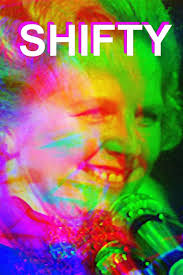
2025 Reading: The Second Half
Posted by cathannabel in Literature on December 3, 2025
Fiction
The usual caveats. I haven’t included absolutely everything I read – if something was mediocre to bad, I wouldn’t bother reviewing it unless that in itself was newsworthy, e.g. it’s by someone who I know to be capable of being much better than that. Crime and thrillers accounts for the largest cluster amongst my fiction reading, which is usually the case. I generally don’t review crime novels in ongoing series, unless there is some particular significance to this book. So honourable mention to Ian Rankin’s Midnight and Blue (this may or may not prove to be the last Rebus, either way it is a worthy addition to the series), Mick Herron’s The Last Voice You’ll Hear (the follow-up to Down Cemetery Road, which I review below), and Tana French’s The Hunter (follow-up to The Searcher). And of course, I do try to avoid spoilers, but read on at your own risk.
Jane Austen – Mansfield Park/Lady Susan/The Watsons/Sanditon
I studied Mansfield Park for A level, which is probably why I haven’t re-read it until now. I don’t think it will ever replace Persuasion as my favourite Austen, but there’s so much subtlety and depth in this – more than I appreciated at the time. I did defend Fanny Price vigorously though, in the exam, against Kingsley Amis who had described her as ‘a monster of complacency and pride’, who ‘under a cloak of cringing self-abasement, dominates and gives meaning to the novel’. There’s a difficulty in presenting characters who lack agency, who are largely passive and yet do pass moral judgements on others, and Amis is not alone in his view, though he is one of the most extreme. This same issue is, I’m sure, why Lynn Shepard in Murder at Mansfield Park, chose to upend the moral certainties of Austen’s novel, and clearly enjoyed doing so. I read one or two academic articles about MP and the Fanny Price issue, and nearly got tempted into writing a dissertation rather than a brief review for this blog… With commendable restraint, I will simply say that I do see the problem, but I think the book repays repeated and close reading, as much as any of Austen’s more popular novels, and there is rich enjoyment to be had.
The unfinished novels Lady Susan, The Watsons and Sanditon are tantalising. The first gives us a thoroughly reprehensible protagonist, but her adventures are cut short with a paragraph showing how she got her comeuppance, which rather spoils the fun. The Watsons I found hard to like – it felt as though Austen wasn’t really sure what she was doing with those characters, and in fact she did abandon the project. Sanditon was abandoned only because of Austen’s ill health and is the most interesting – I would have loved to see how she developed the character of Miss Lambe, a 17-year-old ‘half-mulatto’ Antiguan heiress.
Elspeth Barker – O Caledonia
What an extraordinary novel! Gothic, darkly funny, odd, with a protagonist who is all of those things and primarily in permanent and obstinate rebellion against pretty much everyone around her, which leads to her murder (this is not a spoiler – we start with her corpse and then wind back). I will leave Maggie O’Farrell’s article to tell you more about the book and its author, because she tells it so brilliantly.
Belinda Bauer – The Impossible Thing
Bauer’s novels are always quirky and apparently she initially resisted being pigeonholed as ‘crime’ but subsequently concluded that actually one can do almost anything within that genre, as she has amply demonstrated. This narrative alternates two timelines, the present and Yorkshire in the 1920s, the unifying element being a rare guillemot egg. She brings back Patrick Fort, the protagonist of Rubbernecker, who provides a neurodivergent perspective on events and characters.
Marie Benedict & Victoria Christopher Murray – The Personal Librarian
I’ve long been fascinated by the phenomenon of ‘passing’, which I recall coming across in the context of apartheid-era South Africa, where it was highly advantageous to be able to pass as ‘coloured’ rather than black. In relation to the US, I read Nella Larsen’s Passing, and a much more recent treatment, Brit Bennet’s The Vanishing Half. The Personal Librarian is the fascinating true story of Belle da Costa Greene, who became the personal librarian to J P Morgan, playing a key role in expanding his collection of art and rare books. As a young woman in that world she would have been remarkable enough, but in fact she was a light-skinned African American, passing for white (her olive skin was explained by a fictional Portuguese grandmother). It’s quite extraordinary, and the book explores the implications of living this way, for her family, for how she deals with encounters with other black people, for how she has to be constantly alert for anything that might arouse suspicion.
Ulrich Boschwitz – The Passenger
There is a fascination in reading accounts of Nazi Germany that involve no hindsight. Boschwitz himself got out of Germany and ended up in the UK only to be interned first on the Isle of Man and then in Australia as an enemy alien, and then torpedoed in 1942 on the ship that was bringing him back to Britain. So his account of a businessman, with the luck to not look Jewish, trying to find out a way of getting out when he’s left things a little too late and no longer knows who to trust, is grippingly real. It was written immediately after the events it describes (the pogroms of 1938 often called Kristallnacht), and published in 1939 but had little impact, and only reappeared in 2021. The narrative has the feel of a dream – a nightmare – in which every route one tries to get to safety proves to be impossible.
W H Clark – Made in Blood
This is the long-awaited third part of Clark’s Ward trilogy, and it’s a very satisfying conclusion, well drawn characters and an avoidance of the more irritating clichés of the genre.


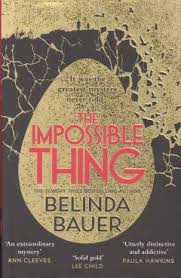


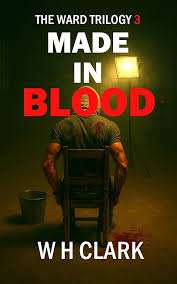
Jonathan Coe – The Proof of My Innocence
This is a lot of fun, despite the deeper and more serious purpose to which all the games he plays with words and styles are bent. As the Guardian put it, ‘The narrative comes at us in various guises including memoir, autofiction, present- and past-tense personal accounts and, most amusingly, the first draft of the kind of cosy mystery destined to sell millions in spite of the deficiencies of its prose’.
Anna Funder – Wifedom
I had to question whether to put this in fiction or non-fiction – it uses Eileen Shaughnessy Blair’s correspondence and other non-fictional sources, but then adds sections which are purely fictional, however solidly based, accounts of her life with Blair/Orwell. Rebecca Solnit, whose writing I admire enormously, takes Funder to task for the way she uses some of this material and for factual inaccuracies, and makes the case that her approach gives Eileen less rather than more agency, makes her more rather than less of a victim. Unquestionably Orwell’s attitudes were not feminist, and his failings seem for the most part to have been all of a piece with attitudes to women at that time. Solnit does not comment on the incidents described by Funder where Orwell was apparently sexually aggressive to the point of attempting rape. My internal jury is out on this book – I think I would prefer a more straightforwardly non-fictional approach as Funder’s leaves one constantly wondering which bits are her own speculation and which she has evidence for. I read Solnit’s Orwell’s Roses (see below) as a companion piece anyway, to get a different, more sympathetic (though not hagiographical) approach to Orwell.
Elly Griffiths – The Frozen People
The start of a new series from a writer who I’ve enjoyed enormously over the years. This one introduces a sci-fi element to the plot which is very intriguing, and on the strength of this first title another series that I will be following eagerly.
Jack Grimwood – Nightfall Berlin
An excellent Cold War thriller, which I should have read after Moskva, the first in the series. I will correct that asap, as this is a thoroughly gripping and enjoyable read, in the tradition of John le Carré.
Nick Harkaway – Karla’s Choice
Harkaway has even more claim to be ‘in the tradition of John le Carré’, as he is his son, and Karla’s Choice is explicitly placed in George Smiley’s timeline. His narrative voice is perfectly pitched and it is a worthy addition to the le Carré opus, as well as a fine thriller in its own right.
Robert Harris – Precipice
Based on the correspondence between PM Henry Herbert Asquith and posh socialite Venetia Stanley, just before and during the early part of WWI, this uses Harris’ genius for painstaking research that is then worn lightly to allow his characters to live and breathe. There is real suspense here, but emotional depth too, and whilst I wanted to shake both Herbert and Venetia, Harris made me care about them both.




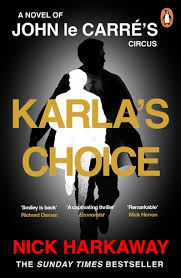
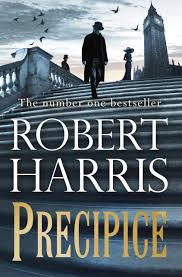
Mick Herron – Down Cemetery Road
The first in a new series by the author of the Slow Horses books. That was a sufficient recommendation, and this is a cracking thriller, with two female leads, so having thoroughly enjoyed this one I will now be following Zoe Boehm as well as the Slow Horses (in print and on TV).
Claire Keegan – Small Things Like These
Like Foster, the scale is small, low-key, as the title suggests, but so powerful. Like Foster, which was filmed as The Quiet Girl, this was made into a wonderful film (see my Screen reviews). Most readers will realise that the context is the history of the Magdalen laundries and their abuse of young unmarried mothers, but the protagonist does not at first see, partly because trust in the institutions of the Church is so strong in the community. The novella allows us to share his realisation and the clarity he reaches about his own responsibility. It’s beautifully written, and very moving.
Min Jin Lee – Pachinko
Epic historical novel spanning the period 1910 to 1989, following generations of a family from Korea to Japan and the US. Compelling and fascinating – so much history that I wasn’t aware of as well as insights into Korean and Japanese culture, and the characters are well drawn and engaging.
Laura Lippmann – Murder Takes a Vacation
I love Laura Lippmann. And I now LOVE Muriel Blossom. She is my new best friend and I want to go on cruises with her (though I might hope they’re slightly less eventful than this one). She is my age and widowed, and insecure about her size and appearance, but immensely capable, perceptive and clever and I hope this is merely the first of her escapades, as I foresee a feast of thoroughly enjoyable, witty and entertaining mysteries.
Simon Mawer – Ancestry
Mawer died this year, aged only 76. It’s a real loss – he isn’t half as well known as he deserves to be. Ancestry will thus be his last novel, and it’s a fine one. The title is quite literal, and refers to his own ancestors, whose history he pieces together from the documentary evidence and other traces of their lives. It’s described on his website as ‘an investigation into the reality of the past and an exploration of that uncertain borderland which lies between fact and fiction’. The lives that emerge are vibrant, perilous, harsh and enthralling.
Maggie O’Farrell – Hamnet
I have enjoyed everything I’ve read by Maggie O’Farrell, so it’s odd that it has taken me until now to read this one. Perhaps I sensed the intensity of the grief in the book and wasn’t ready for it. I’m still not – and I know that this particular grief, the loss of a child, is something that I could never be ready for. In our time, the death of a child seems to be an overturning of the natural order of things, even if in Shakespeare’s time and into the 20th century it was, in a way, normal – families did not assume that all children would make it to adulthood or even survive their birth. In any era, I imagine, the death of a child would be felt to be a failure of our fundamental responsibility as parents to keep them safe, and I think we may assume too readily that the frequency of childhood deaths meant that parents did not experience the shock and trauma as we might do today. All of that is here in the book. The context, that it is Shakespeare who is the grieving father, adds another dimension, but he is so much absent, and it is Agnes/Anne who is at the book’s heart.


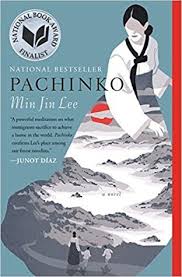



Andrew O’Hagan – Caledonian Road
O’Hagan takes Caledonian Road (the Cally) as his starting point and creates a web of connections, such as between the white male academic Campbell Flynn and his student Milo, and through those connections, many of them unexpected, builds a picture of the state of the nation, post Brexit, post Covid, which is richly characterised, full of humour and humanity. It’s been described as Dickensian, inevitably but not inaccurately.
Ann Patchett – Tom Lake
This moved me immensely. It’s about the way we think about our past, I guess, the way we mythologise and edit it even for ourselves, and so much more for others, to protect them or us. Patchett writes her characters with such warmth – tenderness even – and humour that one cannot help but care what happens to them. The narrative is built around Thornton Wilder’s play, Our Town, which is I think a great deal better known in the US than here – certainly I had never read or seen it. It’s obviously not essential to have done so, but Patchett’s afterword tells us that she hopes that it will take us to Our Town, whether on a return or a first visit. And so I tracked down a YouTube video of a production from 2003, with Paul Newman in the Stage Manager role. I’ve reviewed that in its own right on my Screen blog but suffice to say here that whilst initially I thought it might just be a bit too folksy, by the end I was moved very deeply and can understand the play’s longevity, not just in terms of performances but in terms of its impact on audiences and performers. I hope to return to the book, having seen the play.
Philip Pullman – The Rose Field (Book of Dust III)
I’ve been waiting for six years for this. I did toy with the idea of re-reading everything up to this point before I launch into the final volume, but could not wait. Pullman is drawing the threads together with immense skill and what feels like love, from all of the previous volumes in both trilogies – indeed, the movement of narrative and people in this volume is all about convergence, and there’s enormous tension and peril involved. Not all the threads are tied up. As the Guardian reviewer says, ‘The Book of Dust is a story for grownups, not children, and storybook endings are another casualty of the putting away of childish things. “There are no endings,” said Hilary Mantel on the final page of Bring Up the Bodies; “they are all beginnings.” Pullman draws his great matter to a close, but he’s clear that his characters, and their stories, will continue without him – that the end of his book marks the start of their next chapter. “We need the things we can’t explain, can’t prove, or else we die of suffocation,” says Lyra, towards the end of the novel. With The Book of Dust, Pullman has given us room to breathe.’
Jane Sanderson – Mix Tape
I’m not often particularly taken with romantic fiction, but this is lovely. I saw the dramatisation (see my Screen blog) before I read the book, and its USP is the same, that this is a love story with a soundtrack, chosen by the boy and girl, and shared via the good old-fashioned mix tape. (Do people share Spotify playlists these days as a romantic gesture? Must ask a young person.) Interestingly, there is a key plot difference between the novel and the TV series – unsurprising, as it’s rare for anything to make that transition without tweaks – which could be seen as shifting the sympathies towards or away from the lovers. I can’t really say any more without spoiling both the book and the TV series, but I think if you know both, you’ll get what I mean.
Vikas Swarup – Q&A
This was loosely adapted into the hugely successful Slumdog Millionaire. The trajectory of the protagonist towards his participation in the prize quiz very broadly provides the film’s narrative, but the book is much less romantic than the film. Both are excellent in their own right, and Swarup endorsed the film, recognising that it was and needed to be differentiated from the book.
Ngugi wa Thiongo – Weep Not, Child
The edition I have of this is credited to James Ngugi – he subsequently rejected this colonial name. It was his debut, published in 1964 in the Heinemann African Writers series, partly thanks to the support of Chinua Achebe. (My parents collected some of these titles whilst we lived in West Africa in the ’60s – my copy is inscribed ‘Hallett. 1965’, in my father’s handwriting.) The series was designed to produce paperbacks by black African writers, ‘attractively designed with high quality production, and sold at a very cheap price’. The novel’s plot – which has strong autobiographical elements – focuses on the trial of Jomo Kenyatta (referred to simply as Jomo), and the rising activities of the Mau Mau. Ngugi’s novel was not only his debut but the first novel by an East African to be published in English, and it’s a powerful account of that era of colonial history. Ngugi wa Thiongo died in February 2025.

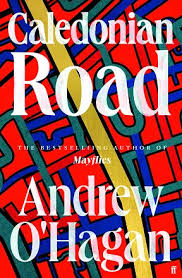

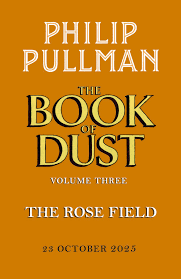

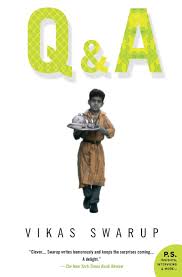
Colm Toibin – The Magician
Toibin here provides a fictionalised biography of Thomas Mann, during the period of the rise of the Nazi party in Germany, and his exile first in Switzerland and later in the US. It’s a fascinating life, and he is surrounded by fascinating people, not least in his own family. It’s the family that is the real focus of the novel, rather than exploring Mann as writer; here he is father, brother, husband – and yearner after young men. But there’s another strand which is equally fascinating – how various political factions want to and attempt to use his fame and his rhetorical powers for their own purposes, before, during and after the war.
Richard Wright – The Man Who Lived Underground
This was written in 1941-42, between the publication of Wright’s first major success, Native Son, and his memoir, Black Boy. It was rejected for publication, and only appeared in Wright’s lifetime in a collection of short stories, in a truncated and significantly altered form. It was only in 2021 that the full text was published. It is a remarkable and fascinating narrative. The black protagonist is falsely accused of the murder of a white couple, and goes on the run, finding shelter underground. He uses the network of sewer tunnels to move around the city, surfacing briefly in various buildings where he sees glimpses of life and of the way the city works. It reminded me a little of Colson Whitehead’s The Underground Railroad, where the railroad is both a metaphor and a physical reality. Here, as the Kirkus reviewer puts it, ‘A series of allegorical, surrealistic set pieces ensues as Fred explores the nether reaches of a church, a real estate firm, and a jewelry store. Each stop is an opportunity for Wright to explore themes of hope, greed, and exploitation.’ It’s about race – Fred is accused of the murder because he is a black man in the vicinity when a white couple is killed, and the police are happy to pin it on him – but it’s also a wider analysis of American life.
Poetry
Several of the titles below are from the estimable Longbarrow Press, based in Sheffield, and who produce beautiful books, from some fine contemporary poets, which I’m privileged to have hand-delivered as I live within walking distance from their home (by the standards of the publisher, a prodigious walker). An evening of poetry at Crookes bookshop Novel, with readings by various Longbarrow authors, is the primary reason why there’s more poetry in this half-year review than usual. I’ll try to keep that up. Dabydeen, Greenlaw and Hayes are non-Longbarrow poets.
David Dabydeen – Turner
I was prompted to read this after seeing the Turner painting which was Dabydeen’s inspiration for the title poem in this collection – Slavers Throwing Overboard the Dead and Dying—Typhon Coming On (1840), more commonly known as The Slave Ship – in an exhibition which drew attention to its context in the history of the slave trade. I hadn’t previously seen the figures and the chains in the water – having seen them now I cannot imagine how I failed to do so before. Dabydeen has depicted a notorious and horrific case where a slave ship had to jettison some of its human cargo in a storm, and then attempted to claim on their insurance for the loss of their assets. The poem burns off the page. And if one thought the poet might have welcomed Turner’s portrayal of a shameful episode in the history of that shameful trade, he does not, concluding that the intensity of the painting shows that ‘the artist in private must have savoured the sadism he publicly denounced’. This has been a controversial take and a troubling one. But it’s not an objective – or provable – position and does not need to be. Dabydeen is Guyanan and as he explained in an episode of David Olusoga’s recent Empire series, his ancestors, whilst not slaves, were transported from India as indentured labourers, so were part of that whole history. That he identifies with the Africans struggling in the water rather than the man who painted them is hardly surprising.
Pete Green – A Sheffield Almanac
‘A poem in four chapters about rivers, rain, relocation and regeneration, exploring the industrial past and post-industrial future of Pete Green’s adopted home city.’ It’s my adopted home city too and I loved the poem. It was a joy to read and will be a joy to re-read.
Lavinia Greenlaw – The Built Moment
This 2019 collection is centred on poems exploring Greenlaw’s experience of her father’s dementia and death. That is what drew me in, and the writing is extraordinarily tender and moving. I will go back to these – my own experience is probably too recent to allow much perspective.
Terrance Hayes – American Sonnets for my Past and Future Assassin
Again, I need to re-read these, but whilst I found some of the poems hard to engage with there was plenty there to absorb and move me. Anger, and hope too. ‘In seventy poems bearing the same title, Terrance Hayes explores the meanings of American, of assassin, and of love in the sonnet form. Written during the first two hundred days of the Trump presidency, these poems are haunted by the country’s past and future eras and errors, its dreams and nightmares. Inventive, compassionate, hilarious, melancholy, and bewildered – the wonders of this new collection are irreducible and stunning.’
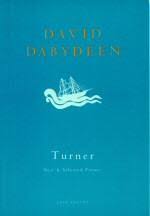


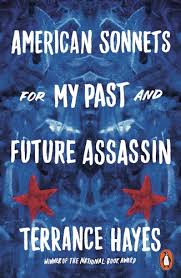


Martin Heslop & Helen Tookey – To the End of the Land
I read this whilst listening to the CD, where the words are interwoven with recorded sounds both musical (fragments from Nova Scotian folk songs) and natural. The poem explores ‘The layered histories and complex geography of Nova Scotia – its mountains, mines, lakes and bays … To the End of the Land investigates this remarkable landscape, and draws out the voices – under the seabed, under the storm – that animate it all.’
Rob Hindle – Sapo
What links these poems, composed over about a decade, is a fascination with words and the slipperiness of their meanings, and the natural world, whether the eponymous toad (sapo means toad in parts of Latin America, along with various other meanings), the birds from the Observer’s Book of Birds, or the landscape of the North Yorkshire Coast. And there’s another thread too, about plague, in our times and in the Derbyshire village of Eyam 360 years previously. They’re all, to quote Hindle, earthly or rooted. I loved Hindle’s earlier collection, The Grail Roads, and am loving this one.
Chris Jones – Skin
‘Skin is a book of bonds, reaching back, reaching out; a sensory exploration of the world we inhabit and try to make sense of.’ I heard Jones read some pieces from this collection at a Longbarrow poetry evening, and knew I wanted to read them all. I’d previously read and loved his earlier collection, Little Piece of Harm.


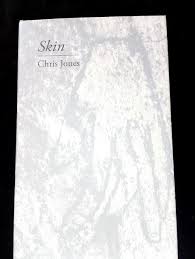
Non-Fiction
Hilda Bernstein – The World that was Ours
Bernstein’s autobiographical account of the period between the Sharpeville massacre and her family’s flight to Botswana following her husband’s acquittal in the Rivonia trial, is as tense and gripping as any thriller. The political climate of the time – justice skewed inexorably against the defendants, constant surveillance – is vividly described, from the perspective of the defendants and their supporters, but also from Bernstein’s perspective as a woman torn between her personal responsibilities as wife and mother and her political activism. Beautifully written.
Tobias Buck – Final Verdict: A Holocaust Trial in the 21st Century
This is more than an account of what must be one of the very last Holocaust trials, that of Bruno Dey, a former camp guard at Stutthof. Buck analyses the way in which these crimes have been tried, from Nuremberg onwards, and how the desire to move on from that hideous past, and the difficulty in ascribing individual guilt to a collective system of murder, has resulted both in leniency for many who took part in mass murder, and in the spectacle of very elderly men in wheelchairs being called to account for events they may barely remember. It’s fascinating and thought provoking.
Jenny Cathcart – Notes from Africa: A Musical Journey with Youssou N’Dour
This is not solely about N’Dour, though he is at the heart of Cathcart’s ‘notes’, and she clearly holds him in very high esteem. The problem is that there is not enough analysis of the music (I know, dancing about architecture and all that, but still, there are things one can usefully say about how the music works), and when it comes to N’Dour as a person and as a politician, a bit more critical distance would have been welcomed. However, it gives a flavour of the music that N’dour has done so much to bring to wider Western attention, and introduced me to some less familiar names.
Edith Eger – The Choice
Eger is not only a Holocaust survivor but a psychotherapist specialising in PTSD, and the book uses her personal story of recovery (far from a linear, simple process) to suggest that there are choices one can make in how one responds to trauma. She doesn’t oversimplify the issues, and doesn’t claim to have all of the answers. It’s a powerful read.
Mary Lovell – The Mitford Girls: The Biography of an Extraordinary Family
The family is endlessly fascinating. This biography is the basis for the TV series Outrageous (see my Screen blog) and I think tends to soften some of the political stuff – Lovell sometimes tries to be even-handed by balancing Unity’s (and other family member’s) Nazi sympathies against Jessica’s communism, but it’s not an entirely fair comparison as a great deal more was known about the Nazi regime at this stage (pre-WWII) than about the reality of Stalinist repression. Other sources do seem to suggest that the parents and their son Tom had fascist leanings, to say the least, which is barely hinted at here.
Paul Morley – The North (and Almost Everything in it)
I used to read Morley in the NME back in the day, and his style is still recognisable in this very entertaining and idiosyncratic volume, though he’s not strenuously trying to prove how clever he is these days. It’s a personal view of the north, which means that Reddish in Lancashire gets a lot more attention than any objective account would afford it, but that’s fine. It also means that the focus is more heavily – though far from exclusively – on what I think of as the other side of the Pennines. Morley’s personal story progresses chronologically in the normal way, whilst his historical and biographical vignettes start around now and go back through the decades and the centuries. This is sometimes disconcerting. Also disconcerting is that the photographs which interrupt the text seem to have been placed entirely randomly (out-Sebalding Sebald) and one would have to consult the index to find where their significance is described. It’s all most enjoyable and I had to keep a notebook to hand to jot down names and book titles as I went along.
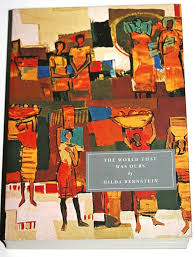
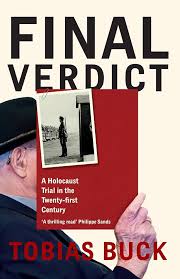

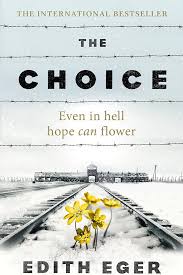


Peter Ross – A Tomb with a View: The Stories & Glories of Graveyards
I do love a graveyard. ‘So we go inside and we gravely read the stones/All those people, all those lives, where are they now?’. I remember visiting the graves in Cobham churchyard in Kent which inspired the early graveyard scene in Great Expectations – tiny stone lozenges representing infants lost at birth or soon afterwards. And I browsed happily in Pere Lachaise and Montparnasse, finding so much French history on the stones and mausoleums, not just famous names. So Ross’s book is a joy, full of interest, and of unexpected humour.
Sathnam Sanghera – The Boy with a Topknot: A Memoir of Love, Secrets and Lies in Wolverhampton
A profoundly moving memoir. Sanghera started to write to explain (to himself and to his family) why he was not intending to marry a Sikh girl, and indeed had had white girlfriends, but alongside recalling his own childhood and adolescence he has to address the puzzle of his father’s mental health. This is traumatic, for him and far more for his mother, who tells him of the early days of her marriage, before her new husband’s medical condition was diagnosed and treated. And through that he realises that his sister too suffers from schizophrenia. All of this emerges against the grain of Sikh Punjabi culture, which doesn’t do a lot of talking about feelings, and for which some of the truth that emerged was seen as shameful. Above all, it’s a deeply loving book.
Rebecca Solnit – Orwell’s Roses
Solnit is always a rather discursive writer, at the same time as being incisive and perceptive, and that’s part of the pleasure of reading her. As a reviewer for the Irish Times points out, in this book the structure reflects the organic, rhizomatic forms that Solnit discusses in relation to plants: ‘her topics … spurt and grow from one another in seemingly random yet contained patterns’. I wasn’t entirely persuaded – perhaps I just wasn’t receptive to the theme of roses and gardens and found the links sometimes a little tenuous. Nonetheless, there was a great deal of interest and enjoyment here.
Jamie Taylor – Studio Electrophonique: The Sheffield Space Age, from the Human League to Pulp
The story of Ken Patten, who set up a recording studio in a council semi in Handsworth (Sheffield), in which a generation of Sheffield musicians (most notably, but not only, Human League, ABC and Pulp) got their first chance to experiment with the electronic sounds that would make them so successful. This is a hugely entertaining account, rather charming and often very funny.
Stephen Unwin – Beautiful Lives: How we got Learning Disabilities so wrong
This is a remarkable book. It’s both authoritative in its treatment of the history of attitudes to learning disabilities, and deeply personal as the author talks – with so much love and respect – about his learning-disabled son. At times it is horrifying, and deeply shocking, but throughout there is a focus on the people with learning disabilities themselves, and he never loses hope that we can be better at understanding and supporting people in ways that recognise, respect and value who they are and what they contribute. I should declare a personal interest. I am the chair of an organisation, Under the Stars, that works with adults with learning disabilities and/or autism through music and drama, and this is a subject about which I feel strongly, and easily become emotional when I think of the people I know being – at best – marginalised, ignored, unheard. We – and many more organisations these days – put the individuals with learning disabilities at the centre of what we do. If they want to perform on stage, they won’t be fobbed off with a backstage role. And they shine. I’m grateful to Stephen Unwin for this illuminating and inspiring study.
Rebecca West – Black Lamb & Grey Falcon: A Journey through Yugoslavia
This is a monumental tome. And it needs to be, to capture even a part of the complexity of Balkan history, culture and politics. The book is based on West’s diaries of her travels in Yugoslavia in 1937, and was published in 1941 with an epigraph ‘To my friends in Yugoslavia, who are now all dead or enslaved’. It’s brilliantly written, full of wry asides and vivid characterisations, and I wish I thought I could hold in my head even a fraction of what I’ve read about the history of those countries, but I know I won’t. I will read more, and try to understand more, since – as West makes clear when she writes about the First World War and earlier history, and as became clear again to us after the disintegration of Yugoslavia and the conflicts that followed – the story of these nations is both vitally important and incredibly complicated.

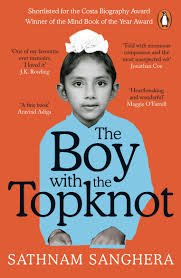


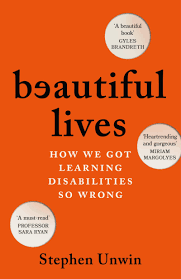

As always, my reading has taken me across continents and centuries, from very close to home (Sheffield, late 1970s), to Yugoslavia in the late 30s, 16th century Stratford on Avon, colonial Kenya, Korea and Japan, and the vividly imagined alternative worlds of Philip Pullman. I always struggle to pick ‘bests’, since the books I’ve read are so varied in genre, style, subject matter and era, but if pressed (I do realise that I am the only one doing the pressing) I would pick Hamnet and The Man who Lived Underground in fiction, Chris Jones’ Skin in poetry, and Stephen Unwin’s Beautiful Lives in non-fiction. This year we mark the passing of two writers featured here, Ngugi wa Thiongo and Simon Mawer, and a writer who I read some years ago, and met when we both worked at Sheffield Hallam University, Marina Lewycka, author of A Short History of Tractors in Ukrainian.



2025 Reading: The First Half
Posted by cathannabel in Literature on June 26, 2025
A nicely eclectic list this half year, traversing the continents and the centuries. Our protagonists move between Nigeria and the US, from Nigeria and Trinidad to London, from Victorian Bath to Borneo, from Somalia to Cardiff. Eneas McNulty travels the world, and migrants from all over the world settle in Linda Grant’s Stranger City of London. We visit Saigon as it falls, mid-19th century Paris, Victorian London and a Swiss village at the beginning of the 20th century. And then there’s a dystopian vision of a future USA, set in 2025… Several authors were new to me, and I hope to read more from Claire Fuller, Philippe Claudel, Emma Stonex, Nadifa Mohamed, Aaron Philip Clark, Chibundu Onuzo and Viet Thanh Nguyen. In addition to those reviewed, a cluster of excellent new crime from authors I turn to regularly: Vaseem Khan’s The Lost Man of Bombay, Luke McCallin’s The Pale House, Russ Thomas’ Sleeping Dogs, Elly Griffiths’ short story collection The Man in Black, Cath Staincliffe’s Fire on the Fells and Jane Casey’s The Secret Room.
Chimamanda Ngozi Adichie – Dream Count
I’ve been waiting so long for this! And it was worth the wait. Adichie introduces us to four women, whose lives intersect in various ways, Chiamaka (“Chia”), Zikora, Omelogor and Kadiatou. She has said that ‘the point of art is to look at our world and be moved by it, and then to engage in a series of attempts at clearly seeing that world, interpreting it, questioning it’ and that’s what she does here through these four lives, which move us but also challenge us. The Guardian’s reviewer said that it is ‘quintessential Adichie: ambitious, astute and powered by an accumulation of feather-light sentences that build to devastating weight’.
Kate Atkinson – Death at the Sign of the Rook
Jackson Brodie’s back, in a witty, sharp and very twisty mystery, that plays with/pays homage to the clichés and conventions of the genre, whilst doing it all supremely well so that we’re fully engaged throughout.
Julian Barnes – The Noise of Time
Brilliant, powerful account of three key points in the life of Shostakovich as he tries to live and create under Stalin. Each is rendered so vividly that we can’t take refuge in our own notions of what he ought or ought not to have done. The image of the man waiting outside a lift with his suitcase each night as he expects to be taken away is one that stays with me. But also the humiliation of giving the speech that has been written for him to an audience on a trip to the US, summed up in this passage: ‘There were those who understood a little better, who supported you, and yet at the same time were disappointed in you. Who did not grasp the one simple fact about the Soviet Union: that it was impossible to tell the truth here and live’.
Sebastian Barry – The Whereabouts of Eneas McNulty
This is wonderful, and heartbreaking. Eneas is an exile, condemned to wander the world because of a judgement passed on him in his hometown of Sligo, which he knows will never let him go. It’s beautifully, lyrically written and whilst its ending is tragic it also conveys a kind of peace.
Frederic Beigbeder – Windows on the World
Two voices here, the first of a father who is with his sons in the Windows on the World restaurant in the World Trade Center when the planes hit, and second a writer – presumably Beigbeder himself – who is attempting to find a way to write about the attack but daunted by the impossibility of the project. I didn’t warm to either of them and there was quite a blokey, verging on misogynistic strain in both narratives which was off-putting. Did it work? I don’t know – there were certainly moments in the restaurant which hit pretty hard, and which – for good or ill – made one realise what it might have been like being there as the tower burned, both in terms of the physical effects and the emotional. But overall I was not convinced, and the musings of the author or his surrogate were so cynical and self-absorbed that they undercut the power of the other sections.
NoViolet Bulawayo – Glory
I struggled with the basic concept here. Perhaps I have an overly literal mind, but I couldn’t help but attempt to picture the various goats, zebras, horses, etc driving cars, wearing clothes, and so forth, and it didn’t make sense to me and trying to deal with that was a distraction from the plot and the characterisation. It was engaging and darkly funny, but I’m not convinced that the conceit really works, or what its purpose was.





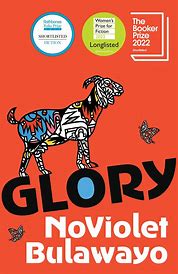
Octavia Butler – The Parable of the Sower/The Parable of the Talents
Dystopian fiction, written in 1993 but set, rather unsettlingly, in 2025 – the threat here is from (a) climate change and (b) human beings, and it deals very effectively with racial and gender politics too. Compelling and fascinating, and the sequel doesn’t just take events further, it questions the account given in the first book, bringing in other, sometimes sceptical voices, which adds real depth.
Jacques Chessex – Le Vampire de Ropraz
Based, apparently, on a real case from 1903, and written in a very detached, pared down style (it reminded me a little of Heinrich Boll’s The Lost Honour of Katharina Blum, one of my favourite novels ever), which doesn’t spare the horror of the crimes or come to conclusions about guilt or innocence, but dwells rather on the response of the villagers and their eagerness to pin the crime on someone who fits their assumptions, regardless of actual evidence.
Aaron Philip Clark – Under Color of Law
Spike Lee is quoted as saying (I haven’t managed to track down the source or the context) that everything that happens in the US is about race. And this crime thriller – like those by Attica Locke, and the ‘Darktown’ trilogy from Thomas Mullen – makes that point powerfully. It’s a dark, tough story, beginning with the murder of a young black police recruit, and very well told.
Philippe Claudel – Le Rapport de Brodeck
We are somewhere in Europe, where people speak a language that sounds Germanic but isn’t quite German, after a war that must be WW2, and something has happened, a violent incident involving a stranger in a village miles from anywhere, which brings to the surface trauma, prejudice, fear and guilt from the past. Brodeck has been tasked with writing a report of the ‘incident’, a project which he knows will threaten his own place in the village. Absolutely gripping.
Charles Dickens – The Chimes/The Cricket on the Hearth/The Battle of Life
I re-read A Christmas Carol first, and it was just as wonderful as I had remembered. These lesser-known Christmas stories are a bit harder going, with an over-reliance on melodramatic plot devices and a fair dollop of Dickensian sentimentality and piety.
Janice Elliott – Secret Places
For absolutely no good reason, Janice Elliott is pretty much forgotten and her books out of print. Someone should fix that. I read several of her novels back in the 80s and this one re-appeared from years of exile in the attic and demanded to be re-read. It is subtly and beautifully written, set in a girls’ school during WW2, and concerning the arrival of a German refugee, who generates both fascination and suspicion. I have only just discovered that there is a film of this, which I’d love to see, but I suspect is just as mired in obscurity as Elliott’s books.
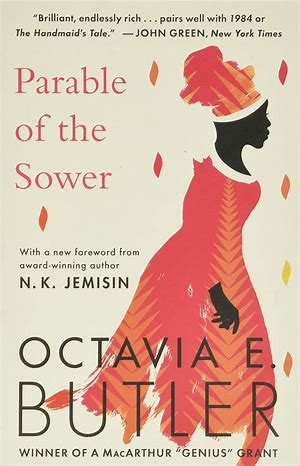
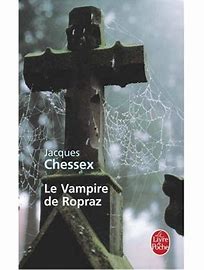

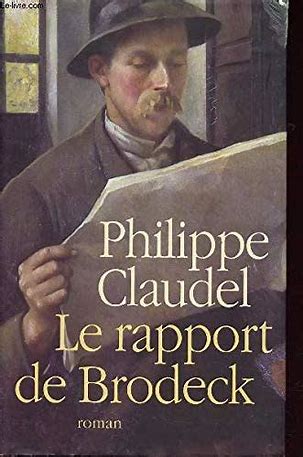

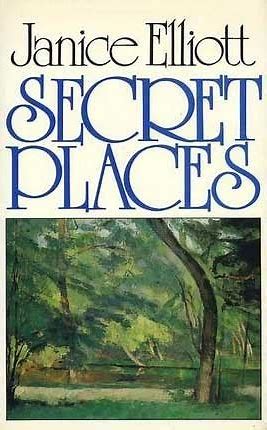
Buchi Emecheta – Second Class Citizen
Semi-autobiographical account of an Igbo girl’s struggle to get a proper education in Nigeria, and then to make a life for herself in Britain, facing not only racism but sexism and the dead weight of a feckless husband. Adah has dreams that she holds on to tenaciously in spite of everything, and whilst there is much to fuel anger in the narrative, there’s also hope (not least in the subsequent success of Emecheta herself).
Claire Fuller – Unsettled Ground
It starts with a death, the death of a mother, leaving her children as orphans. These orphans are twins, and they’re 51, but they’ve lived in seclusion from the world, and they have to deal not only with this loss, but with the threat of homelessness, and with the necessity of now dealing with the world that they’d largely shut out all their lives. It’s beautifully done, and makes us see contemporary life through their eyes, the impossibility of navigating a world where everything is complex and everything requires connection. Ultimately, as the Guardian’s reviewer says, ‘Jeanie’s refusal to relinquish her tenuous hold on all the things she loves carries the reader with her on a frightening and uncomfortable journey to the truth, and the possibility of starting again’.
Robert Galbraith – A Running Grave
An improvement on Ink Black Heart, with a compelling plot. The main problem with this one (and I’m not having a go because it’s JKR, honestly, but as one of the most successful writers of our time, she shouldn’t be immune from criticism either) is her penchant for rendering people’s accents in the dialogue. This is off-putting and largely unnecessary, and the effort of trying to ‘hear’ that person’s voice in Rowling’s rendition of their accent is a massive distraction. Apart from that, it’s a decent crime novel.
Linda Grant – A Stranger Town
Very me, this one. A polyphonic novel of a labyrinthine city. Dickensian, from its opening scene as a corpse is dragged from the river. It plays with fantasy at points, it alludes to Brexit as the source of anxiety about the future for a city of migrants. The Guardian says: ‘the real achievement of A Stranger City is the way in which its narrative is as fractured and uncertain as the London it portrays. And despite its contemporary relevance, the novel avoids becoming a “state of the nation” tract – it’s far too emotionally intelligent for that. It’s as much a novel of feelings as ideas, and this is what makes it a compelling read. At its heart is the need for belonging, something we all share yet can put us at odds with each other. At a time when dangerously inert notions of national identity are on the rise once more, Grant reminds us that humanity is a migrant species: we are all strangers.’
Mick Herron – The Secret Hours
We’re in the world of Slow Horses, but kind of adjacent to the series – the book stands alone, but if you know, you’ll recognise a number of key players, seen as if from a different angle. It’s very cleverly done, very funny, and dark too.
Susan Hill – In the Springtime of the Year
I remember reading this, probably in my early 20s, and that my Mum read it too, and both of us loved it. I recalled one scene in particular, a young woman hanging out washing who suddenly feels appalling desolation and pain and knows that something has happened to her husband. Reading it now, I’m even more moved by the totally convincing depiction of sudden widowhood but also how the process of grief is tied up with the changes in the seasons and the rhythms of ongoing life.
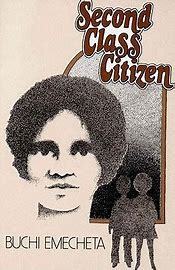
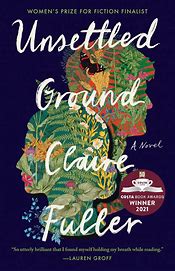
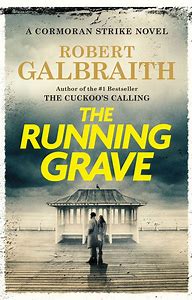
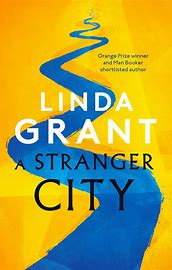
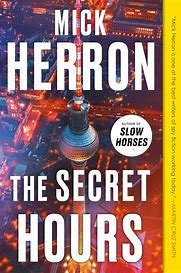

Stephen King – Never Flinch
This doesn’t exactly break new ground for King but never mind about that, it’s King on form. This one features Holly Gibney, who we first met in the Mr Mercedes trilogy and subsequent novels that sometimes venture into the supernatural (or, one might say, sometimes the supernatural lurks just out of view, or whispers just out of earshot), sometimes not. But as with all of those recent novels, they’re brilliantly done, they make you care and make you keep turning the pages, and it’s good to see that he’s still on top of his game.
Ian McEwan – Lessons
I have reservations. First of all, the somewhat clichéd plot trope of a schoolboy being seduced by a beautiful mature woman doesn’t quite convince, even though the damage (to both parties) is explored sensitively and intelligently. Secondly, and I fear this is another example of some writers being too big to copy-edit, McEwan gives his teenage protagonist, in 1962, cultural reference points that were at least a year premature. I checked some of the details quickly on Google and Wikipedia – surely, he could have done that, or his publisher could have done that? I know I get perhaps disproportionately annoyed about such things but when I read anachronistic or otherwise inaccurate stuff like this it takes me instantly right out of the narrative. It seems lazy, and arrogant. In this instance, the timing was clearly very significant, because it is the tension around the Cuban missile crisis that informs some of the key events. So why not make sure that your cultural reference points make as much sense as the political ones? Apart from that I quite enjoyed it. He can write, obviously, but it isn’t the first time I’ve felt rather cross whilst reading McEwan, for similar reasons.
Nadifa Mohamed – The Fortune Men
This is based on the real case of a Somali man wrongly arrested for murder, and ultimately hanged, having failed to get anyone to really listen to him – and having failed to understand how the system would work and to make it work for him. Mohamed not only inhabits the central character, Mahmood Mattan, but the family of the murder victim too. She brings to life the multiethnic community of Tiger Bay in the early 1950s, and the inflexible legal system that refuses to listen to or see the injustice it is perpetrating. Interestingly, I watched an excellent dramatisation of the Ruth Ellis case (see my screen blog) – not a miscarriage of justice in the same way, since she unquestionably did it, but another illustration of how once the legal system has decided, it cannot allow itself to admit that a mistake is being made. And a reminder, should we need it, of how mistakes and miscarriages are unundoable when a sentence of death is carried out.
Abir Mukherjee – Hunted
We’re a long way from the Raj (the setting for Mukherjee’s Wyndham & Banerjee crime series) in this stand-alone thriller – it’s a gripping read, starting with a terrorist attack on a shopping mall, and following the search for the perpetrators by the FBI and other agencies, and (for different reasons) by the parents of two of those implicated. Nothing is as it at first seems, and things get very complicated, but Mukherjee never loses control of his story, and it has both tension and heart.
Thomas Mullen – The Rumor Game
Set in 1942 in Boston, Mass., where a newspaper writer specialising in debunking rumours and an FBI agent find themselves working together against the activities of anti-semitic organisation the Christian League (fictional but based on real organisations of that ilk at the time). Both protagonists are outsiders, the reporter because she’s Jewish and the FBI man because he’s a Catholic. Mullen’s Darktown trilogy, about black cops in Atlanta in the late ‘40s/early ‘50s conveys brilliantly the sense of always being hyperalert that comes from being the representative of a minority within an organisation and within the wider community, and The Rumor Game is just as skilful and compelling.
Irene Nemirovsky – Le Maitre des Ames
Nemirovsky’s own story (a Russian Jewish emigrée to France, arrested, deported and murdered in Auschwitz by the Nazis) and the story of her last, unfinished book, Suite Francaise, not published until 2004, tend to overshadow her earlier, very successful publications. This one was published in 1939, before the Nazi Occupation. Her protagonist is an immigrant from Eastern Europe, struggling to make ends meet as a doctor, but with a burning conviction that he can be successful, at whatever cost. He’s not exactly a sympathetic character but Nemirovsky makes him comprehensible, pitiable at times, and his situation is vividly conveyed. She’s a sharp, some say cruel, writer – some of the peripheral characters in Suite Francaise too are almost monstrous, though always depicted with humour.
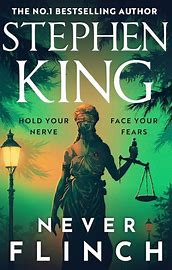

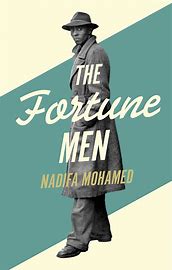


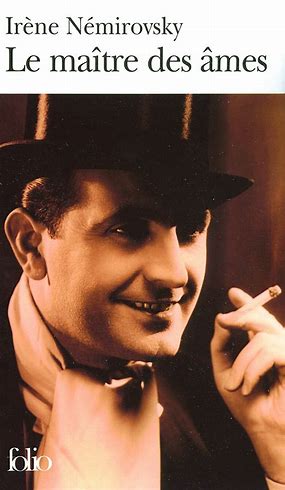
Viet Thanh Nguyen – The Sympathiser
The fall of Saigon and the Vietnamese diaspora through the eyes of a Viet Cong agent (this isn’t a spoiler, he tells us right at the start that he’s a spy/spook, a man with two faces). This is brutal, but brilliant, and often very funny. The description of the fall of Saigon and the desperate attempt to get out as bombs fall on the runway is stunningly powerful, and thereafter the narrative takes us to unexpected places – and an unexpected resolution.
Chibundu Onuzo – Sankofa
Onuzo’s protagonist is a middle-aged woman, recently separated from her husband, and having lost her mother. She’s the daughter of a white mother and Bamanian father (Bamana being a fictional West African country), and the questions about her identity with which she has wrestled all her life have suddenly become more urgent. This leads her on a quest for her father, whose name she now knows, through diaries she finds amongst her mother’s things. Her father is a fascinating character, full of contradictions, all of which Anna has to navigate. Excellent.
Ann Patchett – Run
Two family groups heading out to a public lecture, and for reasons we don’t at first realise, on a collision course with each other. The reasons emerge fairly quickly but the outworking of this connection is what drives the narrative. It’s subtly done, beautifully written, and as always with Patchett, there’s warmth and hope.
Donal Ryan – The Queen of Dirt Island
A family saga, focusing on female resilience across four generations. It’s full of opposites, as the Guardian review says: compassion and cruelty, fragility and strength, joy and despair. The writing is musical, but never shies away from brutality either. Deeply moving and memorable.
Sam Selvon – The Lonely Londoners
This 1956 novel is gloriously polyphonic, musical, using the rhythms of Caribbean speech to portray the lives of Windrush generation immigrants as they navigate life in London, trying to reconcile their hopes and dreams to its drab and often hostile reality. It’s frequently funny, but very touching as well. A delight.
Georges Simenon – Le Passage de la ligne
An odd book. I think I’d picked it up second-hand years ago, assuming it would be a Maigret, and finally got around to reading it, having realised it wasn’t. The protagonist is hard to identify with, because he doesn’t really engage with other people except in a transactional sense – he shows no signs of empathy or even sympathy, and some of his behaviour is not only morally dubious but repellent. I am still not sure what it was all about – it reads like a confession, a statement of his life, or even a suicide note?


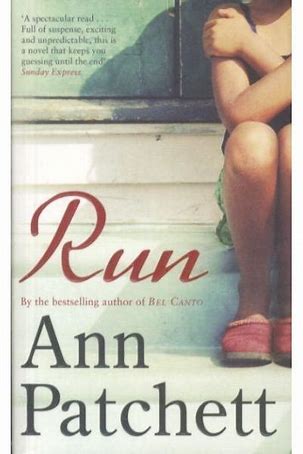

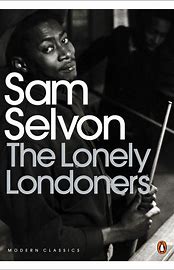
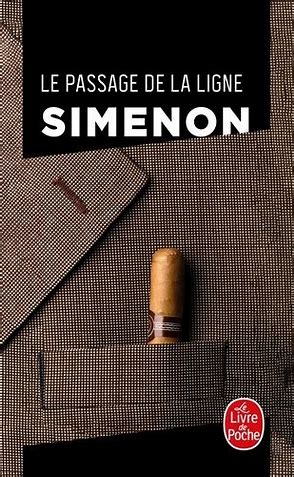
Francis Spufford – Red Plenty
Interesting to read this after Julian Barnes’ The Noise of Time, because it took me back to the paranoia and the oppressive party of Stalinist Russia (and beyond). Spufford focuses on the economics of the regime, in an account which sometimes reads like a novel, sometimes like non-fiction, with a LOT of exposition. The latter is sometimes a slog, but he writes it well, and it is often both enlightening and darkly funny. I would also recommend not reading it as an e-book – there is a very helpful cast list at the front of the book, but referring back to it whilst reading on Kindle was rather a faff.
Emma Stonex – The Lamplighters
Inspired by the true story of the disappearance of three lighthouse keepers in 1900, this gothic narrative moves between the lead-up to the disappearance (in 1972), the investigations, and the lives of the women left behind. It’s atmospheric and mysterious, and it leaves us room to take or leave supernatural explanations, because really what it is about is the people, the traumas of their lives, the effects of isolation.
Rose Tremain – Islands of Mercy
Not my favourite Tremain, but she’s far too good a writer for there not to be much to enjoy here. Primarily, the interweaving lives of the female characters, Jane, tall and contrary, a gifted nurse, Clorinda who has made her way from Dublin to Bath to set up a tea room, Emmeline, Jane’s artist aunt and mentor, and Julietta, a married woman with a penchant for female lovers. The men in the story are less satisfactory and the part of the narrative set in colonial Borneo doesn’t entirely convince.
Anne Tyler – Three Days in June
Wonderful. A slightly awkward, abrasive protagonist, dealing with family dynamics at her daughter’s wedding (the three days are the eve of the wedding, the wedding itself and the morning after). It’s very funny, and very touching. I should note that whilst I read it only a few weeks before my own daughter’s wedding, my situation and my feelings about it all bear no relation to Gail’s, however much I liked her.
Chris Whitaker – All the Colors of the Dark
Lord, this is intense. The writing is so dense and so evocative at the same time, the characters blaze off the page, the plot is labyrinthine and full of traps for the unwary reader who thinks they can see where things are going. Is that plot entirely plausible – well, no, but it works, nonetheless, and it holds the reader till the final page, after which that reader might need a bit of a lie down. Glorious.
Emile Zola – Au Bonheur des Dames
My first Zola for many years. He was where I began reading French novels for fun, alongside my A level texts, which were a lot less thrilling than Germinal or La Bête humaine (sorry, Maupassant, Balzac and Moliere). The setting here is a huge Parisian department store, whose growth is threatening the small businesses in the area, who can’t compete. A young orphan, with younger brothers in tow, arrives at the home of her uncle, hoping to find work in retail, and is entranced by Au Bonheur des Dames, despite her uncle’s hostility to it.
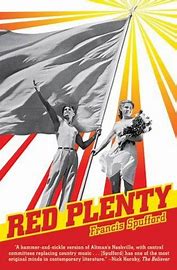





Non-Fiction
Andy Beckett – When the Lights Went Out: What Really Happened to Britain in the Seventies
I know about the 70s, obviously. They were the years I became first a teenager and then an adult. In 1970 I was 13 and when the decade ended, I was a graduate, in employment, a married woman and a homeowner. And throughout these formative personal times I was always aware of the news, brought up to read the Guardian and watch the BBC’s bulletins every evening, habits I continued long after leaving home. But it’s refreshing to read a history of this period, which fills in the bits I’d forgotten or never knew and looks back with perspective and insight on what I can only remember in terms of how it was presented at the time, or how it impacted on my own life. Beckett writes engagingly and draws on interviews with those amongst the key players who were still living (it was written in 2009).
Anthony Beevor – Arnhem
I’ve read most of Beevor’s WW2 histories – he manages to make the military manoeuvres comprehensible to me and fleshes out the personalities and personal conflicts. This one commended itself to me as I’d just re-watched A Bridge Too Far and was fascinated by the unusual spectacle of an all-star WW2 film depicting what was unarguably a multi-faceted cock up of tragic proportions.
Viola Davis – Finding Me
I hadn’t realised quite how tough a childhood Davis had. She writes about it in a very direct and emotionally open way (did she have a ghost writer? It didn’t feel like it). There’s a bit too much God-stuff for me, but one cannot come away from the book without a massive admiration for Davis the woman as well as Davis the actor.
Jim Down – Life Support: Diary of an ICU Doctor on the Frontline of the Covid Crisis
I read this around the fifth anniversary of lockdown and it is powerfully written, angry and heartbroken. As an intensive care doctor, Down really was on the frontline and it’s essential reading as the memories – at least for those of us who were far from the frontline – begin to fade.
John Elledge – A History of the World in 47 Borders: The Stories Behind the Lines on our Maps
Hugely entertaining and enlightening account of various national borders (past and present), how they came about, how they have changed, how they have been – and are – bloodily fought over.
Goran Rosenberg – A Brief Stop on the Road from Auschwitz
There is a whole literature of the Holocaust that comes from the children of survivors. I’m thinking particularly of Eva Hoffman’s After Such Knowledge and Lost in Translation, Lisa Appignanesi’s Losing the Dead, Anne Karpf’s The War After. This generation had to deal both with their parents’ inability to tell them about their experiences, and with the very evident trauma that their parents lived with every day, and which often distorted family relationships and everyday life. Rosenberg grew up in Sweden, knowing very little of his father’s road to Auschwitz, only of the road he took from it, and has reconstructed that first road, as far as possible, to try to understand the tragedy that was waiting at the end of the second. Powerful and very moving.

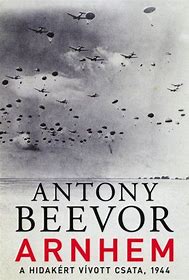

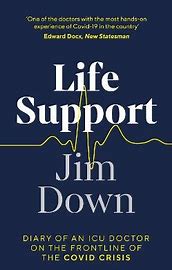


Rebecca Solnit – Recollections of my Non-Existence
A memoir of how this remarkable and vital writer found a voice, found a way to exist and be both visible and audible, and to have an impact. It’s tough, heartbreaking, to read of how the relentlessness of violence against women wears down and intimidates even those who have not been directly victims, but Solnit always offers hope, even if it’s hope in the dark.
John Steinbeck – Travels with Charley
Steinbeck’s tremendously engaging account of his road trip in 1960, accompanies by his dog, Charley. It’s a journey of almost 10,000 miles, starting and finishing in New York, and travelling through Maine, the Pacific Northwest, California, Texas, and the Deep South. It’s a most intriguing glimpse of America and Americans, which becomes most disquieting, inevitably, when he reaches the deep South and encounters the hatred and fear that prevailed in those segregated towns – he’s frank about his discomfort and uncertainty about how to deal not only with the racism but how to talk to the black Americans he meets without putting both them and himself at risk of violence. It’s interesting to note, in contrast to his awareness of the evils of segregation, that native Americans are encountered only as a brief historical footnote and whilst this reflects the brutal reality Steinbeck doesn’t indicate that he has given the implications of this any particular thought. But it’s a great read, funny, perceptive and sharp.
Elijah Wald – Dylan Goes Electric! Newport, Seeger, Dylan, and the Night that Split the Sixties
This is the primary source for A Complete Unknown. Whilst the film tinkers a bit, inevitably, with chronologies ‘for dramatic purposes’, it does justice to the protagonists. But the book takes a much deeper dive into the folk scene, as represented primarily by Pete Seeger, and explains why Dylan’s ‘betrayal’ was so explosive. Entertainingly written and fascinating.

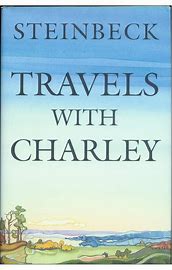

2025 On Screen – the first half…
Posted by cathannabel in Film, Television on June 26, 2025
Film
Most films, as usual, were seen on the small screen, but I did get out to the pictures for A Complete Unknown, A Real Pain, Queer, Macbeth and Bridget Jones. There’s the usual mix of drama (special mention to The Outrun, A Real Pain and The Quiet Girl), biopic (notwithstanding my issues with the genre – and special mention to A Complete Unknown which sidestepped them nicely), scifi/speculative fiction (Quiet Place Day One probably the best of this group), and films about race (The Nickel Boys and One Night in Miami stand out). Good to see the number of female directors: Mary Nighy for Alice, Darling (her debut), Zoe Kravitz for Blink Twice (also a debut), Nora Fingscheidt for The Outrun, Gina Prince-Bythewood for The Old Guard, Regina King for One Night in Miami (another debut), Ava duVernay for Origin – and to note that of these, four are women of colour.
I’ve tried to avoid spoilers but you take your chances. As always, I’ve omitted anything I gave up on in the first third, and anything which was so purely mediocre that I couldn’t think of anything to say about it.
The Affair
Adaptation of Simon Mawer’s excellent novel, The Glass Room. Frustrating really, it managed to make the timelines really confusing, and one whole strand of the story (that of the nanny with whom the husband had the titular affair) is denied the development that Mawer gives it. The performances are good, but it didn’t really work.
Alice, Darling
Anna Kendrick is excellent in this account of coercive control, and female friendship. The picture is built up subtly – we, and her friends, notice Alice’s tension each time her phone buzzes, her fiddling with her hair (we don’t immediately realise how much of it she is pulling out). A road trip with those friends is the catalyst for realisation and intervention, shown without undue melodrama, and not over simplified. I must watch Kendrick in something where she isn’t in peril from horrible men though – the last thing I saw her in was Woman of the Hour…
Blink Twice
Originally called Pussy Island… Guardian’s reviewer says, ‘It’s about misogyny and abuse and memory and materialism and gender performance and many other things that would be a spoiler to mention. It’s therefore less of a plate and more of a buffet, and while it might be beautifully served, it’s a film about excess that suffers from it too, a case of too much leaving us with too little.’ For myself, I’m not sure whether it explained too much or too little – certainly, whilst there was a lot that I enjoyed, I had questions.
A Bridge Too Far
I must have seen this before, given my penchant for WW2 films, but it didn’t seem over-familiar, and it was very striking how the various misjudgements and miscommunications which contributed to the tragedy of the Arnhem battles are shown so clearly, not glossed over or justified in any way. I was prompted to read Anthony Beevor’s account of the campaign, which confirmed that the film was surprisingly (given the general track record of war movies) accurate.
Bridget Jones: Mad About the Boy
Very, very funny. Laugh out loud (I snorted a couple of times, which was OK because I wasn’t the only one in the cinema to do so), but with a lot of heart. As a widow, albeit rather a lot older than Bridget, I found some of the scenes really moving – and again, I wasn’t the only one sniffling audibly. You could see where the plot was going, of course (and after all, what sane woman would settle for Leo Woodall’s Roxter – a gorgeous puppy in human form – when Chiwetel Ejiofor’s Mr Walliker is around?) but that mattered not at all.
Captain America: Brave New World
I have yet to fully acclimatise myself to new Cap. Of course, I knew, from Endgame and The Falcon & the Winter Soldier, that ‘my’ Cap was gone, but I still have to remind myself from time to time. However, I love Anthony Mackie and I’m invested. My only problem with the plot was the references to bits of lore that I either had never come across (I’m not familiar with the comics at all), or only come across in The Eternals, which I recall I largely dozed through (maybe not entirely its fault). Leaving that aside, I thoroughly enjoyed the film.


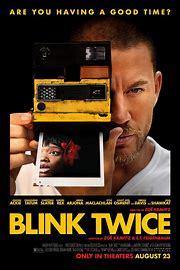

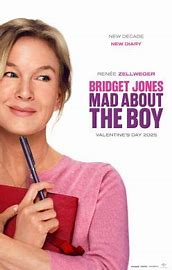
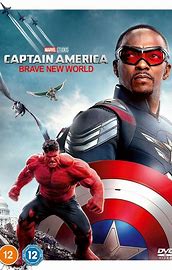
Civil War
This wasn’t what I expected – I was anticipating more of an action movie, but this was thoughtful and introspective about journalistic ethics, amongst other things, whilst not pulling its punches when it came to the violence. Our protagonists are war correspondents, specifically, led by Kirsten Dunst as a hardened reporter who has seen the worst that human beings can do to one another, and been damaged by what she has seen. All four of the group that we follow through the film in some way need the adrenalin of following the violence and recording the horror. The titular civil war plays out, but it could be any conflict, anywhere, and these people would be there.
A Complete Unknown
I’d expected to enjoy this with reservations, given my issues with so many biopics. But I loved it. Dylan does not lend himself to the traditional biopic format. Here we learn nothing about his life before he rocks up in New York, already a singer with a few of his own songs ready or bubbling away. Not to mention the fact that Dylan told people all sorts of tales about his life before New York, most of which were fairly obviously untrue – he invented himself as he went along. There are no personal crises – for his unfortunate girlfriends perhaps, and for Seeger and others who saw what they wanted to see in him and felt betrayed – but not for Bob. It’s interesting to compare with director James Mangold’s earlier biopic, Walk the Line, from twenty years previously, also an excellent film with superb performances but which follows the format pretty faithfully – and of course Cash, the subject of that movie, has a supporting role here. Chalamet was wonderful, as were the rest of the cast (esp. Edward Norton as Seeger, and Monica Barbaro as Baez). And the real triumph was the way in which the music told so much of the story – not just the lyrics, but the music, and the performance of the music.
Doubt
Superb, subtle, troubling and with so many outstanding performances. In particular, this was the movie that made Viola Davis a big name, albeit in a small part – she blazed out of the screen, and somehow unsettled everything, in just a few moments.
Frida
The Roger Ebert site review says that ‘Sometimes we feel as if the film careens from one colorful event to another without respite, but sometimes it must have seemed to Frida Kahlo as if her life did, too’. And that is one of the problems with biopics generally, but even more so with a life as full of drama and colour as Kahlo’s. Salma Hayek and Alfred Molina are great as Kahlo and Rivera – they are both ‘a lot’, infuriating and mercurial, and their relationship is as tempestuous as that suggests, with both parties being pretty damn unreasonable at least some of the time. The most notable thing, apart from the performances, is the way the director uses visual imagery – a bluebird flying from Frida’s hand during the trolley crash, and gold leaf falling on her cast.
The Gorge
Daft and thoroughly enjoyable scifi actioner. It rapidly became apparent that it would not do to think too rigorously about the plot, so I just went with it.
His Three Daughters
And what a trio! Carrie Coon, Natasha Lyonne and Elizabeth Olsen bicker and grieve as the tensions in caring for and even spending time with their dying father bring all sorts of memories and misunderstandings to the surface. Brilliant.
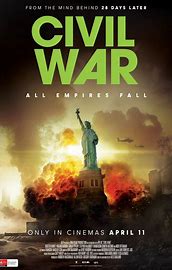



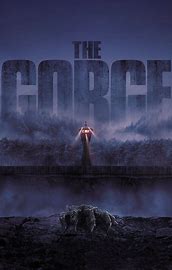
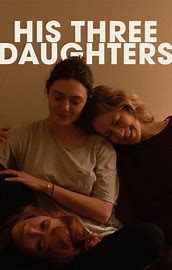
The Holdovers
Gentle without being sentimental, this was the perfect film for New Year’s Day as we curled up on the sofa after too little sleep and slightly too much wine the night before. It’s not a feelgood movie exactly – there’s too much pain here for that – but it’s sympathetic and hopeful and with marvellous performances from Paul Giamatti and Da’Vine Joy Randolph in particular.
I, Tonya
Multiple layers of unreliable narration, gobsmacking ice-skating, and bravura performances from Margot Robbie and Allison Janney – hugely enjoyable.
The Invisible Woman
I watched this, by coincidence, shortly after watching Priscilla (see below) and was struck by the similarities, despite the very different setting. Of course I’m not comparing Dickens to Elvis exactly, but both men used their age and even more their fame to control the younger woman. The title of this film could apply equally aptly to Priscilla as to Ellen Ternan. If anything, this account downplays Dickens’ cruelty to his wife, but Ralph Fiennes doesn’t sanitise his relationships, and Joanna Scanlan powerfully conveys her devastation at being cast aside.
Jude
Dark and doom-laden adaptation of Hardy’s darkest and most doom-laden novel. Christopher Eccleston and Kate Winslet are both excellent, and it doesn’t feel melodramatic, because we feel the accumulating weight of all the forces that are against them, individually or together, so that the devastating denouement seems inevitable. Not a fun watch but exceptionally well done.
Macbeth
National Theatre production with David Tennant and Cush Jumbo – the performances are outstanding, as one would expect. The whole thing is stripped down in terms of the set and streamlined in terms of the absence of act and scene breaks. The latter has one slight disadvantage – there are a couple of bits in the script which don’t totally make sense without a break to indicate the passage of even a little bit of time – but it’s very minor. I’ve seen some superb Macbeths on screen over the years – Denzil Washington & Frances McDormand, Michael Fassbender & Marion Cotillard, Christopher Eccleston & Niamh Cusack, and going back further in time, Jon Finch & Francesca Annis and this may be the finest (with Denzil & Frances a very strong contender).
No. 24
Norwegian WW2 drama focusing on a hero of the Resistance. What makes this distinctive is the framing it gives, as he talks decades later at an event for schoolchildren, and fields difficult questions about what he did for the cause. It doesn’t give easy answers and that’s refreshing.





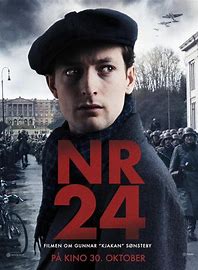
The Nickel Boys
Powerful adaptation by RaMell Ross of Colson Whitehead’s brilliant novel, which uses the device that we see everything from a first-person perspective, and the narrative builds through these flashes of imagery or memory, in a way that’s both deeply disturbing and very moving. I won’t say more about this because it isn’t a gimmick, it’s at the heart of what happens, and you need to see it to get the full impact.
The Old Guard
Intriguing, intelligent and entertaining superhero movie about a hard-bitten team of unkillable soldiers, which gives us plenty of action but also develops the characters and explores what it does to them to be killed, over and over again and to see each other being killed over and over again. There was talk of a sequel, which I’d happily watch, but it’s not emerged yet.
One Night in Miami
This is brilliant. Sam Cooke, Malcolm X, Cassius Clay (shortly to become Muhammad Ali) and NFL star Jim Brown did actually meet up on one night in Miami, and this is their imagined conversation. It’s long on talk and short on action but this is not in any way a failing when the talk is as dynamic, as full of tension and pain and hope as this. All four performances (Kingsley Ben-Adir as Malcolm, Eli Goree as Cassius, Aldis Hodge as Jim and Leslie Odom Jr as Sam) are outstanding. Superb direction from Regina King.
The Order
Solid and compelling drama about neo-Nazis in the US. It eschews melodrama for understatement, despite the highly dramatic nature of the events, with strong performances from Jude Law and Nicholas Hoult in particular.
Origin
Isabel Wilkerson’s book Caste was ground-breaking, and this film (directed by Ava duVernay) tells her story, of the research and writing that led to its publication, at a time of great personal trauma for her. Excellent performance from Aunjanue Ellis-Taylor as Wilkerson, and it’s a fascinating and moving drama.
The Outrun
Saoirse Ronan is extraordinary. When isn’t she? This is a non-linear narrative of addiction and (hoped for) recovery, set for the most part on Orkney, where Rona confronts her addiction and her relationship with her parents (one bipolar/alcoholic, the other having found God) and the uncompromising landscape. It’s never sentimental, often very low key (in the Orkney scenes at least). And Saoirse Ronan is extraordinary.
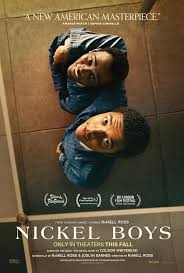





Paddington in Peru
Not entirely necessary, but thoroughly enjoyable. Antonio Banderas and Olivia Colman were clearly having a blast.
The Piano Lesson
Based on one of August Wilson’s stage plays, this is a supernatural drama, with a fabulous cast (Samuel L. Jackson, Danielle Deadwyler, John David Washington amongst others). It has been described as ferocious Southern Gothic, and it’s intense and moving.
Priscilla
Another ‘invisible woman’ (see above). We see Elvis through her eyes, as a lovestruck teenager, and then as a fearful, isolated and lonely wife, as he cheats on her, encourages her to take a variety of pills, keeps her away from his life on tour and from friendships with contemporaries – controls all aspects of her life. She is touchingly portrayed by Cailee Spaeny (also seen in Civil War), who conveys her naivety, her headstrong teenage determination to be with Elvis, and her painful realisation that this relationship will never be what she dreamed it would be.
Queer
An adaptation of William Burroughs’ semi-autobiographical account, with Daniel Craig on mesmerising form, seedy and needy, as a gay (queer) writer travelling in Mexico and Ecuador and picking up random men before falling for a younger man. Reviewers variously describe the sexual content as explicit or coy, which presumably depends on what you’ve been used to seeing on screen previously, though it does remind me how we are all inured to straight sex scenes on TV and in film and how much less so to gay sex. But I wasn’t really expecting the veering into dream and hallucinatory sequences, and the later parts of the film were sometimes baffling, sometimes alarming, sometimes gross… My brother (previously seen in Conclave) was in this as well though to my shame, and despite knowing that he was a barman (makes a change from clerical roles) I failed to spot him. Lesley Manville turns up, in an extraordinary and vanity-free performance that just shows what a marvel she is. I was thinking on and off throughout Queer of Under the Volcano (the book, rather than the film), and how that left me feeling quite woozy, as if I’d been overdoing things myself.
The Quiet Girl
A quiet film, a perfect film. Everything in this adaptation of Claire Keegan’s Foster is about the tiny details, the repetition of images, and very little is about what is said. Catherine Clinch’s performance as 12-year-old Cait is extraordinary. The end made me sob but along the way I was moved by those tiny details, Cait having her hair brushed with such tender care, a biscuit left on a kitchen table without any words being spoken (and that biscuit being squirrelled away in a pocket rather than scoffed straight away), Cait’s joy in her daily runs to the post box at the end of the lane. Wonderful.
The Quiet Place Day One
The Quiet Place launched us straight into a world where noise was deadly dangerous, and survivors had adapted to live with as little sound as possible. Here we see how this came about. It’s not a prequel in the sense that it focuses on the family at the centre of the original movie; here we see Lupita N’yongo and Joseph Quinn navigating a terrifying new world, and it’s an excellent and genuinely heart-stopping drama even though we know from the outset what the characters don’t, that silence is the only way to survive.


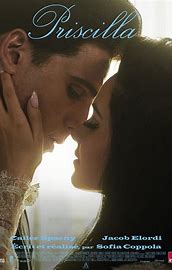



A Real Pain
Outstanding. The volatile emotional shifts of Kieran Culkin’s Benji take the audience with him – we laugh out loud and then are reduced to silence and to tears, at one moment identifying with and admiring him, and at the next understanding why Eisenberg’s David finds him so exhausting and frustrating. It frequently subverts our expectations, using Benji as a catalyst, and unsettles our assumptions about how one should respond to Holocaust sites. I loved the very low-key scene where they go to lay stones at the apartment where their grandmother lived. And the ending.
Rocketman
This one gets past my biopic problem by being fantastical rather than ploddingly realistic, and Taron Egerton does a fabulous job with the role of Elton John.
Santocielo
Endearingly silly film about angels and an unexpected pregnancy. Featuring Aidan Hallett as an angel.
The Six Triple Eight
The story sounded, and was fascinating, but sadly the treatment is so clichéd, the script is either inspirational speechmaking or folksy girly chitchat from a rather stereotyped group of characters, and the central topic, of just how a battalion of African-American women managed to turn around a monumental backlog of mail to get letters to soldiers on the front line and families back home, gets a much more cursory treatment than it deserves. It wasn’t just determination to prove that they could do it, bloody hard work, or loyalty to their commanding officer (an excellent Kerry Washington) – it was the imaginative application of skills they’d learned in their pre-army lives, and I really wanted to know much more about that, rather than yet another scene with our heroine weeping in the Ladies over her lost fiancé.
The Sound of Metal
Deafness and signing has been a bit of a theme in this year’s watching – see below for Code of Silence and Reunion. Here, Riz Ahmed’s Ruben has to come to terms with hearing loss, a shattering experience for a musician. As the Guardian’s reviewer says, he describes ‘the physicality of signing – of using the whole body as an expressive tool. … While Ruben may hide behind his words, Ahmed has never been more emotionally expressive than when communicating through ASL.’
Wallace and Gromit: Vengeance Most Fowl
Very funny, very clever, and the perfect follow-up to a family Christmas meal.
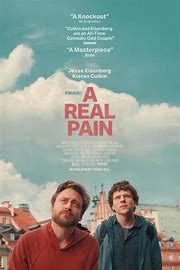

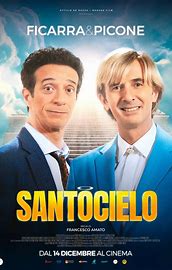
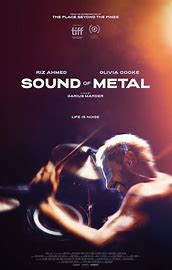

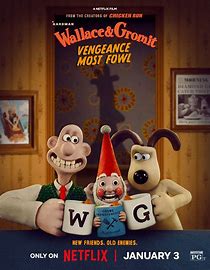
Television
Loads of crime here (as per). A lot of it is pretty standard fare, but there’s some that stand out, notably Fargo, Code of Silence, Reunion and The Madness, and in the realm of true crime, A Cruel Love. I do a lot of grumbling below (as per) about the clichés that infect almost everything in this genre. The scene where our hero is trying to download something from a computer that’s going really slow, and the direction makes it look as if the bad guy is right outside the room and must catch them at it but no! Bad guy comes into the room and there’s no sign of our hero, or his/her USB. The way apparently sensible people decide that it’s sensible to withhold absolutely vital information or circumvent the rules when it will quite obviously cause massive problems for them and everyone else when their lies or evasions are exposed. If the plot is solid enough, the performances persuasive enough and the writing (particularly the writing of character) clever enough, even these annoyances can be brushed aside. But all too often I get hacked off, and start heckling from the sofa and it does detract from my enjoyment. But nonetheless, if there’s a new crime drama out, I’ll probably give it a go.
There’s been some outstanding SF in the form of Andor, The Last of Us and Who, and outstanding drama with Adolescence. And just the one proper comedy – Shrinking. Looking at the list, I should probably watch more comedy, though I did actually laugh a lot at Fargo, Department Q, and White Lotus…
Special shout out to some actors whose work I’ve particularly enjoyed: Aimee Lee Wood in Toxic Town and The White Lotus, Rose Ayling-Ellis in Reunion and Code of Silence, and Robyn Malcolm in After the Party and The Survivors. And a sad farewell to some that we’ve lost since the start of 2025, each of whom played key roles in long-running series that we loved: George Wendt (Norm!), Loretta Swit (Hotlips Houlihan) and, heartbreakingly, Michelle Trachtenberg, Dawn in Buffy the Vampire Slayer, who was only 39.



Adolescence
I’m not sure that I have much to add to the many column inches that this has generated. It is a superlative drama, not because of the technical triumph of the continuous shot, but because of the way it uses that technique to give the story breathing space, not rushing from one moment or location to the next. The performances are of course brilliant, and heartbreaking.
After the Party
Excellent NZ psychological drama, in which we don’t know for sure if a crime has been committed, and in which the main protagonist (a glorious performance by Robyn Malcolm) is – intentionally – extremely annoying and prompted a lot of shouting at the telly, but remained absolutely convincing throughout.
Andor
I’ve never been a full-on Star Wars person, even though I’ve seen all of the films (apart from that other trilogy which I understand I don’t need to bother with), and enjoyed all of them, especially Rogue One, for which Andor is a prequel (R1 is in turn a prequel to A New Hope – have I got that right? Someone will undoubtedly tell me if not). Anyways, I’m not (evidently) totally au fait with Star Wars lore, and so have been selective in which spin-off series I’ve watched. Of those, this is the best – great storytelling, great, complicated characters, real tension. And great performances from a rather classy cast. Lovely to see Thierry Godard (previously known as Gilou from Spiral) pop up as one of the rebels on Ghorman, and I liked the fact that the Ghormanese (?) sounded like they were speaking French even though they obviously weren’t!
An’t Ei-lean (The Island)
Notable for being largely in Gaelic, with sub-titles. A decent crime drama, with the usual ingredients – including people behaving with unfathomable pinheadery (did our heroine really imagine that her past links with the victim and family would remain undiscovered if she investigated the crime?).
Black Doves
The body count is sky high, the violence quite startling, and it’s all extremely entertaining, with a lot of rather black humour, and excellent turns from Keira Knightley, Sarah Lancashire, and Ben Whishaw (a very long way from Paddington).
The Black Forest Murders
A good, solid German crime drama based on a series of real murders. It’s understated and unsensational and conveys the tedium and frustration of investigation, without being either tedious or frustrating (see also Breakthrough, in a similar vein).
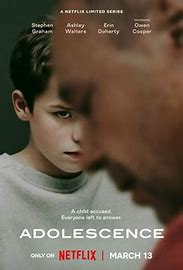
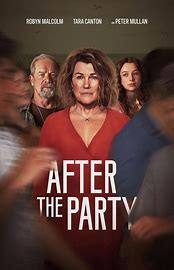
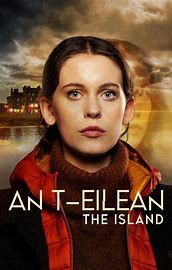

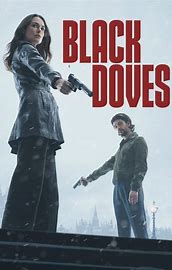

Black Mirror
As usual, this latest season is a mixed bag. Personally, I loved Hotel Reverie (which features on some people’s least fave episode list, but there you go), Common People, Bete Noire (though I wasn’t totally on board for the ending) and Eulogy but wasn’t convinced by Plaything and USS Callister was fun but not as good as I’d anticipated. The casts are always stellar, and it’s at its best when the tech is not only interesting but imaginable as an extrapolation of what can be done now.
Black Snow
Australian cold case crime series – I watched Season 2 having not seen 1. Entertaining enough, but the lead detective is a pain – insubordinate yob with a messed up personal life who nevertheless ends up solving the case by breaking all the rules, which is hardly a fresh take.
The Bombing of PanAm 103
I haven’t seen the other recent dramatisation of these events, so can’t compare their respective approaches, but this one walked a slightly uneasy line between a clear focus on the investigation, with its many dead ends, communication breakdowns and political minefields, and the personal stories of the bereaved. At heart it was a procedural drama, and most at home in that arena. The opening episode, portraying the crash itself, was extremely well handled, and movingly conveyed the shock, confusion and grief of the relatives of passengers, and the local people who lost homes and family members. But the attempt to keep that thread running through the rest of the drama was less successful and whilst it stayed the right side of maudlin, it did feel a little like an obligation, and not the real focus of interest. Whether I would have been persuaded by the other dramatisation that the wrong conclusion was reached in the investigation I don’t know. And whether this drama was ‘necessary’ as some reviewers asked – well, how much of the drama I watch is in any sense necessary? In the case of dramatisations of real events, I’d say that they do serve a purpose. I remember Lockerbie vividly, not through any personal connection but just through watching the news around that time – but my recollections are very fragmentary – anyone even ten years or so younger than me might well barely remember it – and it was historically and politically significant.
The Breakthrough
Swedish drama about an unsolved murder and the dogged commitment of a police officer to find the perpetrator. Low key and subtle.
Call the Midwife
I’d seen the odd episode, but mainly the Christmas specials which inevitably ladled on the sentiment a bit lavishly given the season. So I started at the beginning and worked my way through from 1957 to 1971, and was absolutely fascinated, and impressed by how hard-hitting it often is, even if it tends to leave one with at least glimmers of hope and possibilities of redemption. Given that I cry every time I see a baby being born on screen, this meant at least three guaranteed weeps per episode, and that’s not reckoning with the wider storylines, thalidomide, backstreet abortions, wretched poverty and so on. I found the treatment of religious faith fascinating too, and strangely unalienating to me as an atheist viewer. I could do without Vanessa Redgrave’s pious opening and closing words though – for the early episodes, where old Jennie was reflecting on young Jennie’s experiences, this was fine, but once that connection was lost, all we had was platitudes and pieties, and Redgrave’s voice adds way more gravitas to the words than they can carry. However, I will be there for as many series as there are, will undoubtedly weep in every episode and if I have to grit my teeth for the occasional sentimentality overload that’s a small price to pay.
Code of Silence
Two thrillers on TV this half-year, in which deafness and lip-reading play a huge part (see also Sound of Metal in the film list above). See below for Reunion – both star Rose Ayling-Ellis, whose star has risen considerably since Strictly brought her to the attention of non-Eastenders fans, and she’s superb in both. This one was particularly fascinating as it showed the process of lip-reading, how some sounds are impossible to distinguish from one another, so the lip-reader has to construct the words by combining what is clear with what is likely given the context. It’s very impressive. The plot veered into improbability and thriller clichés at various points but maintained a high level of tension to the end. And whilst Alison did behave recklessly at various points, her motivation – a mixture of the intoxicating effect of being really listened to and taken seriously, and her attraction to one of the people she’s being asked to spy on – was plausible (thanks to Ayling-Ellis’s performance as much as to the script).
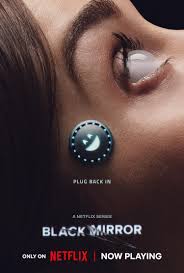

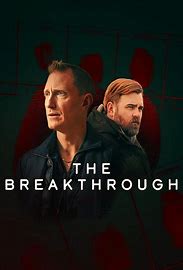
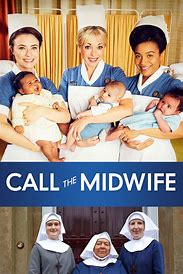


A Cruel Love
Excellent account of Ruth Ellis’s story, with a great performance by Lucy Boynton in the lead role. Coincidentally I was reading Nadifa Mohamed’s The Fortune Men whilst watching this series (not literally at the same time, you understand) about a miscarriage of justice in which a Somali man was executed for a murder he had not committed. Ellis, of course, did kill David Blakeley, but that she was hanged for it was as much to do with society’s disapproval of her personal morality as with the strength of the case for first-degree murder.
The Day
This Belgian series portrays the events – v dramatic events, starting with a robbery and the taking of hostages – of one day, in twelve episodes, by showing us the same incidents from different perspectives (the police, the hostages, the perpetrators). It maintains the tension pretty well until the final couple of episodes by which point I admit I was starting to weary a little.
Department Q
By rights I should have been annoyed by this. The lead character is a misanthropic maverick who never does what he is supposed to, is rude to absolutely everyone and gets himself into unnecessary pickles en route to (of course) solving the case. The cast is great but as so many crime dramas show, that’s unfortunately not always enough. It turns out though that when the dialogue is this sharp and funny (very dark humour), when the characters behave with consistency even if they are consistently being dicks, and when there is, despite all the above, real heart in some of the relationships, I can thoroughly enjoy the ride, and will look forward to another season.
Dickensian
I have no idea why I didn’t watch this when it came out in 2015, and even less idea why it was cancelled after only one season. I loved every minute of it, and Dickens’ world is so rich and complex that they could have continued to mine it for ideas as good as these. But at least they did this, with a splendid cast, beautifully written, and a joy for anyone who loves the books.
Doctor Who
I loved Ncuti Gatwa as the Doctor. He brought something different, something joyous, a smile that could light up galaxies, a lightness that belied his capacity for anger. I had hoped for a much longer tenure, but I guess Who got him just as his star was rising, and there were too many opportunities out there for him to resist. We don’t know (at least at the time of writing) for how long RTD had known that he’d only have Gatwa for two seasons, so whether urgent rewrites were required to factor in a regeneration, or whether that was always the plan. And we don’t know (at the time of writing) whether Billie Piper is returning as the Doctor or in some other capacity (the credits didn’t say, as they have done in previous regen episodes, introducing BP ‘as the Doctor’…). All that aside, Gatwa’s second season was just the right mix of complicated ideas, humour, tech and legend. I particularly loved ‘The Story and the Engine’, with its Lagos setting and use of West African folklore (and names – Abena means girl born on a Tuesday, which I know because I am an Abena, or would have been had I been born Akan/Ashanti). Allons-y, I hope, to more Who, whoever the Doc turns out to be. But I’ll miss this Doc.
Dope Girls
This reminded me of Kate Atkinson’s Shrines of Gaiety and indeed, I discovered that both are based on the same real woman, Kate Meyrick, who ran nightclubs in Soho during the 20s and 30s, and was arrested and imprisoned on a regular basis. The series takes liberties with the historical Meyrick but the setting is vividly conveyed, and the performances are great. Julianne Nicholson’s performance as Meyrick (Kate Galloway in the series) also had quite strong Shauna from Yellowjackets vibes at times.





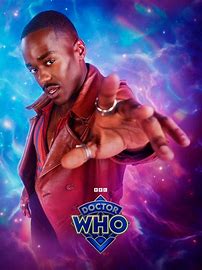
Fake
We know from the outset really that Joe is a no-good SOB. That Birdie chooses not to see the red flags is, however, understandable in context. And if the series hadn’t been called Fake, would we have seen them quite so early or so clearly? The emotional tension is built up skilfully and the performances are great – and whilst we aren’t in any doubt that Joe is a wrong ‘un, we don’t know quite what he’s up to, and the drama doesn’t give us easy or tidy resolutions. Very well done.
Families Like Ours
Brilliant drama, set in a near-future Denmark where climate change has forced the country to, in effect, shut down and its citizens to migrate to whichever countries will offer them a home. It’s a ‘what if’ narrative, and it tackles lots of aspects – the scope for corruption as those who know what’s coming try to sell up before other people realise that property and land will soon be worthless, the resistance of other countries to an influx of climate refugees, and the smaller scale impact on families as members are forced to take different routes to safety, and some to take huge risks to reach each other. What has remained with me, more than the personal dramas, is the way it portrays the impossible choices, the inexorable sequences of events and the way in which potential sanctuaries very quickly pull up the drawbridge.
Fargo
One of the best of the series spinning off from the original Coen Brothers film. Juno Temple is wonderful in the lead role, and right from the start, I’m rooting for her, as I did for Frances McDormand’s Marge, and literally sitting on the edge of my seat and holding my breath during the tensest bits of the plot. As always there’s lots of dark humour here too.
Get Millie Black
A cop series set in Jamaica, with a cop who’s on a personal mission, never knowingly does what her superiors tell her to, and so on. Excellent plot, nevertheless, and a protagonist who is convincing even when annoying.
I, Jack Wright
Cracking cast play various members of a family whose members may or may not be involved in the death of patriarch Jack Wright, but who are all up to something and lying to pretty much everyone else about everything. It’s very clearly set up for a second series and I’ll be there for it. Written by Chris Lang, the writer behind Unforgotten which is consistently one of the best series out there.
The Last of Us
Utterly gripping, and for those of us who have never played the game, there are absolute gut punches in this second season. I won’t say more for fear of spoilers, but it’s beautifully done, and Pedro Pascal and Bella Ramsey are superb as the two main leads.



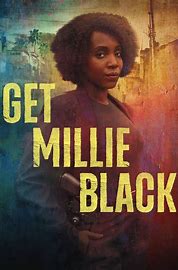


The Madness
Colman Domingo is splendid in this paranoia fest as a man who finds himself being framed for murder, and we’re with him on every step of the way, as he tries to stay just ahead of the various forces who are closing in on him. It’s breathless and thrilling, and whether or not it’s entirely plausible, we don’t really fret, because we’re invested.
Malpractice
This starts off brilliantly as a study in just about controlled chaos on a psychiatric and an obstetrics ward, where staff are struggling to meet the needs of challenging patients whilst managing their own personal crises and pressure from management. The main protagonist behaves idiotically but notwithstanding that there are real issues and it’s all extremely tense. Towards the end it does get a bit generic thriller, with a whistleblower rocking up at the very last minute to save the day, and a dramatic showdown where the bad guys are exposed. That tends to sideline the more complicated (and very interesting) questions about how patients with diagnosed or undiagnosed mental illnesses are treated in a medical context, or how life and death decisions can be made in complex situations, or about resourcing of psychiatric care, etc etc. But overall, a decent medical drama.
Miss Austen
A very different pace to much of the above (and below), with the ever-marvellous Keeley Hawes as Jane’s sister Cassandra, addressing the mystery of why many of Jane’s letters were destroyed after her death. It’s speculative, of course, but persuasive, and beautifully done. I also watched an excellent BBC documentary series, Jane Austen: Rise of a Genius and am hankering after a full Austen re-read – perhaps starting with Mansfield Park, the one I did for A level that I haven’t re-read since.
Missing You
It’s another Harlan Coban thriller. Plot holes aplenty, great cast rather wasted on shallow characterisation and clunky dialogue. You know what you’re getting with these, and they pass the time.
The Night Agent
Not a patch on the first series (with which I had some issues) – disbelief simply could not be suspended as the improbabilities multiplied with each episode, and our hero’s exceptionally annoying girlfriend behaved idiotically at every turn. I watched to the end, inevitably, but will try to resist series 3 if there is one.
The One that Got Away
A clever, complex narrative (an English language version of the Welsh drama, Cleddau), not without some of the usual crime drama tropes, but they’re used intelligently. I did want to shout at both the leads, but particularly Richard Harrington’s Rick, quite often, but they were both consistently drawn and convincingly played.

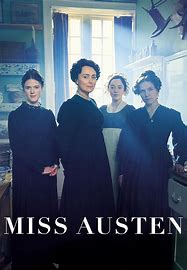
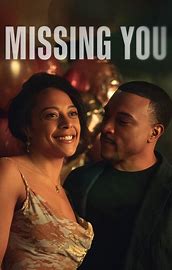

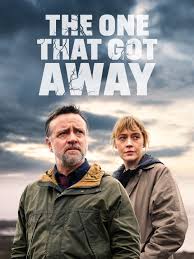
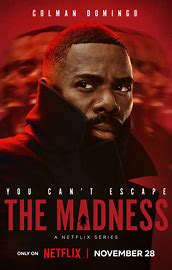
Patience/Astrid: Murders in Paris
Patience is a British remake of French series Astrid: Murders in Paris, and some episodes of the former follow very closely the original plot lines as well as the premiss, which is the semi-official recruitment of an autistic young woman who works in the archives in active investigation of crimes because of the way she observes minute details and perceives patterns. Ella May Purvis, who plays Patience, is herself autistic, and I found her performance particularly persuasive, and often very touching.
Prime Target
This started off well, with an intriguingly abstract concept (to do with prime numbers, though I can’t claim I entirely understood) but meandered off into standard thriller territory disappointingly quickly, with all the usual tropes deployed. The performances are good and the script decent, at least.
Protection
This had a cracking cast – Siobhan Finneran in the lead – and again an interesting premiss, this time about a breach of security regarding a family in witness protection – but again it got mired in too many of the standard crime drama elements. Nonetheless, it was pretty gripping.
Reunion
Initially I noted this one as a must-watch because it was filmed in and around Sheffield, including some locations very close to home. But in the end, I was so focused on watching the drama that I forgot to look out for the places I expected to recognise. As noted elsewhere (see Code of Silence and Sound of Metal) deafness has been an unexpected recurring theme in recent weeks. The protagonist has been failed by the education system, manipulated by the justice system and failed again by the prison and probation systems (‘oh dear, we forgot to book a BSL interpreter’, is a recurring motif, and the consequences of this are from from trivial). There’s a thread of real anger running through the plot and reflected in the powerful central performance by Matthew Gurney.
The Rig
Series 2 of this sci-fi environmental thriller (shades of John Wyndham) was let down by a terribly clunky script. I don’t remember Series 1 being as bad as this, and I am very sensitive to clunks. I suspect a third series is on the cards, but I might not bother, which is a shame because there are interesting ideas in there.
SAS Rogue Heroes
I loved both series of this. It’s odd in a way – if I met any of these mad bastards in real life I’d want to give them a wide berth, but the series humanises them without whitewashing the mad bastardry. The history of the invasion of Sicily and the battle for Termoli wasn’t familiar to me, and I know that the disclaimer broadcast at the start of every episode means that I can’t rely uncritically on this as a historical source, but it was interesting, and broadly accurate enough, nonetheless. Watching this kind of intense action heroics is something I’ve always enjoyed, and the WW2 context allows me to enjoy it without qualms, because these mad bastards are risking everything in the fight against a real evil.





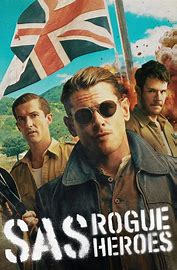
See No Evil
This is from 2006, with Maxine Peake as Myra Hindley. I wasn’t sure I wanted to watch it but the cast (Maxine Peake in particular) suggested to me that it would not be schlocky or voyeuristic. We see events through the eyes of Myra’s sister Maureen, and her husband Dave – the latter was implicated early on in the murder of Edward Evans, but then cleared of involvement, and the impact of the crimes on both of their lives was huge and long-lasting. When we first meet Hindley and Brady, they have already murdered and so the only murder that we see (in glimpses) dramatically is that of Evans, as it was witnessed by Dave. This decision means that the focus is not on what Hindley and Brady did, but on the investigation and the repercussions of the case.
Shrinking
This made me laugh out loud more than anything else I watched on TV this year and also made me cry quite a lot. The cast is brilliant, the dialogue snappy and rude and funny, the humour and the heartbreak nicely balanced and interwoven. Harrison Ford is an absolute joy.
Strike: The Ink Black Heart
Based on by far the weakest of Robert Galbraith (aka J K Rowling)’s detective novels, the TV version does what it can but isn’t able to stop it being both muddled and rather tedious. It’s all about a cartoon but too many of the characters are cartoonish.
The Survivors
Adapted from one of Jane Harper’s excellent thrillers, this gets its claws into you right from the start and doesn’t let go. It’s not just about twists and cliffhangers, it’s about the legacy of a crime – grief and guilt – and how that shapes and twists relationships and communities.
This City is Ours
The territory is familiar – a crime family facing issues of succession and change and jostling for power amongst the younger generation. The cast is excellent – Sean Bean is always hugely watchable, and I’m always absurdly pleased when he retains his Yorkshire accent( even though here the setting is Scouse). And whilst it doesn’t offer any huge surprises in terms of the outworking of the plot (no, you can’t just walk away from OC, particularly when it’s a family business) it achieves real tension along the way, and some nicely nuanced characterisation.
Toxic Town
Based pretty closely on the real court case about a cluster of infant abnormalities resulting from toxic waste. Some characters are composites as is normal in these things, and it plays out v much like Mr Bates, especially in the scene where they’re thinking no one will turn up to the first meeting, and then there’s a trickle of people, and then a flood… The central performances are excellent – Jodie Whitaker, Claudia Jessie and Aimee Lou Wood as the three mothers at the heart of the case, and Rory Kinnear as the lawyer who decides to take the case on.

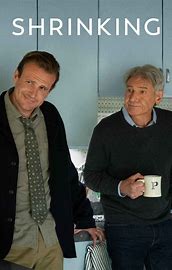

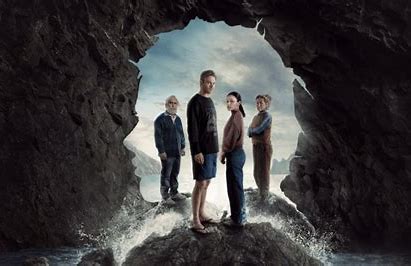
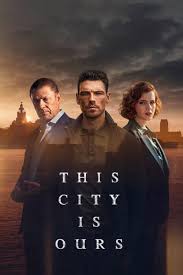
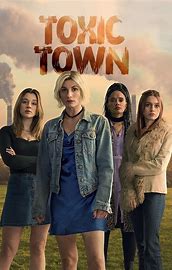
Towards Zero
Stylish and engaging Agatha Christie adaptation with a fab cast having a grand old time, and the dénouement keeping me, at least, guessing till the end. Christie at her best (for me usually the Marples rather than the Poirots) has a kind of darkness that lingers with you after the whodunnit question is answered and this isn’t one of those, but most entertaining.
The Vanishings
This has a basis in some true, unsolved cases where women disappeared. But unfortunately the series just uses that as an excuse for a clichéd women-in-peril set up, with far too many sub-plots and red herrings, characters behaving with unfathomable pinheadery and a ludicrously improbable dénouement that clearly sets up a Season 2 which I hope I will have the strength of character to resist.
Vera
Ah, Vera, I will miss you. A great character, with a strong supporting cast (including many who’ve gone on to even greater things, like Ben Kingsley-Adir and Cush Jumbo) and consistently well-written and structured plots. Refreshingly, the murders aren’t the baroque constructs of a fiendishly clever serial killer but rooted in people’s chaotic past and present lives (as with Unforgotten). And the landscapes are glorious.
Virdee
Speaking of ‘the baroque constructs of a fiendishly clever serial killer’… I was really, really disappointed in this. The plot holes were so numerous and so sizeable, the fiendishly clever serial killer’s motivation and intentions were so muddled, and it reminded me at times of the Bond movies where the evil mastermind intent on world domination, having Bond at his mercy, hangs about explaining things and generally engaging in displacement activity, thus giving Bond time to escape. The setting for Virdee was great, many of the characters were great, but the plot just got sillier and sillier and I lost patience.
The White Lotus
I caught on to this rather late, when everyone was talking about series 3 and a friend was incredulous that I’d never watched it. Huge, huge fun, with lots of characters to boo and hiss at (a minimum of one massively entitled man-baby per season, in particular), but always a couple to identify with or at least root for. I wasn’t very successful in avoiding spoilers (the perils of catching on to things rather late), so some of the shocks were not as shocking as they might have been, but the cast was outstanding, and I had a grand time.
Zero Day
I’m not sure I enjoyed this quite as much as Lucy Mangan, who described it as ‘first and foremost an astonishing amount of fun – firmly grounded by De Niro and his portrait of a good man struggling to do the right thing in a world that offers corruption at worst, and only compromise at best’. But it was fun, and De Niro was a blast, even if the denouement didn’t entirely convince.


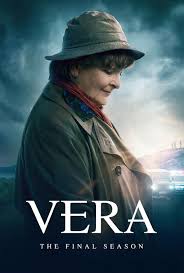

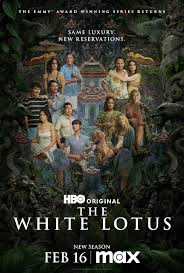

Documentary
The Balkans: Europe’s Forgotten Frontier
Not a travel programme, as one might guess from the presenter. Katya Adler focuses on history (mostly very recent) and politics to explore the various new nations that make up the Balkans. Very interesting, mostly new territory for me.
Britain Under the Nazis: The Forgotten Occupation
I knew very little about the occupation of the Channel Islands, though I do remember a book I read as a child, set on a fictional island nearby, and written in 1941, about the early stages of invasion and occupation (Mary Treadgold’s We Couldn’t Leave Dinah). It seemed surprising that so little has been written about it, given that the islanders were the only Brits to experience occupation of their homes, and that their experiences are, in microcosm, those of occupied peoples in mainland Europe. But given how long it took for the full picture, the shades of grey, to emerge in relation to the experiences across the Channel – initially polarised into splendidly heroic resisters or scoundrelly collaborators, but actually much more complex as people negotiated how to survive – perhaps I shouldn’t be surprised. The documentary is very well done – that it leaves me wanting to know more is a tribute rather than a criticism – with dramatised sequences drawn from the wartime diaries of a small number of islanders.
7/7 The London Bombings
Excellent account and analysis of the terrorist attack. Of course I remember the events from the time, but there was a lot here that I hadn’t known, particularly relating to the second, failed attack, and the killing of Jean Charles Menendez. The interviews with victims and first responders are powerful and profoundly moving.
The Lost Women Spies
I wish this had either been straight doc or straight drama. The hybrid approach here resulted (as it often does with these things) in rather wooden dramatic interludes, with frankly awful dialogue. A shame, given the power of the story it’s trying to tell. It would be almost impossible to make an account of the wartime service of Odette Hallowes, Violette Szabo and Noor Inayat Khan dull, and this isn’t, but I winced at the scenes where Atkins and Buckmaster have conversations that seem to consist of one of them saying something and the other repeating it incredulously. And that these were included at the expense of seeing, for example, Inayat Khan’s capture and attempted escapes is bizarre.
No. 1 on the Call Sheet
A two-parter about the black actors who have achieved that status of no. 1 on the call sheet (even if not always no. 1 on the payroll), featuring, well, pretty much everyone you can think of who’s still with us (and it paid heartfelt and heartbreaking tribute to Chadwick Boseman, who isn’t). It wasn’t the deepest exploration of the issues but it wasn’t just a superficial celebration either, and many of the individual testimonies were very powerful.
Vietnam: The War that Changed America/Turning Point: The Vietnam War
Two fascinating, powerful documentary series. The first focuses on the impact of the war on America and Americans, whilst the second, the latest in the excellent Turning Point series (earlier series have covered 9/11, and the bomb and the Cold War), takes a more straightforward chronological approach, and includes interviews with Viet Cong fighters as well as US veterans. It’s pretty devastating stuff – not just the brutality but the cynicism of those who allowed the war not just to drag on but to escalate.
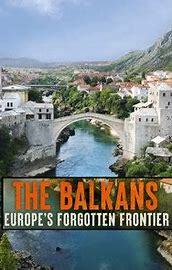




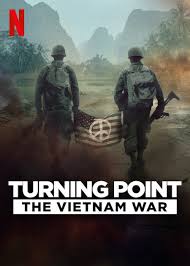
Dad
Posted by cathannabel in Personal on June 16, 2025
John Hallett, 26 December 1927 – 30 March 2025
Trying to sum up anyone’s 97 years of life in a not unreadably long blog post is a challenge. In the case of my Dad, John Hallett, who died on 30 March, it’s impossible. As a friend put it, at the celebration we held for his life, he packed at least two lifetimes into those 97 years. And each time I talk or write about him, someone reminds me of some other project, activity or passion that I’d forgotten, or never even known about. He set the bar very high for us all – whatever I’ve achieved in my life seems small beer in comparison – and he wasn’t always very good at telling us how proud he was of us (this was a generational thing, and certainly learned from his parents), though we know he said it to others. My niece had the poignant experience of hearing her grandad, who no longer recognised her, telling her about his lovely granddaughter and great-grandson and how proud he was of them. Most importantly, we knew, always, that we were loved, and that our parents’ love was not conditional upon us achieving things, and that gave us the freedom to be who we wanted to be, who we were meant to be.
John’s early life was pretty conventional – his father was a civil servant who’d fought in the first war, and was an active member of the Home Guard in the second. They lived in Thornton Heath, where Dad was born in 1927, and then moved to North Harrow with his two younger siblings. As a young teenager during the War, he enjoyed the excitement of spotting aircraft and watching the searchlights to cheer as German planes were shot down, until one of his schoolfriends was killed along with their family during the Blitz – a sobering experience. This did not, however, dampen his enthusiasm for aircraft, and the first stage of his career was in aircraft design.
John took up an apprenticeship at de Havillands, leaving school against the wishes of his father, who had wanted his eldest son to follow him into a stable career in the civil service, and he stayed there for four years after the apprenticeship, working in the Design Office.
He left de Havillands because, as a Christian pacifist, he could not countenance working on military projects, and he had begun to think of a future as a teacher, inspired by people he knew and admired. He trained at Westminster College, and then took up his first teaching post at Chatham Technical College (teaching technical drawing, maths, and RE). By then he was married to Cecily, who was to be his strength and his stay until her death in 1995. They’d known each other for a long time, through church, but only gradually came to realise that their friendship was blossoming into love. They lived at 24 Blaker Avenue, in Rochester, Kent. I was born in a Chatham hospital in 1957, Aidan and Claire were born at home in 1958 and 1960 respectively.
The faith that he and Cecily shared was fundamental to their lives, and whilst I do not share their faith, I do share so many of their values, their political beliefs and their approach to what is important about life. They were pacifists, members of the Fellowship of Reconciliation. They were passionately anti-apartheid (many of their ‘expatriate’ colleagues in West Africa at least considered moving on to South Africa or Rhodesia when Nigeria imploded into civil war, but that idea was anathema to them). I learned from a very early age about the slave trade, visiting forts along the Ghanaian coast where slaves had been held before being transported across the Atlantic, and was aware of civil rights struggles in the US and anti-apartheid activism in South Africa and Rhodesia – political issues of the day were a staple of discussion around the dining table each evening. They were socialists, staunch Labour voters. And they were concerned about the environment long before it was the norm.
They both became interested in the idea of working in West Africa, in one of the newly independent nations, but realised that John would need a University degree to teach there. So he did A levels at a local technical college and then enrolled at City University in London, on a scheme designed for those who had been unable to study to degree level during the war years, and obtained a First in Physics and Maths. John was studying part-time alongside his teaching post, whilst Cecily managed the home in Rochester, and brought up the children. John’s father Dennis, a deeply conservative man, never came to terms with the plan to work in West Africa (or ‘darkest Africa’, as he consistently called it), and when we returned home on leave, John had to wait until his father had left the room before talking to his mother about our experiences there.
The family flew out to Ghana in 1960 (with three children, of whom I am the eldest, then aged 3), and a new home on Asuogya Road, on the campus of Kwame Nkrumah University of Science & Technology in Kumasi. Their fourth child, Greg, was born in Kumasi in 1962. John hadn’t had a conventional route to University teaching, and used to comment that he’d arrived as a lecturer having never attended University before – he also often felt that he was only one lecture ahead of his students.
Both John and Cecily became involved in the life of the University, particularly in chamber music concerts. Cecily was an accomplished pianist, and Arthur Humphrey, a colleague, friend and honorary grandparent, played the spinet and recorders. They also held more informal musical evenings, which John’s colleagues and students from the University regularly attended. John preached regularly (both he and Cecily were Methodist lay preachers) at small village churches outside Kumasi, one of which presented (and robed) him in a splendid kente cloth on his last visit. We still have the cloth, somewhat faded and a little damaged after all these years, but still a beautiful reminder of the life we had in Ghana.
He taught Physics and Maths at KNUST but became increasingly interested in pedagogy, rather than in the research aspect of his subjects (despite pressure from his Head of Department – he resisted the idea of, as he put it, knowing more and more about less and less), and was an examiner for the West African Exam Council, and Chief Examiner for O level (the latter involved him designing practical tests which could be carried out in any school, and visiting schools to assess whether they had the necessary apparatus). He was involved with the Ghana Association of Science Teachers, and wrote a Physics O level textbook tailored to the resources available in West African schools and to the experiences of the students, which remained in print for many years.



This growing interest in education per se led him to take up a post at Ahmadu Bello University in Zaria, Northern Nigeria and the family moved there in January 1966. I don’t recall the first part of our journey (by sea from Tema to Lagos) but vividly remember the 600 mile train ride from Lagos to Zaria. The timing of our move turned out to be most inauspicious, as a series of coups and counter-coups rocked the region, and massacres of Igbo people took place in May and September of that year in the area where we lived. We were not in danger at this stage – the violence was very precisely targeted at Igbo people – but of course it was traumatic for the adults to witness what was happening, often to people they knew, and they kept as much of this from us as possible.
The only incident that I recall was when a group of men approached our house, and Cecily and a neighbour took all of the children upstairs and put a record of children’s songs on, whilst John and the neighbour’s husband went outside to speak to them. Strangely, in my memory the men were carrying sticks, but in reality, as I discovered much later, they had machetes. They turned away from our house, but went on to kill a number of people nearby.
I remember being aware of conversations between the adults that stopped abruptly when they realised I was within earshot, but it was not until my teenage years when I pieced together the fragments to understand what had been happening, and this was formative. There is one particularly powerful story that I discovered from talking to my parents and visitors who had been in Nigeria with us. Opposite our house was an unoccupied bungalow, in which we used to play sometimes. I recall being forbidden to do so – snakes were mentioned and I needed no other deterrent. In reality, John had discovered a couple of young Igbo men hiding there. He got them into the family car, covered in blankets, and drove them to the army base, where it was hoped they would be safe. Meanwhile a friend who worked for the railways commandeered a train to take Igbo refugees south to safety, and these two young men joined that group. Tragically, the train was deliberately derailed, and they and others who were fleeing the pogroms were murdered. On both of these occasions, John felt that he had to at least try to intervene. I have often wondered how he felt as he approached the armed men outside our house, and how Cecily felt, knowing what he was doing. And how he felt as he drove those young men to what he hoped might be sanctuary, knowing that if the car was stopped and searched, they would be killed, and he might be in danger too. I don’t know, because he never spoke of these events in personal terms. I believe he felt that he had no choice but to act as he did, whatever the risk.
As I learned about these events, which had happened around me, without my knowledge or understanding, I found I needed to understand the wider issues, and this lead me to read widely about Partition, the Holocaust and the Rwandan genocide.
The family returned home on leave in the summer of 1967, but the worsening situation meant that Cecily and the children could not return, and John travelled back to Zaria alone, to complete his contract, returning to the UK in Easter 1968. We did visit him at Christmas, a rather nervy visit given the volatility of the situation and the presence of armed (but barely trained) soldiers around the city.
Someone once asked me if I blamed my parents for taking us to West Africa, a question that utterly baffled me. On the contrary, I’m in awe of their courage in taking that step, and very grateful for it too. We gained so much – on our return to the UK our horizons were so much wider than those of our contemporaries, and whilst that meant we had a lot of catching up to do on popular culture and so on, it gave us a different perspective, and I think a more generous one. Certainly those years – and the culture of talking about politics and ethics and religion in our home – informed each of us in our developing views about all of those things as we grew older. We would not be the people we are, had our childhood been spent in England.
Cecily and the children were living in the family house in Rochester, and places were found for us at the local primary schools, but on John’s return he took up a post in the Education department at Trent Polytechnic, where he would remain until his retirement. He and I found a temporary home with one of his old friends (a fellow member of the ‘Brew Club’ at Westminster College), so that he could start at Trent, and I could start at Queen Elizabeth’s Girls’ Grammar School in Mansfield. The rest of the family moved up to Nottinghamshire once our new home in Ravenshead was completed.
Whilst at Trent, John was involved in innovative initiatives such as the generalist Education degree and the Anglesey project, worked with VSO to train volunteers for their overseas service, and also took up every opportunity to travel with the British Council or under the auspices of the Polytechnic to visit schools and educational projects in Nepal, Kenya, and the USA. In addition, John was very concerned with the environment, and published, with Brian Harvey, an economist, a well-received textbook on Environment and Society in 1977.
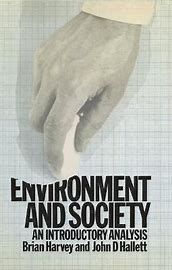
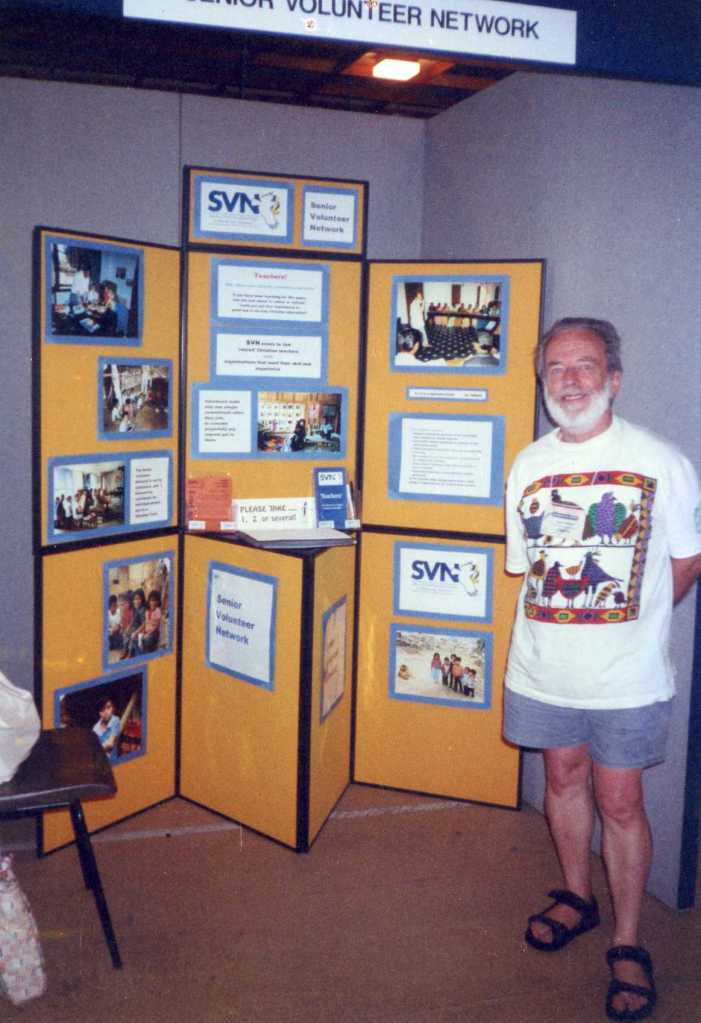

He retired (by then he was Head of the Education Department) in 1987, aged 60, but rather than leading a quieter life, he had a vision for a charity, Senior Volunteer Network, which would put retired teachers/head teachers and other education specialists into projects worldwide, and began to turn this into a reality.
He and Cecily made the most of the freedoms of his retirement (she had retired from primary school teaching some years previously). They both became involved in leadership of the Ravenshead Christian fellowship, which later became Ashwood Church (now based in Kirkby in Ashfield). In the early days of the Fellowship, we met in members’ homes or in the Village Hall. John and Cecily held open house on Sunday afternoons for young people in the village (50 years on, people still talk about how the house was full, every seat taken, and every window ledge and the stairs too) – their home in Ravenshead was called Akwaaba, which in the Twi language spoken in the part of Ghana where we had lived, means ‘welcome’. Part of our parents’ joint legacy to us is the idea of family as an open, welcoming place that embraces new members, whether related by blood, law or none of the above. In West Africa we were a long way from our aunts, uncles and grandparents, and so we accumulated a number of aunts and uncles, friends of my parents who visited regularly, and who I still think of as ‘Aunty Betty’ (with whom I still exchange Christmas cards), ‘Uncle Arthur’, or ‘Uncle Rex’. And in Ravenshead that took the form of opening our doors to random teenagers, some of whom became part of the church (and still are), others who never did, but had reason to be grateful for our parents’ warmth and support, as well as for the Sunday afternoon tea.
As keen walkers, John and Cecily led youth hostelling expeditions to the Lake District, one of which memorably involved Cecily’s group of walkers requiring the Mountain Rescue Service, after getting lost on Great Gable in driving rain and mist. John’s group had taken what was expected to be the more challenging route, only to find when they got to the hostel that we had not yet arrived. They called at the Mountain Rescue centre, at roughly the time that two of Cecily’s party arrived, having been sent out as envoys whilst we huddled behind a rock for (minimal) shelter, and gave their account to the team, enabling them to find their way straight to us.
John was a governor at a number of local schools, volunteered with Mansfield Samaritans (Cecily was a founder member of this branch), and was involved in local politics. He ran regularly, and completed the London Marathon, aged 63, in 1990 – he’d been a keen runner as a young man (plenty of stamina, less speed, due to his short stature), which had taken its toll on his knees and he had to have two knee replacements later in life. He undertook many walks with Cecily (and their dog, Corrie) after his retirement, including the Coast to Coast Walk, and along the Northumbrian coast. Having visited Nepal during his work with Trent Polytechnic, he returned to Everest to climb as far as the snow line, fulfilling his dream to stand on its slopes.

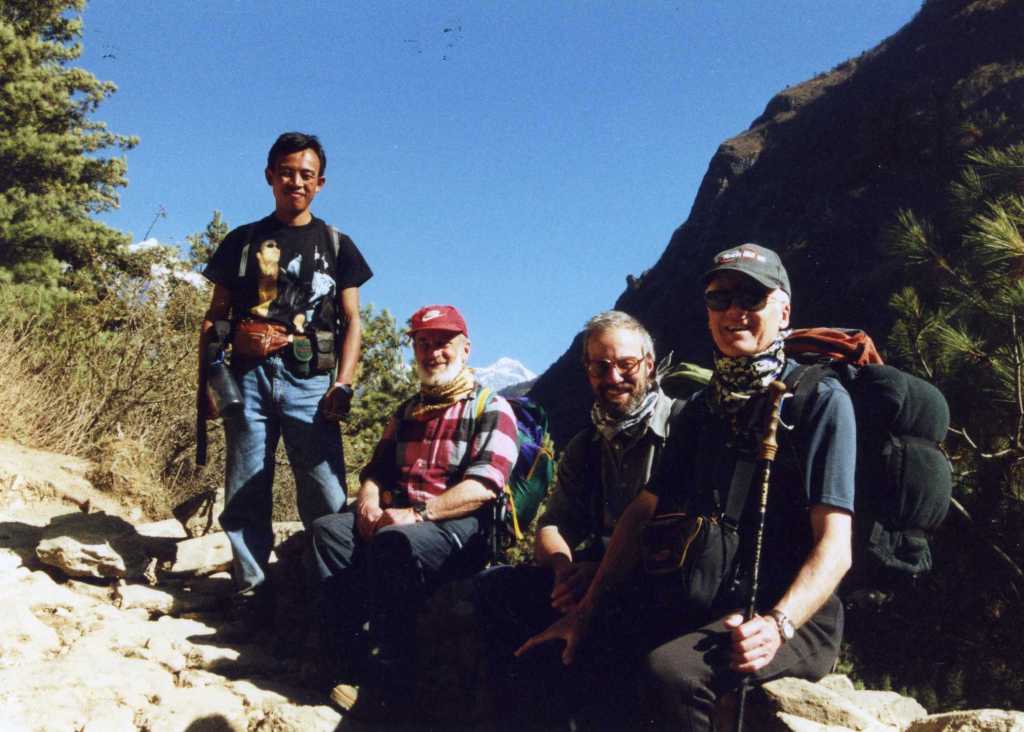

In 1995 Cecily died of pancreatic cancer, aged 65, only a matter of weeks after the diagnosis. It was a huge shock, and an incalculable loss to John and to the family – and to so many more people, as we all discovered from the messages that flooded in after her death. She saw herself as an accompanist – in musical terms this means that she wasn’t there to do the virtuoso solo stuff, but to enhance the performance of other musicians – but she did far more than that, and could have done so much more (at the time of her death she was gaining qualifications in counselling, and working with a Nottingham homeless charity). At the events celebrating Dad’s life, so many people talked not just about John but about ‘John and Cec’. They had different, and complementary strengths, they were a partnership in every sense, and their legacy is a shared one, for us and for the many other people with whom they worked and worshipped.
When Cecily died, SVN was still an idea rather than a reality, and in the aftermath he threw himself into setting up and leading the network, sending volunteers around the world, and travelling himself until his eyesight began to fail due to macular degeneration. SVN still thrives, and the family still has links with it, through Claire who is now a trustee.
John remained active until his 90s, undertaking a skydive to celebrate his 90th birthday, but his sight loss was by then significantly restricting his activities as he could no longer drive, or use the computer. The pandemic shrank his horizons significantly, particularly since he could not easily compensate for the loss of face-to-face social activity with on-line due to his deteriorating sight. In 2020, just before the first lockdown, his youngest son Greg died of bowel cancer, a desperately heavy blow. The death of my husband Martyn in 2021 was also a major shock to him. In 2022 he was formally diagnosed with Alzheimer’s disease and the decline from that point on was fairly rapid. He was cared for at home by Claire until he needed residential care, and moved into Lound Hall Care Home, near Retford, in 2023.
During those last years, as the fog engulfed him and he became more dependent on others, it was sometimes hard to remember the man he had been. He was a man of bold decisions – leaving school to work at de Havillands, against his father’s wishes, leaving de Havillands on a matter of principle, training as a teacher and undertaking a part-time degree whilst working, taking his young family to West Africa (again, a decision of which his father profoundly disapproved), and then changing direction again to focus on education, and finally setting up SVN in his retirement and travelling to often remote and dangerous places to work on educational projects. He was a leader, from his days as a Cub and Scout where he progressed from ‘Sixer’ to Assistant Scout Master, to his final post as Head of the Education Department at Trent and his role in the church. We all remember family walking holidays when Dad would lead the way so confidently that we all had to rush to keep up, as he was the one with the maps and the refreshments… At the care home, he often, when we visited in the early days, told us that he was there to conduct a review or an investigation, or that we were all at a conference that he had organised. That lifetime of leadership kept a hold even when so much else had been lost.
He had, from a young age, a sense of purpose, and one of his frustrations as his eyesight began to fail was that so many projects – travel abroad, or even ambitious UK walks like the ones that he and Cecily had done years before – were no longer practical or safe. For a while, writing his memoirs became his purpose, although in the final stages of the project dementia had begun to rob him not only of his memories but of understanding, and so I edited the document and arranged publication so that a copy could be placed into his hands whilst he could still recognise it as The Book, his own work.
John was fascinated by the natural world, greatly enjoying finding out about the flora and fauna – particularly the birds – of the parts of West Africa where we lived, and David Attenborough’s documentaries were a source of pleasure and interest in his last years. He read widely, and not only for professional purposes, and turned to audio-books after his sight loss, through which he enjoyed re-‘reading’ Dickens, Trollope, le Carré, Graham Greene and others, as well as discovering new writers (he was particularly enthralled by The Book Thief). He greatly admired the work of C P Snow, a scientist as well as a writer, who explored the idea of the two cultures, science and the arts (Snow’s novels were sadly not available in audio form). He loved music – as a young man he listened to jazz (New Orleans, and Django Reinhardt, not swing, as he told me firmly), but then was converted wholeheartedly to classical music after hearing Bach’s Brandenburg Concertos. Even in the very last stages of his illness he seemed to find calm in listening to Bach and Mozart in particular.
Just over a year ago, I wrote about Dad’s dementia, and specifically about Dad’s ‘raging against the loss of dignity, the loss of control over where he is and what happens to him, against the loss – even if he can no longer articulate it – of the things that made him him, against the slow dying of the light.’ And I expressed our heartfelt wish that his last days should not be spent ‘burning and raving at close of day’. In the end, at the very end, he did ‘go gentle into that good night’, with staff from his wonderful care home taking turns to sit through the night with him. We’re grateful for that, and that we each had the chance to say goodbye, to kiss him on his forehead and tell him that we loved him.
John is survived by his children Catherine, Aidan and Claire (youngest son Greg died of cancer in 2020), daughters-in-law Julie and Ruth, grandchildren Matthew, Arthur, Jordan, Melanie, Vivien and Dominic, step-grandson Tom, and great-grandchildren Jackson, Jesse and Eliza. He will be remembered with love by all of us.


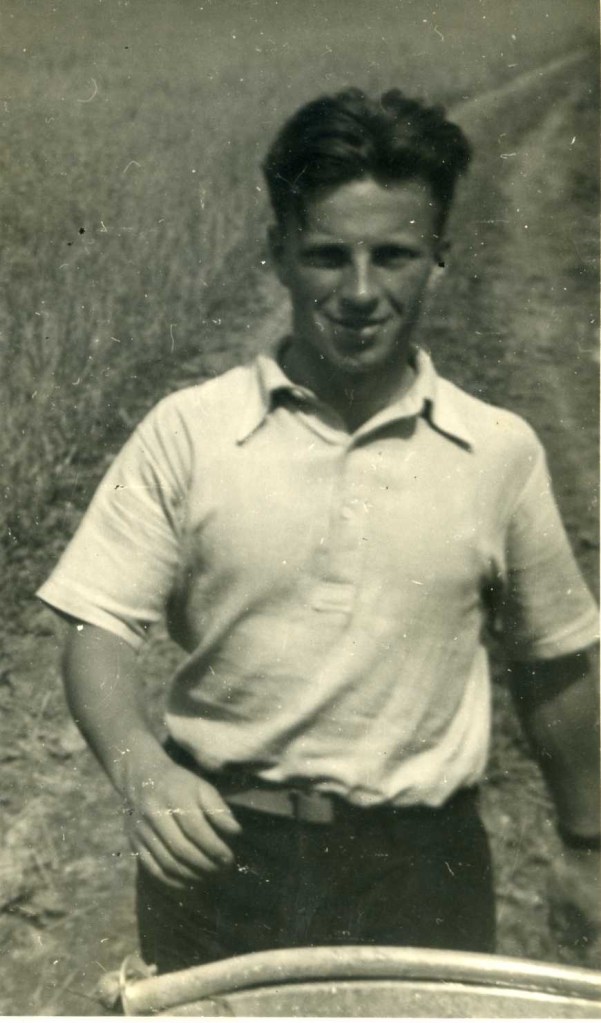
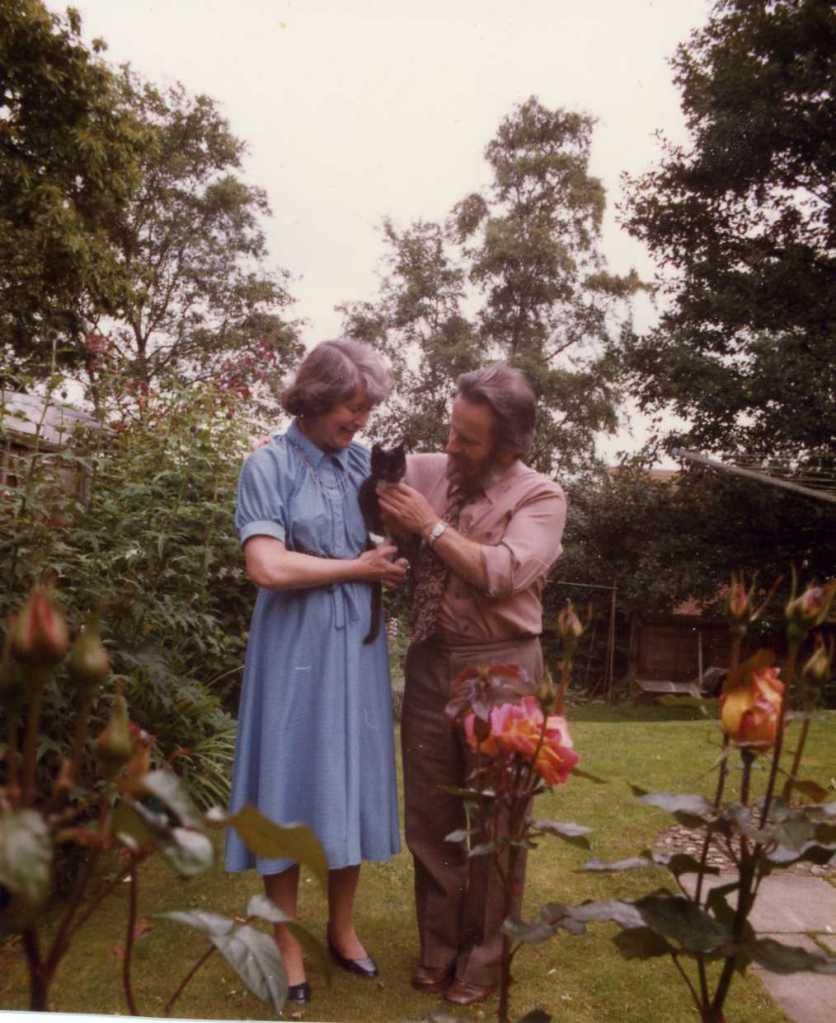


2024 – Finding Joy and Hope
Posted by cathannabel in Personal on December 31, 2024
Since 2019 I have posted every week on Facebook a summary of the good things I’ve found over the previous seven days. This is always prefaced by an acknowledgement that these good things will most likely be small and personal, and that they will be outweighed in the grand scheme of things by all of the huge absolutely bloody awful things that are going on in the world. We can’t and mustn’t shut our eyes to the latter, even when for the most part they are things about which we can do very little. But if we’re going to get up each morning and wash and dress and face the world, or our little bit of it, it’s those small, personal good things that will give us the strength, day after day, to keep on keeping on.
In some ways the Good Things project is an odd one for me. I’m not a strenuously cheery person. If I am a ‘glass half-full’ person it’s an act of will because my brain is almost always in ‘what could possibly go wrong’ mode, and thus even much looked forward to events and experiences always have an element of anxiety attached. M used to say he was ‘glass half-full but really, really cross that it was only half full’. My late brother Greg was ‘glass overflowing’. So I suppose I’m ‘glass half-full but really quite worried I might tip it over and end up with glass empty’… Optimism is, as James Baldwin says, an act of will. It’s also, as Angela Davis put it, an ‘absolute necessity’. We might look at the world and see little reason for it – that’s what she called ‘pessimism of the intellect’ – but being alive, really living, requires optimism of the will. (My friend Mike Press reminded me of the Angela Davis quote, in a lovely piece he wrote about ‘reflection, renewal and optimism’.)
When I started my Good Things, my brother was dying of cancer. Then there was Covid and lockdown, and then, in October 2021, my husband Martyn died very suddenly of a heart attack. I could hardly have been more aware over these past few years that life wasn’t simply full of good things, even just on a personal level, and that wishing it wouldn’t make it so. But it helped me to have that discipline, that at the end of each week I had committed to finding something to write about, something that had brought me joy or comfort, something that had given me strength, something good. And I have always found something, even at the worst times.
In 2024 the huge absolutely bloody awfulness of what’s going on in the world is utterly daunting. When M was alive, we always watched the 10 o’clock news, but now, on my own, I find I rarely do. To watch together, and then head for bed and sleep with the comfort of each other’s company was one thing, to watch alone and then head for bed and sleep alone, with my mind full of Gaza and Trump and Ukraine and climate change and all of the other horrors is quite another. (I do read the papers every morning, I don’t shut my eyes to it all.) It’s hard to find good things out there, although I know that in any and every horror there are brave, good people who do whatever they can, at whatever risk to themselves, to mitigate that horror for others. We may not know who they are, but whilst history is very good at telling us of the evil that humans are capable of, it does also, if we look more deeply, tell us of those who stand against that evil. I try to hold on to that.
The word ‘joy’ keeps on cropping up at the moment. I recently watched the film with that title, about the first ‘test-tube baby’, whose second name was Joy, given to her by the surgeon who carried out the procedure. The film didn’t gloss over the wretchedness of infertility, and the people that the IVF process couldn’t help, but it acknowledged very movingly the joy that arrival brought, not only to her parents but to the team that had worked so long for that moment – and all of the people since who have had their chance at parenthood. And then the Doctor Who Christmas special this year was entitled ‘Joy to the World’, and it dealt with loneliness, loss and regret, but ended with light, and joy and hope. It seems to me that to have joy (as distinct from happiness, or contentment), one must know sadness, loss, pain as well, just as to be optimistic (as opposed to merely delusional) one must recognise it as an act of will, in the face of all the reasons for pessimism.
So where has the joy been, in 2024?
As always, in reading marvellous books, watching brilliant films and TV series, listening to wonderful music. There are lots of things that I enjoy, that pass the time pleasurably, but some that do more than that, that lift and move me more deeply. Hard to pick out just a few things, but, for example, Wim Wenders’ film Perfect Days, Paul Besley’s book The Search, choral music at St Mark’s Church, Chris McCausland dancing to ‘Instant Karma’ on Strictly…
Travelling with my son, for an amazing holiday, a three-city break in Vienna, Prague and Berlin, seeing the beauty of all three cities, and in each of them the tragedy of their wartime history.
Working with Under the Stars, a charity that works with adults with learning disabilities and autism through music and drama, seeing their music groups perform at Tramlines festival, at Yellow Arch Studios, at the Greystones pub and the Octagon Centre, and deejay/veejay at the Leadmill. It’s exhilarating and inspiring – their joy in performance is infectious.
Nottingham Forest. A change of manager – this time last year I wrote that ‘I’m hopeful that the new guy will enable us to stay up again this year’, but it turned out to mean a transformation that finds us at the end of 2024 second from top of the Premier League, and dreaming of possibilities in 2025…
Family – a wedding, an engagement, and lots of ordinary special times spent with the people I love most, watching football, watching Strictly, trips to the cinema, opera or theatre, going around the galleries in town, wine-tasting, meals out, meals at home. Boxing Day shared with the future in-laws for the first time.
Friends – meeting for coffee or lunch, sharing music, talking about families and plans, hopes and anxieties, meeting via Zoom when we can’t be together in person.
So this New Year’s Eve, as for the last approx. 40 years, will be shared with very dear friends. We’ll eat and drink and watch Jools’ Hootenanny and complain about his choice of guests, and on New Year’s Day we’ll eat more and find an undemanding film to watch before going forth into 2025. My first New Year’s Day without M was bleak, almost unbearably so. I faced the first year since I was 16 years old in which he would not be by my side. I expect there will be moments this New Year too, when it hits me, but three years on I am accustomed to being without him. It’s not that the grief and loss is less, rather that one adjusts around it, accommodates it, and it becomes a part of one. I know I will cope because I have coped already with so much, and because the people who’ve enabled me to cope will be with me.
And for 2025 we hope, of course we hope. We hope for cease-fires, for wars to end, for freedoms to be restored, for care for our planet to be prioritised over profit, for vital public services to be protected and rebuilt for those who need them. We hope for good things for ourselves and the people we love. We hope for the strength to cope when bad things happen, the strength that comes from other people’s love and support as well as our own.
I come back to this poem every new year. That word ‘sometimes’ has some heavy lifting to do here, but of course, sometimes, these things will be, and that’s what we have to hang on to.
Sheenagh Pugh – Sometimes
Sometimes things don’t go, after all,
from bad to worse. Some years, muscadel
faces down frost; green thrives; the crops don’t fail,
sometimes a man aims high, and all goes well.
A people sometimes will step back from war,
elect an honest man, decide they care
enough, that they can’t leave some stranger poor.
Some men become what they were born for.
Sometimes our best efforts do not go
amiss; sometimes we do as we meant to.
The sun will sometimes melt a field of sorrow
that seemed hard frozen: may it happen for you.
Hang on to your hat. Hang on to your hope. And wind the clock, for tomorrow is another day (E. B. White)
Music Nights 2024
Posted by cathannabel in Music on December 18, 2024
Last year I tried for the first time to write about the part that music has played in my life, the way in which that is bound up with my relationship with my late husband, and how I struggled with finding ways of listening alone. It will never, of course, be the same, not even close. But I have prioritised listening to music from our collection, as well as listening to Radio 3 as we used to, and have added some new bands, composers and music programmes to my repertoire. I’m proud of that – it wasn’t as easy as it might sound.
Not long into 2024, my hi-fi was dismantled, and my CDs packed into boxes and stored in the garage, ahead of a major redecoration of the living/dining room. It all took a long time, and only now, as the year draws to a close, do I have full access both to the CD collection and to the means of playing them. Now, I do know about streaming and am aware that playing actual CDs marks me out as very old school indeed – and as the list below shows, I did carry on regardless. But I like to hear the whole album, the tracks that the artist decided to record, in the order that they wanted them to appear. And so many of these CDs were acquired and listened to with M, and, as I said in my music blog a year ago, it’s very important to me that this tradition – of evenings devoted to listening to CDs, chosen semi-randomly from the vast collection – is part of my life now.
Music Nights (or mornings, or afternoons, but mainly nights) – the methodology is as described in last year’s blog. During the week if I think of something I’d like to play (it might be suggested by something I’ve read, an anniversary or obituary, or just a memory) I put it on a pile by the CD player, and on the night I add to that pile random choices – whatever came up when I threw the dice and counted the shelves – so that I don’t stay too firmly within familiar territory, or within any one era or genre. This does include music on TV or DVD and tracks that I accessed via Spotify as well as via the collection, but in general inclusion indicates that I listened to more than just a single track, even if not a full album.
This year I listened to music by: Beethoven, Berlioz, black midi, Bombay Bicycle Club, Bowie, Brahms, Britten, Brubeck, Bruckner, R D Burman, Byrd, Alina Bzhezhinska, Camel, Can, Nick Cave, Terri Lynne Carrington, Hariprasad Chaurasia, Chopin, Billy Cobham, Leonard Cohen, Alice Coltrane, John Coltrane, Costello, Kim Cypher, Miles Davis, Olivia Dean, Delarue, Bryce Dessner, Corrie Dick, Marlene Dietrich, The Last Dinner Party, Dinosaur, Dreamliners, Dukas, Dylan, Earth Wind and Fire, Elgar, Ella, Ellington, ELP, Eno, Fairport Convention, Fakear, Fauré, Reinhard Fek, Catrin Finch & Seckou Keita, Graham Fitkin, Fleet Foxes, Flobots, Frankie goes to Hollywood, Marvin Gaye, Gilgamesh, Gomez, Pavel Haas, Charlie Haden & Egberto GIsmonti, Matthew Halsall, Gavin Harrison & O5Ric, P J Harvey, Lianne la Havas, Dashiell Hedayat, Hendrix, Bernard Herrmann, Hindemith, Zakir Hussain, Keith Jarrett, Johann Johannson, Quincy Jones, Quincy Jones & Miles Davis, King Crimson, Michael Kiwanuke, Gideon Klein, Gladys Knight, Korngold, Last Shadow Puppets, Bill Laswell, Ant Law & Alex Hitchcock, Léonin, Los Campesinos, Yo-Yo Ma, Kirsty MacColl, James MacMillan, Mancini, Bob Marley, Maximo Park, Curtis Mayfield, Fanny Mendelssohn, Felix Mendelssohn, Pat Metheny, Lin-Manuel Miranda, Monk, Mozart, Mulligan & Monk, Nick Mulvey, Meshell Ndegeocello, Yoko Ono, Pérotin, Iggy Pop, Psi Vojaci, Rachmaninov, Emma Radicz, Radiohead, Ravel, Red Rum Club, Martha Reeves, Max Richter, Rodrigo y Gabriela, SBB, Ryiuchi Sakamoto, Schoenberg, Schubert, Schumann (Robert & Clara), Semer Ensemble, Shangri-las, Sharp Little Bones, Shostakovich, Sibelius, Silk Road Ensemble, Horace Silver, Nina Simone, Roni Size & Reprazent, Smetana, Sam Smith, Snarky Puppy, Katie Spencer, Spiritualized, Candi Staton, Steely Dan, Max Steiner, Richard Strauss, Karl Svenk, Taylor Swift, Sylvian & Fripp, Tallis, Tangerine Dream, Carlo Taube, Michael Tippett, Peter Tosh, Ali Farka Toure, Travis & Fripp, Martina Trchova, Unthanks, Vaughan Williams, Verdi, Kevin Volans, Weather Report, Yiddish tango
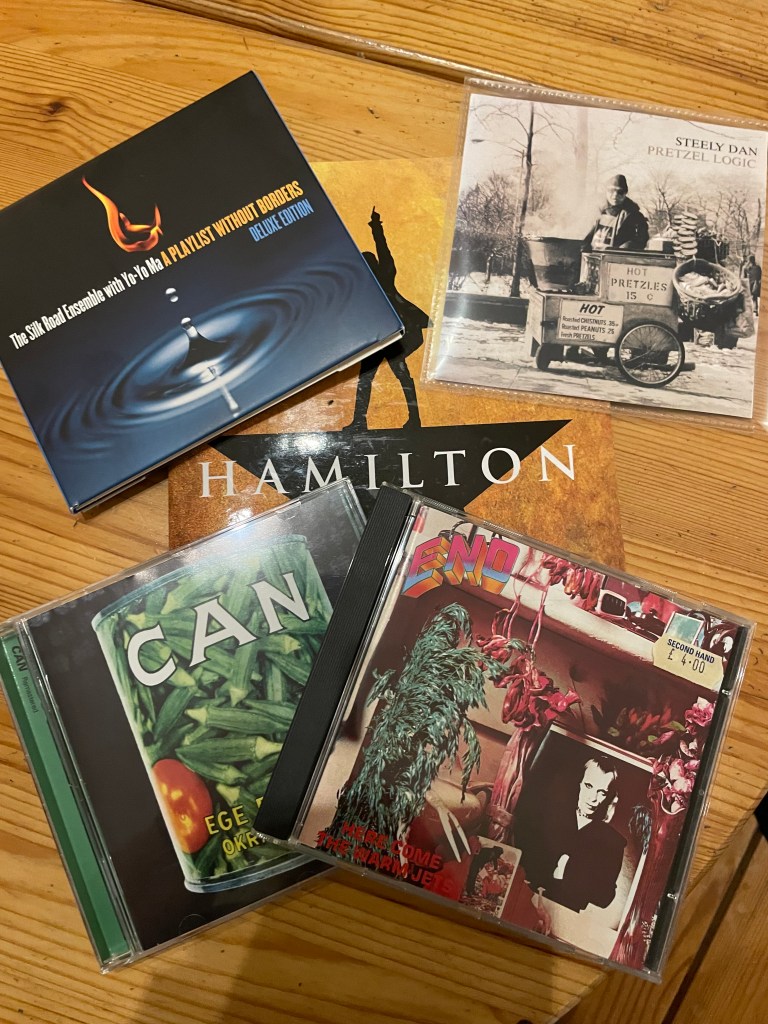



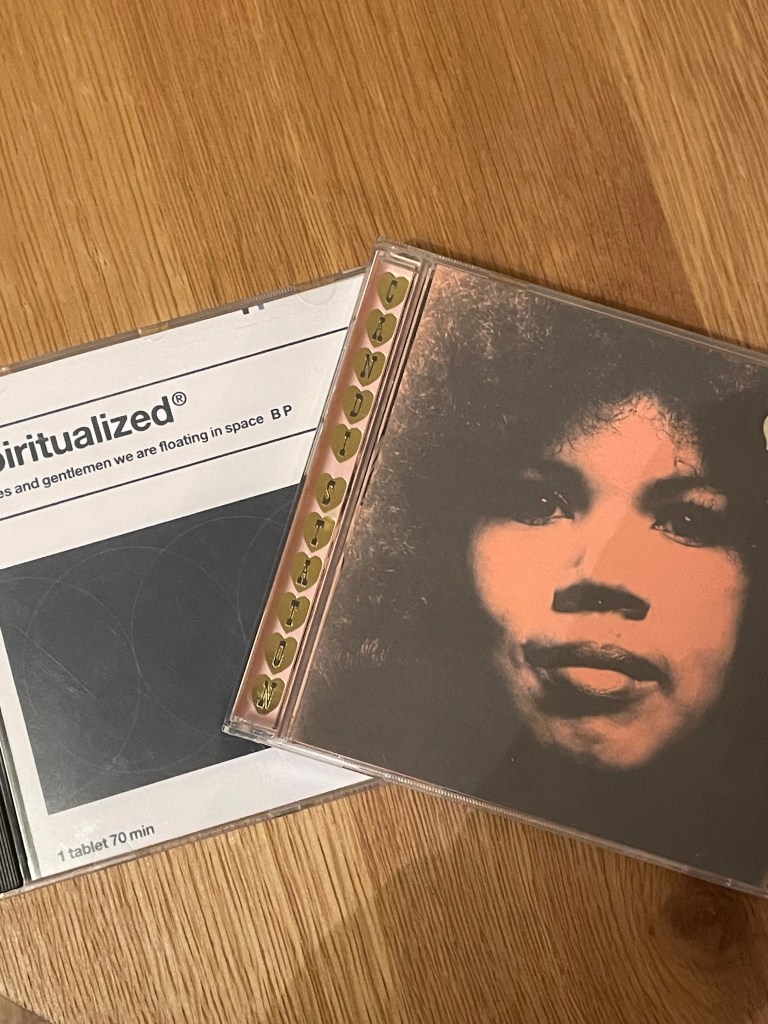

Live Music
Music nights are almost always solitary now. But live music is also vital to me, and for that I often especially value company. So thank you to Ruth, Peter, Adi, Jennie & Michael, Arthur, Jane & Richard, Amanda, Liz and Under the Stars colleagues for sharing some of these musical experiences with me.
Opera
For a few years, I reviewed Opera North productions for The Culture Vulture, a Leeds-based online journal, which was fabulous – I got free tickets to all of the productions. All this came to an end for me even before lockdown, as my youngest brother, who had terminal cancer, approached the end of his life, and I knew I could not commit to attending or to turning a review around within a day. When lockdown ended, I was looking forward to starting again and was due to see Carmen on 9 October 2021. That morning, M died. It was not until my sister-in-law, who had got me started on this whole opera thing, moved back to Leeds from Rome last year that I went back to the Grand Theatre (not as a reviewer, just a regular audience member).
At Leeds Grand we saw two marvellously magical productions, Mozart’s bonkers The Magic Flute, and Britten’s A Midsummer Night’s Dream, both of which were delightful, imaginatively staged and beautifully sung. Before that, we saw Britten’s Albert Herring at the Howard Assembly Rooms, a lovely, funny production.
West Yorkshire Playhouse’s revival of My Fair Lady drew on Opera North talents too, with lovely performances in the lead roles, including John Hopkins (a former sidekick of Midsomer Murders’ DI Barnaby) as Henry Higgins, and Katie Bird, who we saw in The Merry Widow back in 2018 at the Grand, as Eliza. It has tricky moments – not so much Higgins’ sexism, given that this is not endorsed by the script or by the production, but the off-hand references to domestic violence, the normality of black eyes and broken bones as part of married life. I can’t recall if these are in the Shaw, or only in the libretto. Despite that it was a gorgeous, funny production and it’s packed with glorious tunes, beautifully sung.
Sheffield City Hall – Legend: The Music of Bob Marley. Excellent tribute band – the lead singer in particular was superb. I wondered about the audience when I saw a lot of white folks wearing knitted hats with knitted dreadlocks attached, but it was clear they were passionate enthusiasts for the music, knew all the lyrics, and kept a respectful silence when asked to do so in memory of Aston ‘Family Man’ Barrett. An exuberant evening of fantastic songs.
Manchester Palace Theatre – Hamilton. I’d seen it on Disney+ but live is so much better. Spinetinglingly, exhilaratingly great songs and singers, superb choreography, a compelling story. It probably shouldn’t work but it absolutely does and I loved every moment.


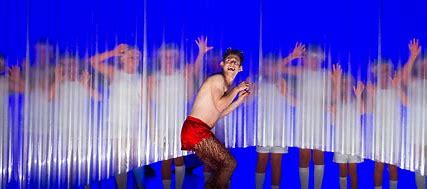
Since I got involved with Under the Stars, first as a trustee, now as Chair, I aim to get to as many of their gigs and drama performances as I can. It’s always a joy. This year, Sparkle Sistaz played the Octagon Centre at Sheffield University as part of a Street Choirs event and went down a storm (they were followed by the excellent Young ‘Uns, who recognised they had a damn hard act to follow). The Stars Band played at Yellow Arch and at Tramlines, and Clubland Detectives launched their new EP with a gig at the Greystones Pub.


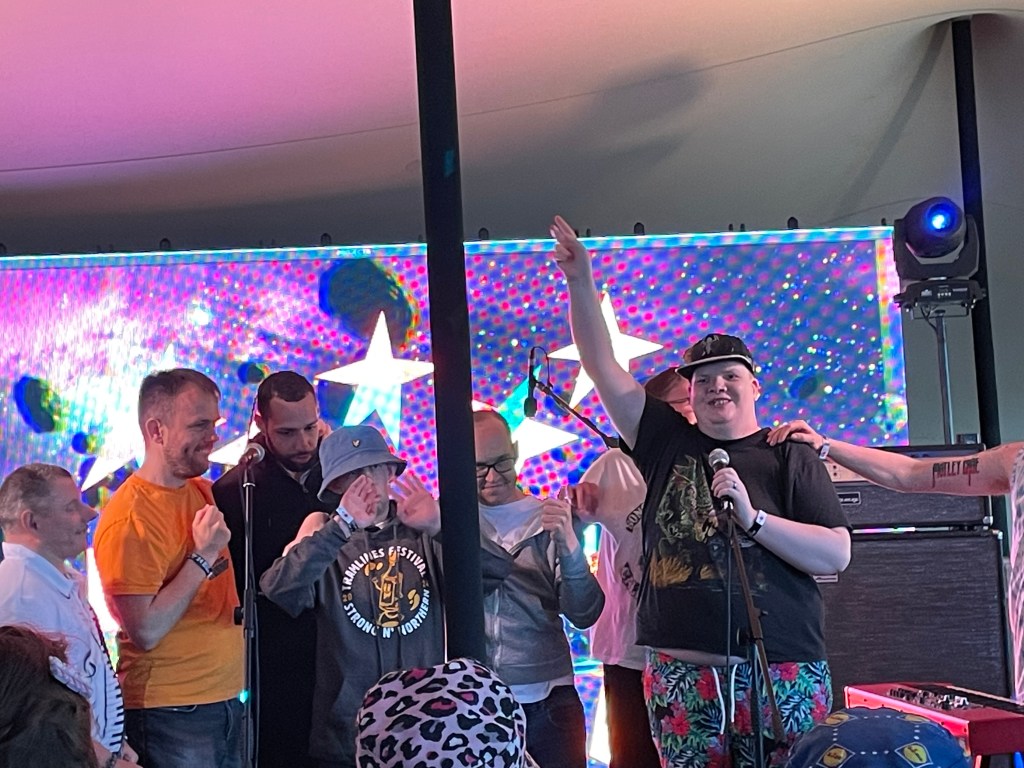
Music in the Round is always a huge part of my musical year. It started off with a concert in the Upper Chapel (Koechlin, Tomasi, Lutoslawski, Poulenc) and then the Steven Isserlis curated Chamber Music Festival in mid-May celebrated Fauré’s centenary with a packed week of gigs, mainly at the Crucible Playhouse. I got to five of the concerts, and heard music by Ades, Bach, Farrenc, Faure, Franck, Holmes, Messager, Onslow, Ravel, Saint Saens and Tchaikovsky, performed by Ensemble 360, with Isserlis, Peter Hill, Abbeydale Singers, Ella Taylor and Anna Huntley. And then Kathy Stott launched the autumn season with a performance of short pieces by Bach, Boulanger, Ravel, Piazzola, Shostakovich, Rodgers & Hammerstein, Chopin, Fitkin, Shaw, Vine, Grainger, and Grieg. This was part of her farewell tour, with a programme of short pieces – it was wonderfully eclectic and delightful.
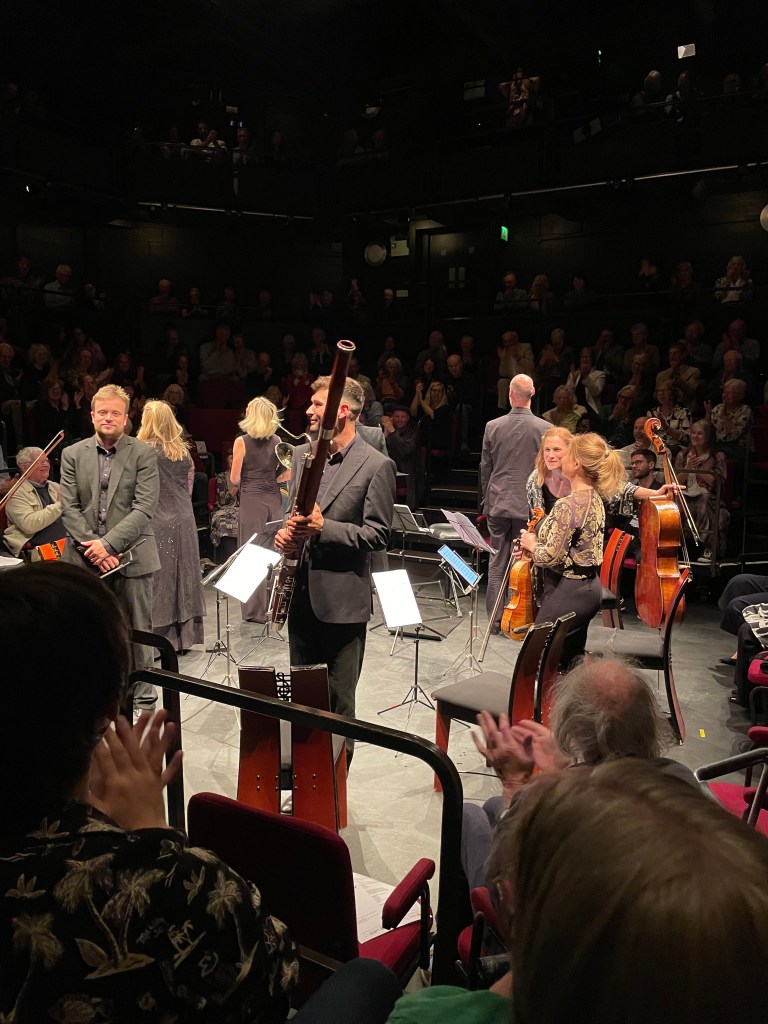
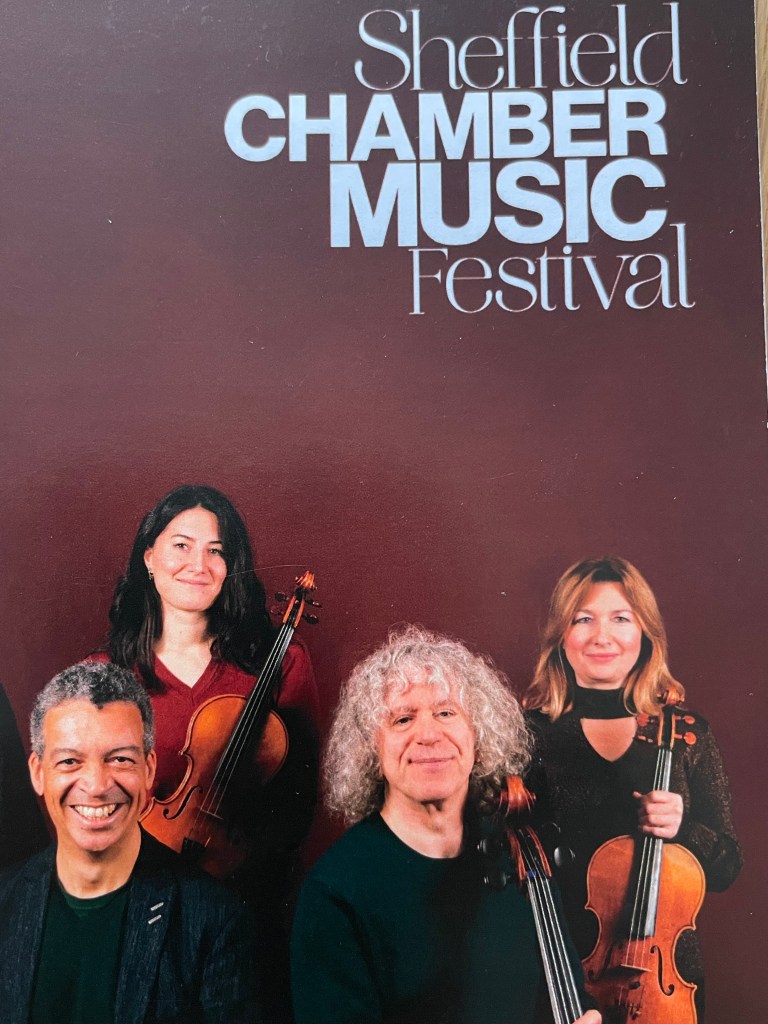

We were at the Crookes Social Club for Sheffield Jazz gigs from the Clark Tracy Quintet, Corrie Dick Sun Swells, Hannah Horton Quartet, Adam Glasser, and Soft Machine, the Crucible Playhouse for Empirical with Jason Rebello, Firth Hall for Fergus McCreadie, and the main Crucible Theatre for their 50th anniversary gig, with the Emma Rawicz Quartet and the Tony Kofi Quartet. All were excellent but standouts were Corrie Dicks, Soft Machine and Tony Kofi.


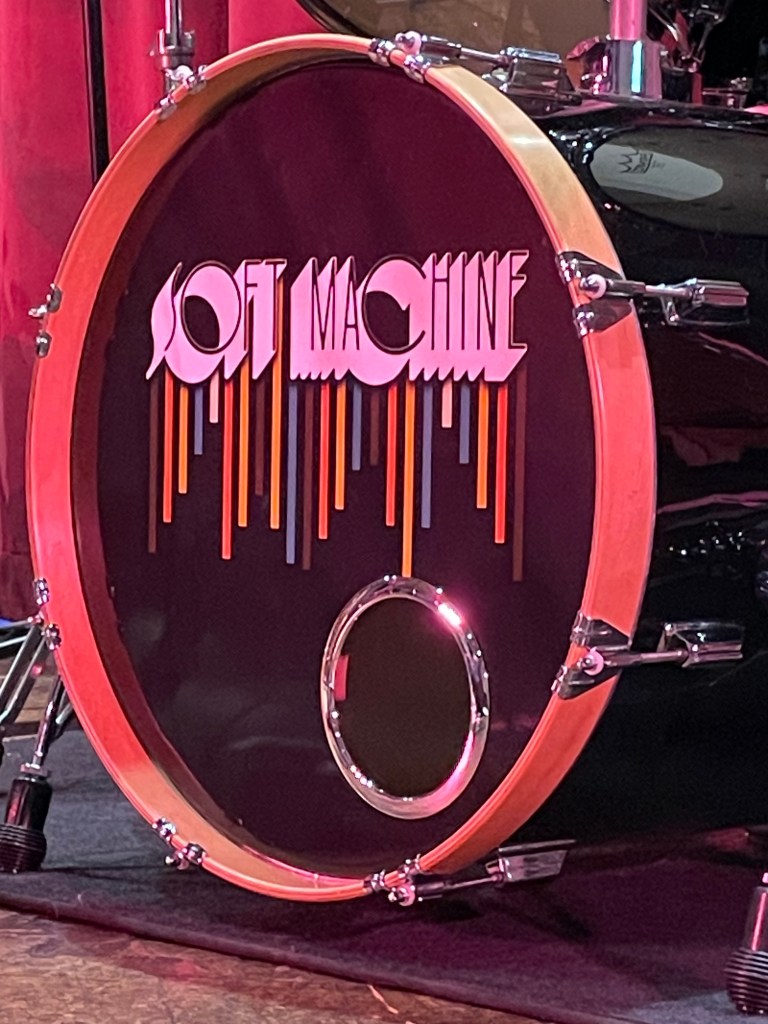
This year’s Tramlines was dry and sunny, for which we were very thankful after last year’s downpour and resulting quagmire. The stand-out performances were from Maximo Park, Dylan John Thomas, The Human League, Sprints and Stars Band. We also saw Bombay Bicycle Club, Coach Party, Example, Flowerovlove, Darla Jade, Jazzy, Miles Kane, Otis Mensah, Harriet Rose, Mitch Santiago, Rumbi Tauro and The View plus brief snippets of The Charlatans, Cucamaras and Paolo Nutini.



And then a new feature on Sheffield’s musical calendar, Richard Hawley’s Rock & Roll Circus – we only went to one of the three nights, but enjoyed Gilbert O’Sullivan, The Coral, The Divine Comedy and Richard Hawley himself. O’Sullivan I remember fondly from the 1970s, when he had a run of hits, all of which he performed here and most of whose lyrics I could recall. His voice is still there (not always the case with performers whose heyday was 40+ years ago) and it was an enjoyable set, if not one that made me want to seek out his newer material. I fell in love with The Coral years ago – that Mersey/Motown blend is joyous and I love them live (I saw them at Tramlines 2022). I was much less familiar with The Divine Comedy’s output (I knew ‘National Express’ of course but little else) but was inspired to listen to more. And Hawley, in his home town, was electrifying, performing songs that featured in the musical Standing on the Sky’s Edge, which played to rapturous full houses here in Sheffield, and less inevitably, replicated that success in the West End.



And a concert at the tiniest venue I know, Café 9. Pre-booking is essential, and reserving seats helpful as one can end up practically knee to knee with the performers – but it’s a gorgeous space, which I discovered last year, and went to three gigs there in fairly quick succession. Just one this year, from Katie Spencer, whose songs draw on her upbringing on ‘the edge of the land’, as one of her songs puts it, on the East Yorkshire coast. She’s a great songwriter, guitar player and singer. She was supported by Gerard Frain, an excellent South Yorkshire singer-songwriter.



For next year I’m checking out the Sheffield Jazz programme and the 2025 Sheffield Chamber Music Festival programme, I’m already booked to see two operas (Weill and Verdi), and we have our tickets for Tramlines in July. And whatever else the year brings, I know it will be full of music.
2024 On Screen – the second half
Posted by cathannabel in Film, Television on December 10, 2024
Most of what I watched at the cinema or at home during the second half of the year is here. It still feels strange to me to be watching the TV on my own. The plus side – no one is going to veto costume drama, literary adaptations or yet another WW2 drama – is very much offset by the downsides of not having someone to talk with about what I’ve just watched, to share the experience with. I’ve found that comedy, in particular, suffers from being watched solo. A few things have overcome that this year, but I’ve abandoned quite a few comedy series because it just felt weird. I’m also less keen on scary movies, for obvious reasons. Even with all the lights on, it’s a lot harder to shake off the creepy feeling if there’s no one to have a mundane conversation or a laugh with. With all that said, film and television take me outside of my own environment and my own company, broaden my mind (at best) and horizons, and (at best) lift my spirits. I’ve omitted from the account below things that were just ‘meh’, things that I abandoned after one or two episodes, and season x of things that I’ve been watching for a few years.
Big Screen
Most of the films in this half of the year were actually seen on the smaller screen. At the cinema I saw Radical, Electric Lady Studios, Gladiator II and Conclave. And perhaps fewer of the films were truly outstanding – I think I’d had a run of really top-notch films in the first half of the year. Which doesn’t mean there aren’t some absolutely excellent ones here – Anatomy of a Fall, Blitz, Conclave and Lady Macbeth stand out but I’d pick Perfect Days as my favourite (partly because it was so unexpected).
All About Eve (1950)
I have seen this before, obviously, but not for a very long time. There was a period in my twenties (I think) when there seemed to be Bette Davis movies on every Saturday afternoon, and it was glorious. I caught the second half of her earlier film Dark Victory just before this one, and it was instructive to see how things had changed – DV was very stagey – lots of big gestures, AAE much subtler and darker (I thoroughly enjoyed both). AAE is so well known that I can’t imagine watching it without knowing what Eve is up to, but whilst there isn’t that potential element of surprise, it’s still gripping to see how it all plays out, and the performances from Davis, Anne Baxter and Celeste Holm, are superb.
Anatomy of a Fall (2023)
I saw Sandra Huller in Zone of Interest not long before I watched this – she’s remarkable in both films. In many respects this is a classic mystery – a man falls to his death, but did he jump, fall by accident or was he pushed and if so by whom? We don’t really know till the end – even then I wasn’t totally certain I had put the pieces together correctly, so it merits a re-watch. Whilst that puzzle is the plot, what makes the film great is the drawing of the characters, especially Huller’s character Sandra, and how we see them from different points of view as the investigation continues. Excellent, gripping stuff.
Belle (2013)
I wanted to love this, and I certainly liked it, but it was somehow underwhelming. I’m not sure why. The story should be compelling enough, the performances are fine, but it was perhaps too conventional in its approach, and the parallel story of the Zong massacre needed more development (not just exposition) to be as powerful as it deserved.
Black and Blue (2019)
Cracking action thriller – shades of ’71 and Assault on Precinct 13 at times – with Naomie Harris as the Afghanistan vet newly recruited to the New Orleans PD only to find herself isolated from both the black community she grew up with and her new ‘blue’ community of cops. It hints at deeper issues (race, police corruption post-Katrina) but that’s not really what we’re about here – it’s a thrilling ride, and the tension ramps up quickly and then doesn’t let go.
Blitz (2024)
McQueen weaves a number of real stories – some very specific, like those of the Nigerian ARP Warden, and Ken ‘Snake-hips’ Johnson who died at the Café de Paris, others more representative, like the criminals who profited from the Blitz by robbing bombed buildings, or the firemen struggling to get the water through their hoses with the Thames at low tide – into his tapestry of life in the East End of London at the height of the Blitz. Saoirse Ronan is wonderful, as she always is, Paul Weller is excellent in an understated role as her dad, and Elliott Heffernan outstanding as 9 year old George. In many ways, it’s quite a traditional narrative, invoking – inevitably – other treatments of the era (Atonement, very specifically). (I was puzzled though by reviews which suggested The Railway Children as a reference point – aside from the fact that Blitz features (a) trains and (b) children, I see no real relationship there.) But McQueen’s visual imagination, and the way Hans Zimmer uses sound, go beyond that traditional approach. And the thread running through it all is that we are seeing the people that the traditional narrative of the Blitz and of ‘Blitz spirit’ left out, particularly the black Londoners. (See also Lucy Worsley’s documentary, Blitz Spirit, on iPlayer, which covers some of the same territory, almost certainly through many of the same sources.)
Bombshell (2019)
See also She Said, from 2022 – both films tell part of the #MeToo story. Bombshell is an account of how Roger Ailes, serial sexual harasser and bully at Fox, was brought down as the women started to talk, to each other and to lawyers. Whereas She Said is from the perspective of the journalists looking to uncover Harvey Weinstein’s regime of abuse, here we see things from the point of view of the women who may have prospered professionally but had to endure years of humiliation and the constant awareness that his favour was on a whim and could be withdrawn at any time. These are nuanced portraits, showing how so many women in the workplace survive by constantly masking, adapting, smiling, conforming, until they can’t do it any more. Variety‘s reviewer said that ‘Bombshell is a scalding and powerful movie about what selling, in America, has become. The film is about selling sex, selling a candidate, selling yourself, selling the truth. And about how at Fox News all those things came together’.
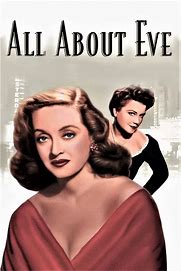





Carol (2015)
Superb. Blanchett and Mara are wonderful, both complicated, difficult to read, so that they continue to surprise us. The film always looks fabulous, but there’s a sense that we’re seeing surfaces, public personae, and that so much is hidden, as it had to be.
The Children Act (2017)
Good, solid adaptation of an Ian McEwan novel (one that I haven’t read). As in so many of McEwan’s books and films, the protagonists inhabit this very cultured, privileged world (everyone is a lecturer, a lawyer, a writer, with a big London house), and I do sometimes find that trying. But the ethical and philosophical questions with which Emma Thompson’s lawyer grapples are fascinating and she is excellent, as is Fionn Whitehead as the boy at the heart of that dilemma.
Churchill (2017)
With Brian Cox and Miranda Richardson as Winston and Clemmie, this should have been decent at least. But it wasn’t. The portrayal of Churchill was a caricature, his actions frankly unbelievable (seriously, on his knees praying for bad weather so that the D Day landings could not go ahead?) and his motivation opaque. One reviewer described it as ‘uniquely awful and tedious’. And from everything I have read, it is historical nonsense.
Coco (2017)
Top-notch Pixar. The animation is stunning, the folklore around the Day of the Dead is explained enough for the story to work, without weighing things down with exposition, the songs are great, and the ending made me weep. The notion of people dying finally when no one living still remembers them, was bound to connect with my own experiences of bereavement, and perhaps particularly with the long, slow bereavement of dementia… (Pixar’s previous excursion into the afterlife, Soul, drew on a whole different set of ideas and cultural traditions, but was also very touching, and very musical.)
Cold Comfort Farm (1995)
Gloriously funny adaptation of a gloriously funny book. A collection of superb actors, having enormous fun – Ian McKellen as the spiritual leader of the Quivering Brethren, Rufus Sewell, Eileen Atkins, Stephen Fry and more. And Kate Beckinsale is a joy as Flora Poste. I laughed out loud, quite often, which is something I find I don’t do so much these days, now I’m on my own. It felt good.
Colette (2018)
Good, solid biopic, focusing on the sexual politics of the time, with excellent performances from Keira Knightley and Dominic West.

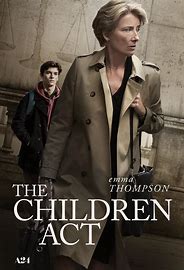




Conclave (2024)
Based on the Robert Harris novel, this subtle, clever thriller (a thriller full of drama but largely without big dramatic incident) takes place entirely within the Conclave, the locked-down part of the Vatican where the assembled Cardinals meet to choose a new Pope. With each vote the picture changes, certainties are eroded, new threats emerge and predicting the outcome would be a fool’s game. The Guardian‘s review is very positive about the film, but its first paragraph gets in a fair few snooty put-downs for the source novel (‘easily devoured’, ‘pulpy’, ‘beach read’, ‘pot-boiler’ – yes, we get the picture, but the book is far better than that, IMO). Berger’s adaptation holds the attention throughout and touches on a whole host of questions from the world outside the Conclave that are reflected in the conflicts within it. The performances are superbly understated – Ralph Fiennes as Cardinal Lawrence, playing detective whilst wrestling with his own ambition, Stanley Tucci as liberal Cardinal Bellini, John Lithgow as the more obviously machiavellian Cardinal Tremblay and Lucian Msamati as Nigerian Cardinal Adeyemi, representing an increasingly powerful force in the Church – and then there’s the new guy, who’s appeared from nowhere. Isabella Rossellini leads the Sisters, who feed the Cardinals, but don’t get a vote. There’s a wonderfully atmospheric soundtrack, and clever use of background sound – dramas that happen off-screen and are only imperfectly overheard, even the sounds of breathing and papers rustling claim our attention in this largely still space. And, with commendable restraint, I have waited until now to mention, just in passing, that my brother is present on screen in a number of key scenes, as one of the assembled Cardinals (a non-speaking role but, I feel, crucial). With even more commendable restraint, I did not cheer or nudge the person in the next seat to say ‘look, that’s my brother’, but I was very excited.
The Damned United (2009)
Martin Sheen does a superb job of playing Clough, at his most truculent and bloody-minded. Whether it is entirely accurate is another matter, but it rings true, and conveys something of the reality of 1970s football (I know, I was there. Not at Elland Road or the Baseball Ground, but at the City Ground, both before and during Clough’s reign there).
The Edge of Love (2008)
Keira again, this time with Sienna Miller as the lover and wife respectively of Matthew Rhys’s Dylan Thomas. I didn’t quite believe in this version of Thomas – somehow, despite being better to look at than the real thing, the source of his attractiveness to these two women was unclear. So this was perhaps a miscasting – Miller and Knightley on the other hand dominate the film.
Electric Lady Studio (2024)
Excellent documentary about Hendrix’s Electric Lady Studio, completed only a short while before his death but which seemed to embody his dream of a place devoted to making music. Lots of interviews from people who knew and worked with Hendrix, lots of clips that I’d never seen before (despite having been immersed in Hendrix’s music for over fifty years).
Elvis (2022)
Austin Butler’s performance is glorious, I’m less sure about Hanks, who seems to veer towards caricature, but given that the film does not aspire to straightforward biopic realism, maybe that’s what was intended. But overall, the film was hugely entertaining and whenever Butler was on screen, I was mesmerised.
The End We Start From (2023)
The brilliant Jodie Comer in a disaster movie setting, where catastrophic flooding leaves her homeless with a new baby, negotiating a highly dangerous world to find her way to safety. My only problem was that I could not quite switch off the part of my brain that was constantly asking boring practical questions about how the baby always had clean clothes, etc, which wasn’t really the point. It was more about how quickly the infrastructure of society crumbles, and how everything that we count on becomes uncertain and perilous (see also Threads, below…), and how in the face of all that, one might survive.






Firebrand (2024)
The film does warn viewers that history tends to leave a lot of gaps when it isn’t covering men and wars, and that those gaps may be filled with – sometimes wild – speculation… But it’s pretty plausible, for the most part, and much of what we see on screen is well-documented, and familiar from various ‘Henry & the Six Wives’ dramas on TV and film. Alicia Vikander is excellent as final and surviving wife Catherine Parr, as is Jude Law in a vanity-free portrayal of the King (those wobbly buttocks – surely not Jude’s?). I’d just finished watching the first series of Wolf Hall and what came across in both treatments was the constant fear in which one would have lived if one was close to the King – enemies constantly circling and seeking their opportunity to strike, and the King himself, mercurial and volatile, believing absolutely that he is absolutely right. This fear is written on Vikander’s face, as it was on Claire Foy’s as Anne Boleyn.
Gladiator II (2024)
I enjoyed this enormously. I’m not as passionate about the first film as some, I’ve only seen it once and that a while ago, so I wasn’t as conscious of all of the references and echoes as its true devotees would be. So it may be that I enjoyed it more for being able to take it on its own merits, rather than comparing it. I also had forgotten that in GI, Lucius is not Maximus’s son – or not known to be. Perhaps having carelessly disposed of Maximus’s actual son in GI, Ridley Scott realised he had missed a trick and retro-engineered an earlier relationship between Maximus and Lucilla that resulted in Lucius’s birth. Other than that, even with my less than total recall of GI, it was obvious that the plot of this film followed the same pattern as that of the first, and so there was a certain lack of suspense (there was never any real possibility that Acacius’ coup would succeed, or that the two armies facing each other at the end would decide to fight rather than uniting around Lucius). But the set pieces were spectacular (those baboons really spooked me and my one, terrifying encounter with a baboon on a path at a wildlife reserve in Nigeria, has been popping back into my mind rather a lot – he clearly wasn’t in the mood for ripping little girls’ throats out, so whilst I stood frozen with fear, he just ambled off), and the performances were great – Denzel Washington’s in particular, and Paul Mescal was charismatic without merely being a Russell Crowe #2.
Hitman (2023)
Highly entertaining, based (loosely) on a true if improbable story. Also somewhat improbable is that the hero, as portrayed by Glen Powell, is supposed to be the kind of bloke that fades into the background…
In the Heights (2021)
Fabulous, touching, ultimately uplifting and joyous musical from Lin Manuel Miranda.
Inside Out 2 (2024)
It was never going to have quite the impact of the first film, but introducing the maelstrom that is puberty brings in a whole lot of new emotions. Anxiety, oh, how well I know you… It’s clever, witty and has a lot of heart.
Joy (2024)
The story behind the birth of the first IVF baby, Louise Brown. It’s a straightforward narrative, with nice period details, and excellent performances from Thomasin McKenzie (so good in Life after Life and Leave no Trace) as Jean Purdy, the third and until long after her death unsung member of the team, along with James Norton as the research scientist and Bill Nighy as the surgeon. It’s low-key but Purdy centres it on powerful emotions – her own and those of ‘the Ovum Club’, the women who sign up to be, essentially, experimented on in the hopes that they might become pregnant at last. Every failure in the lab is a heartbreak for one of them. But we know that one of these women will have their baby, and in that climactic scene, with the sound of Vaughan Williams’ The Lark Ascending on the gramophone, I was swept away by my own memories, and by thoughts of all the women I’ve known who had their longed-for babies thanks to this pioneering work.
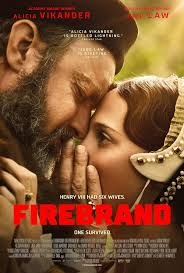
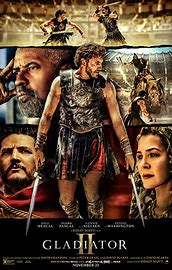



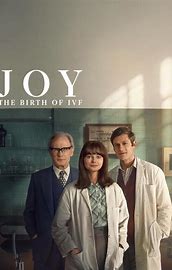
Kingdom of the Planet of the Apes (2024)
Fourth in this fine series, with stunning CGI. Could be the start of a second trilogy rather than an addition to the first, given the time that has elapsed since the events of War for, and the world we’re in now presents new threats and challenges to both apes and humans.
Lady Macbeth (2016)
Florence Pugh is magnificent (when is she not?) and terrifying. Especially when she smiles, or giggles. She’s more often impassive, but behind that mask there is desire, and rage. We sympathise, a young woman effectively imprisoned in the house by her father-in-law and her husband, neither of whom is remotely interested in her well-being. And then her jailers unwisely leave her unattended for a while, and things get messy, very quickly… The Guardian‘s reviewer said that ‘As Katherine, Pugh has the vaulting ambition of Shakespeare’s character (a single line, “It is done”, pays homage to the great ancestor), also the Flaubertian yearning of the passionate woman subjected to the bourgeois tyranny of wifehood, as well as the modern noir obsession and criminal daring that begins to assume its own momentum. Katherine has cunning and a talent for survival. She starts out Madame Bovary, and winds up Mr Ripley.’
The Last Duel (2021)
Jodie Comer again, with Damon and Driver, in a story about property and law and revenge – and rape. Any film set in medieval times falls prey to the Holy Grail problem – it is impossible not to find lines from that film popping into one’s head, quite inappropriately, as one bloke in armour rides up to the castle and demands entry, or whatever. Once one has acknowledged and dismissed this as best as one can, there’s a cracking drama going on, with an absolutely fascinating view on sexual politics. It’s extraordinary, that what one might imagine to be a liberating belief, that the woman’s pleasure is central and crucial, becomes just another way of constraining women. The film uses the Rashomon device so that we see events first through Matt Damon’s boorish squire/knight, Marguerite’s husband, and then through Adam Driver’s caddish but cultured le Gris and only then as Marguerite experienced them. Le Gris’s chapter is particularly interesting – does he truly believe, as his later behaviour suggests, that no rape occurred? Certainly from the viewer’s perspective there is not a shred of doubt.
Lola (2022)
Fascinating low-budget sci-fi/alt history film about two orphaned sisters who build a machine that can pick up broadcasts from the future. There’s a lot of fun with this, as they discover Bowie, several decades ahead of time, but then things turn darker as the war begins and their machine can serve a different purpose. It’s black & white, ‘found footage’ (although one wonders with some parts of the film who exactly was filming and how), with a fragmented narrative structure. It’s really sharp, original and engaging.
Men (2022)
Jessie Buckley is traumatised after the shocking death of her husband and so relocates to a big empty house in a village in the countryside, where she knows no one (as you do…). Everyone here is creepy AF, and they all look like Rory Kinnear (which is not the same thing) and things get creepier and bloodier and grosser and who knows what the heck it all adds up to in the end. The men Buckley’s character, Harper, meets start off just as a bit patronising, and end up full-on murderous, and the title does seem rather as if it’s talking about Men (yes, in this film at least, all men), not just these men. It’s not an ideal film to watch whilst alone (albeit not in an unfamiliar house in a remote location) but by the time we reach the indescribable concluding section, we’re way beyond unease and feeling a bit creeped out, and it’s not so much scary as extremely hard to watch (and impossible to unsee). Bonkers.
Midas Man (2024)
Excellent biopic of Brian Epstein, very well cast and imaginatively presented, with a bit of fourth wall breaking as we whizz through the years. Does it tell us anything new? Well, that depends on how familiar we are, I guess, with that story – I’ve read loads and watched loads and there wasn’t anything dramatically new, but it was very enjoyable. The only problem was that they didn’t have the rights to use any Beatles compositions so the uninitiated might come away with the impression that they were a covers band…



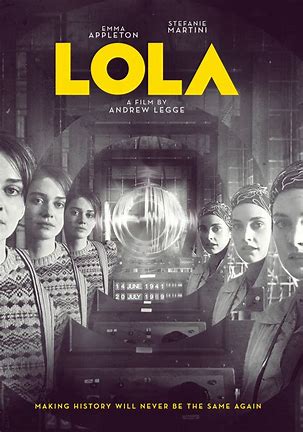


Mr Klein (1976)
I’ve been trying to track this film down for years, and finally managed to rent it (probably it resurfaced after the death of its star, Alain Delon). Delon plays an unscrupulous art dealer, who is happy to obtain artwork at knock-down prices from Jews desperate to get out of Occupied Paris, until a chance event links him to another, Jewish, M. Klein. It reminded me very much of Arthur Miller’s novel, Focus (see my books blog), in which a personnel manager gets a new pair of glasses which make him look Jewish and how his life unravels from that moment. Of course, whilst Miller’s character encountered violent bigotry, M. Klein faces death. Absolutely fascinating film.
Mrs Harris goes to Paris (2022)
Utterly charming, utterly improbable, Paddington-esque tale. Lesley Manville is as brilliant as always, Isabelle Huppert is great too, bringing her trademark icy charm.
One Love (2024)
Kingsley Ben-Adir is great, but I have a biopic problem, in that, as wonderful as the performance may be, I’m still seeing it, ultimately, as an impression, a set of learned mannerisms, and my belief is sadly unsuspended. But given that – which I guess is a me problem – it’s pretty good, and I was pleased to see appropriate prominence given to Marley’s religious beliefs, and his character not overly sanitised. And of course the film is full of the most wonderful music.
Operation Mincemeat (2021)
One of those ‘you couldn’t make it up’ wartime stories, which I’d read about in Ben MacIntyre’s account. It’s a good, solid tale, well told.
Perfect Days (2023)
A near perfect film. If someone had told me I would say that about a film whose action takes place for the most part in Japanese public toilets, I might have been slightly sceptical. But it is quiet and gentle and perceptive and very beautiful and all I can really say is, watch it, if you get the chance.
Radical (2023)
This was walking a very fine line, between Season 4 of The Wire unbearably bleak, and unbearably sentimental. And it walked it just about right. Tales of an inspirational teacher who reaches the unreachable kids are always prone to idealisation (e.g. To Sir with Love), but this was closer to Entre les Murs, in which the teacher is shown not always to get it right, not to be able to reach everyone. And the situation of the kids he teaches is brutal and heartbreaking, but we know – because this is a true story – that some did make it, largely thanks to him.


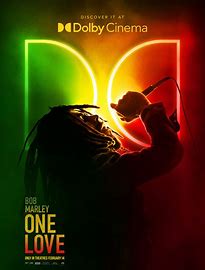
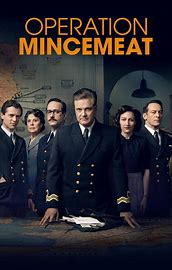

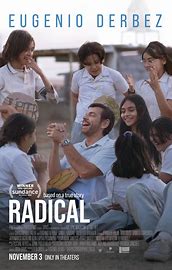
Radioactive (2019)
Rosamund Pike is excellently spiky and ‘difficult’ as Marie Curie. Whilst I’d grown up with the story of Marie Curie, I’d never heard about her work in WWI, setting up (with her daughter) a mobile X ray unit, which enabled many unnecessary amputations to be avoided, and many lives saved. I’m not entirely sure though about the intercutting with various vignettes showing the impact – for good or ill – of the Curies’ work, which seemed a bit on the nose.
The Red Shoes (1948)
I can’t excuse the fact that I hadn’t seen this before – not only as a massively famous and highly regarded movie, but also because I love Powell & Pressburger. So, mea culpa and all that. But I have now, and I’m besotted with it. I also watched a fascinating documentary, Made in England, with Martin Scorsese talking about Powell & Pressburger which gives some fascinating background to this and their other wonderful films. Scorsese described The Red Shoes as ‘wildly inventive, complex and not at all comforting’, which hits the spot, I think.
She Said (2022)
See also Bombshell, the first film to tell the story of #MeToo. She Said shows the exposure of Harvey Weinstein through the work of journalists who tracked down the women he’d assaulted, all of whom were afraid to speak, and many of whom had been coerced into signing NDAs, and accumulated the evidence until it was impossible to ignore it. It’s a sister film to Spotlight, and similarly eschews melodrama for a portrayal of the slog and frequent discouragement of this kind of investigative journalism.
Wicked Little Letters (2023)
A gloriously wicked little film, with Colman and Buckley having a splendid time with their respective roles, as (seemingly) buttoned-up spinster and floozy.
Wind River (2017)
A very bleak tale set in a wintry Wyoming, where a Native American girl has been found dead, and she’s not the first. It’s a brutal, bloody tale, and makes it central point well, that Native American women and girls are not even monitored, unlike those in other groups, let alone properly investigated.
Woman of the Hour (2023)
Really disturbing account of a (real) serial killer who ended up as a contestant on a dating show. Tonally it’s really interesting – the section where we see the programme being filmed is funny and skewers the casual sexism of the presenters and the male contestants, but all the while we know, as Anna Kendrick’s character doesn’t, what one of those contestants has already done. The crimes themselves are shown quite graphically, which makes that part of the film really intense even whilst we’re briefly distracted by Kendricks’ attempts to subvert the format. (PS: Having seen a few series of Married at First Sight (no intervention required, I have kicked the habit now) the idea of a sociopath – or worse – participating in a show of that sort doesn’t seem the slightest bit improbable.)






Small Screen
The usual mix of crime drama (perhaps slightly more true crime – M was never as keen on those), sci-fi/fantasy, thrillers, historical drama, etc. Top sci-fi this half-year is Supacell, top crime Sherwood, true crime Five Days at Memorial, historical Wolf Hall: The Mirror and the Light, and drama, Mr Loverman. Of the documentaries, David Olusoga’s A House Through Time: Two Cities at War stands out. As always, I haven’t reviewed all of the programmes I watched – there were new series of Shetland, The Tower, DI Ray, The Lincoln Lawyer, All Creatures Great & Small, Slow Horses, Vienna Blood, McDonald & Dodds and Midsumer Murders, all ranging from serviceable to superb, which don’t feature below, even though Slow Horses is one of the best things ever (it’s just that it gets a bit tedious to ‘review’ it when all I’m really saying is ‘this is one of the best things ever), and All Creatures is massively important to my mental well-being (particular given the somewhat grim cast of a lot of my watching). And if I started something but abandoned it, you won’t see that recorded here either. I’ve tried to avoid spoilers but you should proceed with caution.
Drama
Agatha All Along
Marvel TV hasn’t given us much that’s really great recently, but this is both huge fun and packs an emotional punch – it follows on from Wandavision, which we loved. Kathryn Hahn is a powerhouse in the lead role. And it’s got a song that’s firmly stuck in my head. And it’s a female dominated storyline (because, witches), like The Marvels but unlike most of the rest of the franchise.
The Claremont Murders
Australian true crime, about a series of murders of young women and the lengthy failure to find the perpetrator (DNA was the breakthrough here). It does give due weight to the effects on the families of the victims, although at least one family member said how traumatic he and others had found the programme. It’s a question that surely must occur with all these true crime dramas where relatives are still living, and some are easier to defend than others, if they shed new light in some way. This is a fairly middle of the road example, but well enough done.
Day of the Jackal
Forget Edward Fox and de Gaulle – here’s Eddie Redmayne in a Mission Impossible style mask with impossible feats of marksmanship, being pursued by Lashana Lynch’s intelligence officer. Glamorous locations, high speed chases, lots of tech, and a thoroughly entertaining few hours. The Jackal and his nemesis are actually more balanced than in the original film – her moral boundaries are shown to be pretty movable, and the question of whether/how one could have a family in their line of work is pressing for both. I don’t think for the most part, however, we are overly concerned with those deeper questions…
The Devil’s Hour
Very, very unsettling. Superbly played by Capaldi and Jessica Raine in particular. I won’t even begin to talk about the plot – you have to just watch it and trust that some of it will start to make some sense, in due course. Once the pieces start to fall into place, it’s still complicated, not just plot-wise, but emotionally (it reminded me of The Lazarus Project). Completely compelling and rather disturbing.
The Diplomat
Series 2 is even more fun than the first and ends with an even more dramatic cliff-hanger. Along the way there’s a lot of fun at the expense of Keri Russell’s Ambassador and her failure to look ambassadorial (I must admit the thought that she surely ought to be able to use a hairbrush occasionally had occurred to me a number of times). Rory Kinnear is brilliant as the boorish UK PM.
Discovery
The final series of Star Trek: Discovery. I loyally watched to the end, but it sustained the kind of annoying tropes that have somewhat spoiled my enjoyment throughout – the idealisation of Captain Burnham, particularly given where she started, is cloying, all of the core crew are straight-up heroes, and there are too many deaths/departures which turn out to be rather less than final. The third point is a common issue with sci-fi/fantasy – after all, if you can reverse death, why wouldn’t you? – and sometimes it is done well, for a purpose, sometimes it’s a kind of ‘have your cake and eat it’ thing, milking the death/departure for viewer tears and then bringing them back to have another go. Discovery tends very much to the latter. Strange New Worlds is far superior, and I look forward to its return.



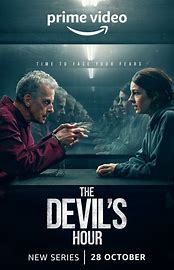


Douglas is Cancelled
This wasn’t quite what I expected. It was billed as a comedy, for a start, and played as such initially. But the central, crucial episode, set in a producer’s hotel room, is as far from comedy as one could get. It’s deeply uncomfortable to watch and makes the humour in the remaining episodes very dark indeed. Karen Gillan is superb.
Ellis
Whilst there are a heck of a lot of crime series around, some of which are hard to remember after they’ve finished, this one plays on the strength of the lead, Sharon D Clarke, so wonderful in Mr Loverman (see below). And there’s depth to that character, and to her sidekick, so if it gets a second series I’m in.
Elsbeth
Quirky and entirely formulaic crime show which some found intensely irritatingly, but which I rather enjoyed. It’s what they call cosy crime, and there’s no ‘whodunnit’ element – we see who dunnit, we’re just waiting for Elsbeth to work it out, in various quirky ways.
The End of Summer
Twisty, dark thriller. The lead character was frustrating – I do wish from time to time we’d have protagonists in this kind of narrative who actually do their job, without huge lapses into unprofessional behaviour, there must be plenty of those around, and the plot was interesting enough without me having to shout ‘Oh, you are kidding me’ at the screen quite so often. But along the way it was atmospheric, and the twists were well handled and not merely gratuitous.
Eric
Bonkers. A mad cross between Harvey and a very dark tale of mental breakdown, political corruption and homelessness. Cumberbatch is excellent as the children’s TV puppeteer who manifests (or does he?) a new puppet to assist when his son goes missing. If that description sounds too silly to bother with, do give it a try; even if it doesn’t always manage its disparate elements perfectly, it’s never less than compelling. As the Independent reviewer said, ‘Even though the shadow of Big Bird hangs over the series like a, you know, big bird, there is a dark, misanthropic streak to proceedings. Much of the action takes place in New York’s murky, subterranean underworld, but the real sewer runs through the establishment. This is a depraved world, where even that most innocent of things – a children’s TV character – has to spit feathers to right wrongs’.
Everything you Love
Interesting Scandi drama about far-right radicalisation through the story of a young couple meeting again after a long gap, falling for each other, until the young man’s extremist views and actions fracture the relationship. Very well played by both the leads, it leaves a lot of questions unanswered, but that’s fair enough – a tidy resolution would be unrealistic and any neat answer to the question of how/why young men (in particular) are drawn to violent extremism is not yet forthcoming.


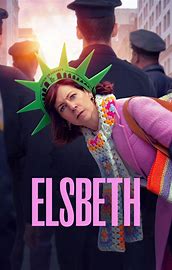



Five Days in Memorial
Absolutely riveting account of what happened in Memorial Hospital during Katrina. Initially it’s a fairly straightforward disaster movie scenario, but whilst initially we identify both with the patients and the medics and other staff desperately trying to do their jobs in impossible circumstances, gradually another strand emerges. People start talking (in corners, a bit sotto voce) about making certain patients who would be difficult to evacuate ‘comfortable’, about not leaving ‘any living patient’ behind, and these coded conversations lead to the decision to euthanise a number of those patients. The series then follows the investigation into what happened, and the eventual suppression of legal action against the doctors involved. It doesn’t give easy answers, it’s not good doctors and bad doctors, and one is reminded constantly that at the point when these decisions were taken, there was no certainty of the timescale for rescue, or even whether any rescue would come. Powerful stuff.
Funny Woman
A 60s pastiche about 60s TV and Gemma Arterton’s funny woman. It manages to avoid too crudely overlaying contemporary sensibilities on the characters and setting, though the tone varies considerably, from moments where the ‘real life’ action is as daftly farcical as that in the fictional sitcom, to dealing head on with sexual assault, the policing of homosexuality, and racial violence. A glorious soundtrack made up of the usual suspects but also quite a lot of much more obscure tracks.
A Gentleman in Moscow
Fabulous adaption of the Amor Towles novel, with a lovely performance from Ewan McGregor in the lead, and great support from Mary Elizabeth Winstead and Johnny Harris. Often touching and funny but with a constant undercurrent of dread. The action remains – until almost the end – confined in the Metropol Hotel, like Count Rostov, but what’s going on outside of the hotel’s walls is constantly impinging and forcing its inhabitants to adapt.
The Hour
Drama series about a current affairs TV programme in the late ‘50s, with an absolutely stellar cast – Romola Garai, Ben Whishaw, Dominic West and others. It only got two seasons, which was a shame – I thought it was excellent, and would have loved to see it follow these characters through into the ‘60s.
The Jetty
Jenna Coleman as a cop whose investigation of a current case opens up questions about an old missing persons case, and about her own late husband. Coleman is good, but I found myself frustrated (again) by how unprofessional her character becomes and how quickly, and also by the piling up of twist/reveals in the final episode.
Justice: Those who Kill
The world’s worst criminal profiler is still at it. Either she’s stating the bleeding obvious, or she’s barking up entirely the wrong tree – but here she is, called in again on a tricky gang violence case. It’s all entertaining enough but I keep wanting to shout at them, ‘don’t listen to what she says, she was shagging the perpetrator in her last case but one’…
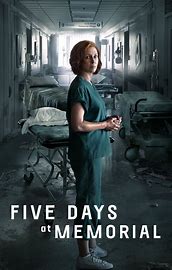

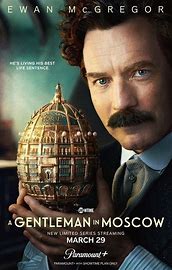


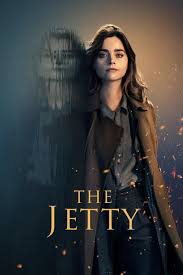
The Lady in the Lake
A superb adaptation of Laura Lippmann’s excellent thriller, with Natalie Portman and Moses Ingram as the two very different women whose lives intersect unexpectedly. It’s set in the civil rights era and confronts the racial and gender oppression of the times. It isn’t afraid of deeply uncomfortable moments – such as Portman’s Maddie’s assertion that in other circumstances, she and Cleo could have been friends. ‘And what circumstances might those be?’, asks Cleo, to which Maddie has no answer. Along with all of this, and there’s a lot going on here, as the Guardian reviewer put it, ‘Lady in the Lake is also an incredibly sumptuous and fearless aesthetic experience, combining not just the meticulous recreation of the 60s, but also of Cleo’s childhood in the 40s and Maddie’s formative experiences a decade or so later. It uses dream sequences, musical interludes, flashbacks and assorted other devices that in lesser hands can be – and frequently are – mere irritants to flesh out its characters and questions more fully.’
Last Days of the Space Age
I had hopes of this being a good deal more interesting than it turned out to be. It’s too soapy, too formulaic, and glides over a lot of the issues it raises. Fun enough, but it could have been so much more interesting – the context, 1970s Australia, and the interweaving stories about industrial unrest, burgeoning feminist and First Nation activism, Vietnamese refugees, seemed to have a lot of potential.
Mr Loverman
Beautiful, funny version of Bernardine Evaristo’s book, with wonderful performances from Lenny James, Sharon D Clarke and Ariyon Bakare, among others. It doesn’t oversimplify the issues – Barry (aka Mr Loverman) has lied for his whole life, and that’s cheated his wife Carmel of the life she might have had, which in turn has embittered his daughter Donna… And yet, and yet… It’s a moving portrayal of an enduring and tender love, which was hidden because it had to be, until the weight of the years of lying seemed too heavy to shift.
Ludwig
More so-called ‘cosy crime’. There’s quite a bit of humour in David Mitchell’s character impersonating his own missing twin, and in his general nerdiness, and the puzzles are clever and intriguing. With Mitchell & the incomparable Anna Maxwell Martin, and solid back-up from the rest of the cast, it’s thoroughly enjoyable. I do dislike the word ‘cosy’. I know what it means in this context – there aren’t going to be graphic crime scene images, plots revolving around historic sexual abuse in children’s homes or rape/murders, and the detectives aren’t going to be burdened with massive trauma. And that’s fine – these dramas focus on the puzzle, usually less explicitly than Ludwig, rather than on the tortured motivations of the perpetrator. I wouldn’t want my crime fiction to be all cosy, however – and I do think the label is misused sometimes (I saw Shetland so described the other day, which I don’t think is right, as that series is more than capable of being gritty and dark). But Ludwig is great, and I look forward to the next series.
Man on the Inside
I love Ted Danson. For Cheers, obviously, but more recently for Fargo and The Good Place. And here he’s with Michael Scher, the writer for The Good Place, and it’s an utterly charming and funny tale of a widower going undercover at a retirement home. It manages to be very touching too, without sentimentality.
Nightsleeper
Don’t fret about plot holes. Just enjoy the ride, let the momentum of this thriller take you forward, breathless, until the final credits roll. There will be plenty of time after that to ponder the improbabilities/impossibilities involved.


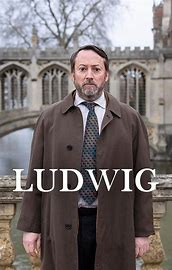
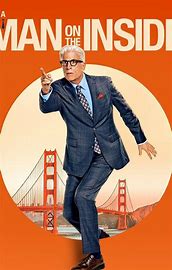


Orphan Black – Echoes
It didn’t stand up to the original – how could it, especially without Tatiana Maslany – but it does develop the clone plot and takes it to some different places. It took me a while to get my head around where/when/who but once I’d got there it was gripping stuff, and I’m hoping for a second series.
The Perfect Couple
Slick crime drama set amongst some of the least likeable people one could imagine, even if it does dig below the glossy surface a little. Kidman et al are super rich, super brittle, and entirely engaged in maintaining the said glossy surface at all costs. One doesn’t really end up caring about any of them, but it’s entertaining in a beach read kind of way.
Platform 7
I loved Louise Doughty’s book, but this didn’t quite work as TV. Given that our protagonist is (SPOILER ALERT) a ghost, this forced her to spend much of her time observing events, and looking sad/anxious/angry, rather than participating or even influencing. As a powerful depiction of coercive control though, it worked very well indeed.
The Project
Lord, this was an uncomfortable thing to watch just after Labour’s election victory. The first part is set in the build up to the 1997 landslide, the second just afterwards, and it shows a number of young activists gradually confronting challenges to their ideals and their relationships. As the director, Peter Kosminsky, said, ‘After so many years of Conservative government, they believe anything that puts Labour back in government is acceptable. But be careful what you wish for’.
Rings of Power
Better than the first season but still flawed. Too much happening, so that the finale was rushed and perfunctory in relation to some of the narrative strands. And rather clunky in the way it reconciled what we see in the series with what we know from the books/films: the Stranger being called ‘Grand Elf’ and then deciding his name is Gandalf, and Galadriel reminding Sauron that the rings exert power over the wearer, so that you cannot be their master, and then immediately calling him ‘Lord of the Rings’. It’s got the classic prequel problem – everyone has to be manoeuvred into where they need to be at the start of LotR, and we can see the machinery whereby that happens. Along the way, however, lots of powerful sequences, and I’m looking forward to the next chunk of the story.
Rivals
Glorious, ridiculous 80s bonkfest. I haven’t ever read any Jilly Cooper so I don’t know to what extent the sexual mores have been adjusted – where they have it appears to have been with a relatively light touch. And whilst sex in general is here treated as desired and enjoyed by both, sexual assault and rape are given a very different treatment. The cast is ridiculously good, and all seem to be enjoying themselves enormously. And it’s rather touching to note that, given the trio of hotness that is David Tennant, Aidan Turner and Alex Hassall, rather a lot of us have fallen for Danny Dyer, despite his wig…




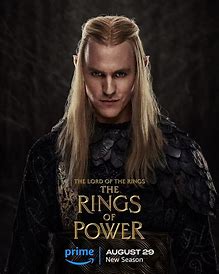

Sambre
Another true crime, this one about a serial rape case in France, viewed through a series of interventions, each of which fails due to prejudice, bureaucracy, incompetence, until a final breakthrough brings the perpetrator to justice. Very well done.
Say Nothing
This is a tough watch. There are moments when the vitality and conviction of the Price sisters sweep us along so we’re almost rooting for them, and then we are reminded of what it is they’re doing, and we’re shaken. Their belief is absolute, they are at war and thus all sorts of things are legitimate – until they are no longer at war, but didn’t win, and so all of those appalling acts were, in their eyes, for nothing. This makes the crisis of faith not primarily about conscience. It is not that Dolours (let alone sister Marian or Brendan) start to believe that they were wrong to kill alleged ‘touts’ (even though she is haunted by some of the deaths of those she drove across the border to be killed), because it is implied that had they won – i.e. the British had departed, and Ireland was united – this end would have justified those means. The heart of the series is the abduction and murder of Jean McConville and it’s not till the end that we get any answers about this – and even then there is the disclaimer on screen, the denial from two of the alleged perpetrators that they played any part in it. But the series perhaps dangerously engages our sympathies for the sisters and for Brendan Hughes, whilst Gerry Adams is played as being duplicitous and cold from the outset. Lola Petticrew as the young Dolours Price is charismatic and vibrant, and Maxine Peake as her older self powerfully conveys the damage, the doubt, the sense of loss that gradually eat away at her after her release from prison. It’s incredibly murky, and probably always will be. I also watched 2018 drama-doc I, Dolours, which covers a lot of the same ground though in less detail.
Sherwood
Bloody hell, this was riveting. And for those who thought the plot a little improbable, I know someone who was on the jury when these crimes came to court, and the drama stayed very close to the truth. Monica Dolan was terrifying and Lorraine Ashbourne magnificent, and there were wonderful performances from the rest of the cast too, amongst which I must pick out Bethany Asher in particular.
Show Trial
Michael Socha and Adeel Akhtar carry this, and the drama is most compelling when they’re facing one another across a table, as client and lawyer. I’d watch either of these two in pretty much anything, and they’re both outstanding. The plot, sure, it’s great, but whenever Socha or Akhtar or both aren’t on screen, we’re kind of waiting till they are…
The Silence
Grim Ukrainian/Croatian crime drama about trafficked girls and weapons, corrupt cops and politicians, and general indifference to the fate of dead girls when they’ve grown up ‘in care’. Compelling but exhausting.
Silo
I was very happy to see this renewed for a second season – we were only just beginning to understand the world of the show, and three episodes into season 2, there is still much to get to grips with, but perhaps most of all, the sense of how elusive and dangerous the truth may be, and what happens when lies are overturned. Rebecca Ferguson is a compelling lead, with great support from Tim Robbins, Common and Harriet Walter (and Steve Zahn in s2). This is proper grown-up, complex, intelligent sci-fi, and it’s proper gripping too.
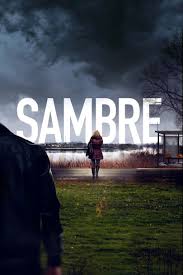

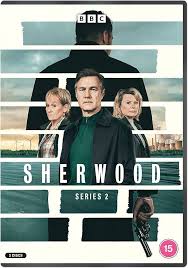



The Sommerdahl Murders
Rather soapy Danish crime series – the crime side of it is better than the romantic/domestic aspect, or at least my preference would be to dial down the latter and concentrate on the former.
Spy/Master
Excellent Romanian Cold War spy thriller about a KGB agent high up in the Ceaușescu regime, who finds himself needing to get out rather urgently. It’s a scenario that is broadly familiar but the portrayal of life with the Ceaușescus is rather less so and is fascinating.
Stalk
French drama about a student who uses his techy skills for evil rather than for good – or at least initially to get his own back on fellow students who have humiliated him. I could have done without the central character’s pccasional portentous/preachy voice-overs, but generally it’s well done. The tech is, I assume, solid, though it bemuses me. There is a second series, but I don’t feel compelled to watch.
Stateless
Powerful Australian drama about refugees, based on the real stories of four people who end up in an Australian detention centre for illegal immigrants, either as detainees or employees. It gets across with real power the impossibility of the refugees’ situation. The story of Cornelia Rau, a mentally ill white Australian woman, who was found to be one of those detainees, despite being an Australian citizen, is used not to displace the narratives of the Afghans, Syrians and other asylum seekers, but to convey the bureaucratic nightmare in which they all find themselves.
Stockholm Requiem/Hostage
Requiem is a twisty crime series, with an interesting structure – a sequence of crimes are investigated and (to some extent) resolved, but turn out to be linked, and not by the perpetrator(s). Hostage follows some of the same characters but with a very different scenario, with a hijacked plane – it’s more conventional but well done and gripping.
Supacell
Looked initially like a new version of Misfits, whereby a bunch of people suddenly get superpowers. But these aren’t random, as it gradually becomes clear. All are black, all have some family history of sickle cell disease. It’s not humourless but it certainly isn’t played for laughs – the implications of the new abilities are complicated, and the new superheroes are clearly in danger. The Guardian’s reviewer said that ‘This is not your typical superhero origin story, where preserving truth, justice and the American way is the primary concern. Instead, the characters are operating in a society where the odds are stacked against them, and they are all struggling to make ends meet and avoid violence’. Excellent series, hoping for a sequel.






Threads
I watched this when it was first shown. I can vividly remember how unsettling it was to head off the following morning into the city centre that I had just seen destroyed on screen, to get the train to work. I wasn’t sure how well it would stand up to a rewatch, but it stood up almost too well. I’d remembered from the time feeling that the central storyline, the young couple having to plan a wedding due to an unplanned pregnancy, seemed to come from an earlier era of kitchen sink drama. This datedness seemed to be backed up by the fact that ‘Johnny Be Good’ is on the car radio and the pub jukebox. All of these years on, it seemed timeless. And it was as brutal and bleak and horrifying as I’d found it first time round, and it’s staggering what was achieved for what would now seem a fairly modest budget. But I almost wished I hadn’t rewatched it because it reminded me of all the reasons there are to fear for, not so much my future, but that of my kids, and their kids…
The Twelve
Soapy jury drama. This is season 2 of the Aussie version of a Belgian series we watched via Walter Presents a few years back. The main plot is intriguing and solid, but some of the stories involving individual jurors were rather predictable (well, of course the moment you blurt out the huge secret you’ve been keeping for years the person most directly affected by that will prove to be standing at the door, and will then rush out into the street and be hit by a car, because that’s what always happens in these things). And Sam Neill as one of the defence lawyers was giving me definite Judge John Deed vibes which is not a good thing. But it was entertaining enough.
Under the Bridge
See my books blog for the true crime book on which this is based, the murder of a teenager by her peers. It’s very watchable, though the directors took the odd (in my view) decision to insert writer Rebecca Godfrey into the narrative via a personal history that mirrors some of the experiences of the teenagers involved. None of that was real – Godfrey was a journalist who spotted a good story, investigated and wrote about it. The choice to link one of the cops to a story about forcible adoption of First Nation children is also fictional, but I don’t have a problem with the way in which, in particular, Canadian and Australian dramas are bringing this history into the foreground, and Lily Gladstone is always worth watching in any case.
Until I Kill You
Bloody hell, Anna Maxwell Martin is good. One of those actors who compel one’s attention completely, even in something lighter weight, like Ludwig. This one is not lightweight, not in the slightest. It’s true crime, based on the memoir of a survivor, and it shows, brutally, not only how someone who seems to be a ‘free spirit’, an oddball, but deeply lonely, could come under the power of a psychopath, but how her reactions, her spiky defensiveness and stubborn refusal to fully cooperate with the police or with other agencies who try to help, put her at further risk. But it does so without victim blaming. Some of what she tells the police about the man who tried to kill her is ignored, largely because she was ‘odd’ and difficult. She doesn’t behave like a victim is supposed to behave, and so she is written off as unstable and thus unreliable. When she tells the court about the lasting effects – physical and mental – of his attacks on her, it is not only heartbreaking but enraging.
We Were the Lucky Ones
The title is ironic. Yes, this is the story of a family many of whose members survived the Holocaust, against the odds, through various means. But ‘lucky’? As I said in another blog, film/TV depictions of the Holocaust should never, ever, be ‘poignant’ (don’t get me started on that), never (heaven help us) heartwarming. Here, the survival of so many of this family, who went on to build future generations, was not a ‘happy ending’ but a shout of defiance in the face of evil.
Wolf Hall
I re-watched the original series and was reminded again just what a fabulous slice of TV it was. Every performance, every detail. I could just watch Rylance’s face for hours, his stillness. Director Kosminsky described it as him listening, but he’s ‘listening’ to more than words, his antennae are picking up on gestures, sidelong glances, silences. And he’s listening as if his life depends upon it – as, indeed, it does. It took a moment in this new series to adjust to a certain number of recastings (due to death (Bernard Hill), global fame (Tom Holland) or other reasons) and to the fact that returning cast members are 9 years older than when we last saw them, though only a couple of weeks have passed for Henry, Cromwell and the rest. But it’s not lost any of its power and intensity. Cromwell, once so sure footed, now vulnerable, making mistakes, making even more enemies. I know how it ends, of course, and I remember that feeling as I read the book, that I wanted a different ending, for him to find his way to that former abbey where the bees make honey that’s scented with thyme.
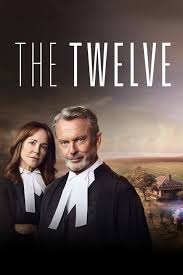
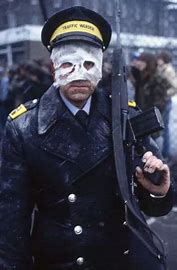
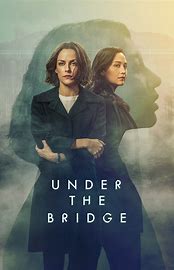


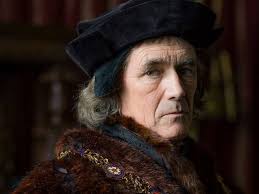
Documentary
The Battle for Black Music: Paid in Full
Exploitation by managers and record companies is not exclusively an issue for black musicians, obviously. Youth and naivety have always been taken advantage of to make sure that the big bucks don’t go to the talent. But if you add in the factor of race, and how much less power even high profile black artists had/have, there’s a pattern that isn’t just about individual bad actors, but about institutionalised racism and the entitlement that goes with it. A fascinating and infuriating account.
Black Barbie
I was never much of a one for dolls as a child. I do remember my younger sister having a black baby doll (in the early-mid 60s I think), but the first black Barbie didn’t arrive till 1980. The documentary tells the story of the women who made that happen. Of course, Barbie, black or white, doesn’t really look like any of us (even Margot Robbie), but for black girls it wasn’t just the improbably long legs and tiny waist, but the colour of her skin and hair, the shape of her features. And so it was important that black Barbie wasn’t just regular Barbie in blackface, but had a wider nose, fuller lips, and an Afro. It’s not a straightforward tale of representation and empowerment – white Barbie is still and always will be The Barbie, the first and original. But black Barbie: ‘She’s black. She’s beautiful. She’s dynamite’, as the original tagline had it.
Corridors of Power: Should America Police the World?
The title contains a question to which the obvious answer would seem to be a hard no. And the series doesn’t do much to change one’s mind on that, but it does give an in-depth account of many of those flashpoints in world history where America did too much, or not enough, and what the consequences were. With lots of insiders – Condoleezza Rice, Colin Powell, Hillary Clinton, Samantha Power, Madeleine Albright, to name only the best known – the series gives real insight into what happened, and why.
A House Through Time: Two Cities at War
I haven’t seen the previous series of A House Through Time (I will do) , but this one is riveting. He’s identified apartment blocks in London and Berlin whose occupants, between the wars and during WW2, include Jews and SS members, conscientious objectors and war heroes, and everything in between. Exemplary TV.
Into the Fire: The Lost Daughter
Cathy Terkanian gave her daughter up for adoption in 1974 – Cathy was 16 and never knew who had adopted the child. In 2010, she was approached by the adoption agency wanting to get a sample of her DNA, because a body had been found that might be the daughter, who had disappeared in 1989. Although the DNA wasn’t a match, this started Cathy on a mission to find out what had happened to Aundria. The answers she finds are devastating. It’s a gripping account, well told.
Spielberg
Excellent documentary account of Spielberg’s life and career – it was made in 2017, five years before The Fabelmans came out, and it would have been fascinating if the doc could have explored that movie too, in relation to the biographical material they’d already covered.





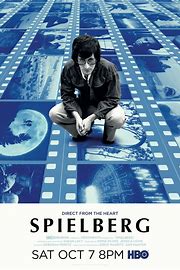
Stax: Soulsville USA
This first lifts your heart, with the story of how Stax came into being, of the remarkable way in which music brought black and white artists together in a time of segregation, and then breaks it as we see how the big record companies wanted what Stax had created, and gradually, ruthlessly, drove them out of business. But perhaps the most heartbreaking thing was to realise that despite the musical camaraderie, the white musicians did not get what life was for their black bandmates, and did not ask (particularly after the assassination of MLK) and that it was not possible for that communication gap to be overcome.
Union
Another exemplary Olusoga doc, this one tracing the history – much of it unfamiliar to me – of Great Britain/the United Kingdom, how the union came about and the threats it has faced over the centuries. (When I googled this to check the full title, I found it was listed as ‘Union with David Olusoga’, which sounds lovely but does not accurately reflect the contents of the programme…)
Watergate
This 1994 documentary series is fascinating. I recall these events unfolding in real time, have read the Bernstein/Woodward book and seen the film, and watched the fictionalised re-telling based on John Ehrlichman’s book, with Jason Robards as ‘President Richard Monckton’. But there’s lots of new material here, and lots of interviews with the people directly involved, so much light was shed on this whole murky episode.
The Zelensky Story
A truly remarkable man, who might in other circumstances have never been much known outside Ukraine but who now stands for his country, and as a symbol of resistance to big power aggression. I was struck by the remark, from one of his close associates, that his change of personal style after the invasion was not cosplaying a soldier, but rather identifying with a civilian resistance. It made me admire him even more than I did already, but also fear for him.
